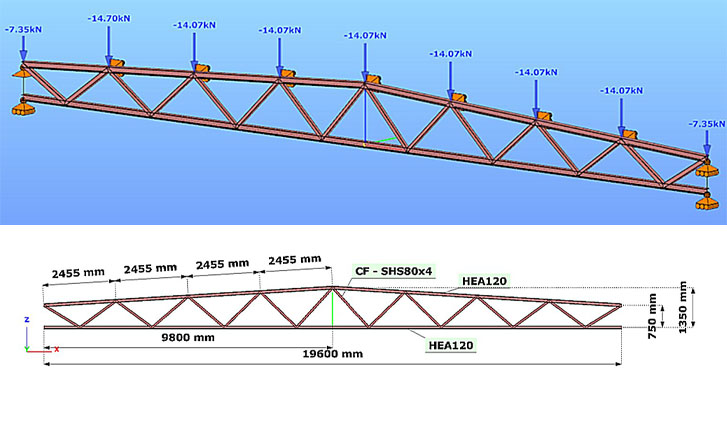
Software version: ConSteel 17 Build 3303 Keywords: Modeling; Analysis; Design; Lattice girder; Getting started; Model examples Design objective, choice of design standard This design guide is intended for novice…
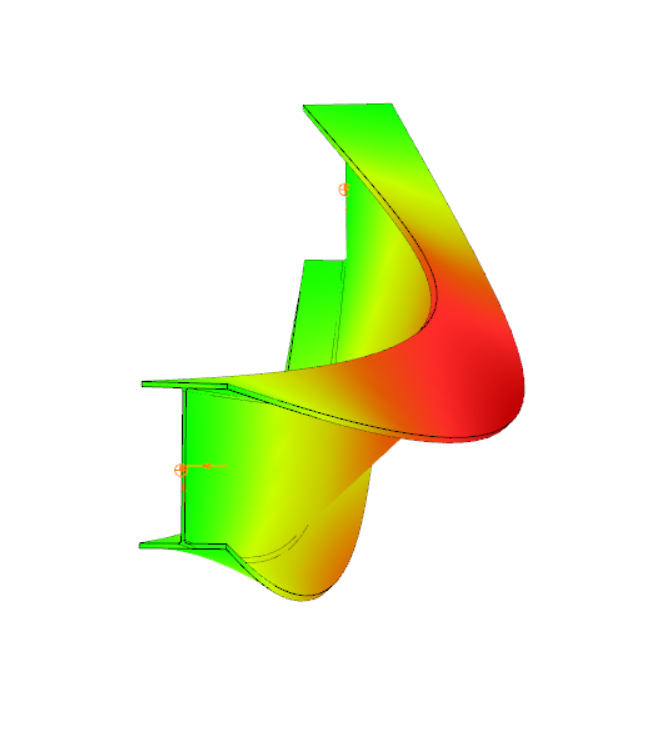
Consteel recommends to use the General Method from EN 1993-1-1 for the evaluation of out-of-plane strength of members and sturctures. In addition, the scaled imperfection based 2nd order approach is…
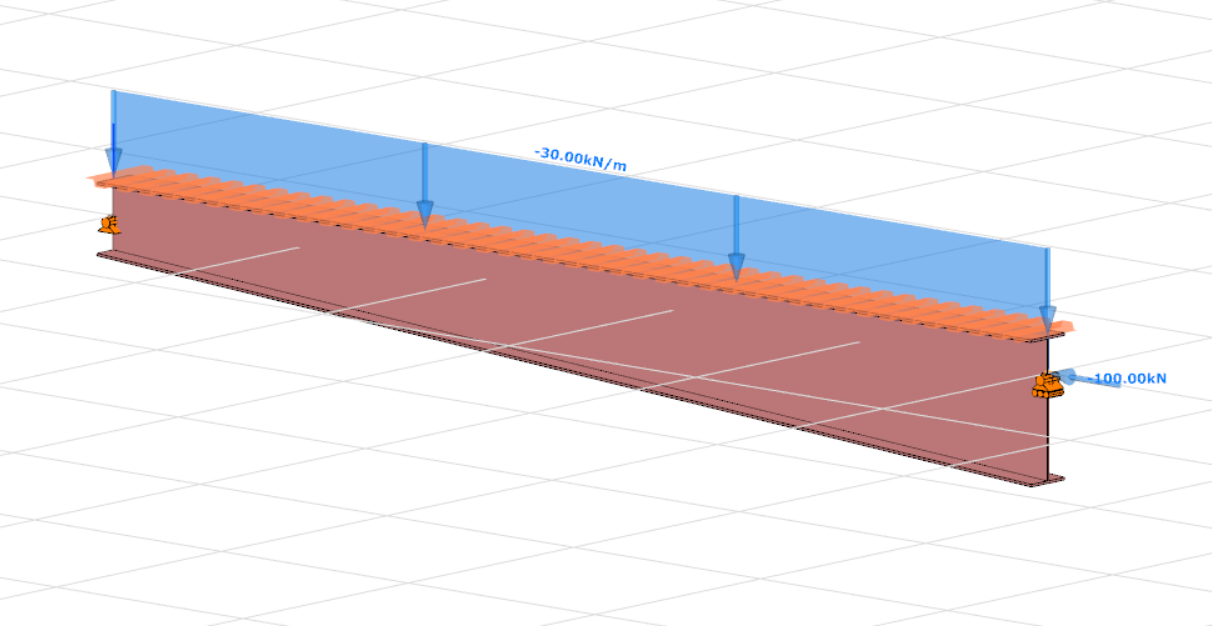
Have you ever heard about the ‚General Method‘? This is an alternative design method to consider the interaction of axial compression with major-axis bending for general buckling situations, where the…
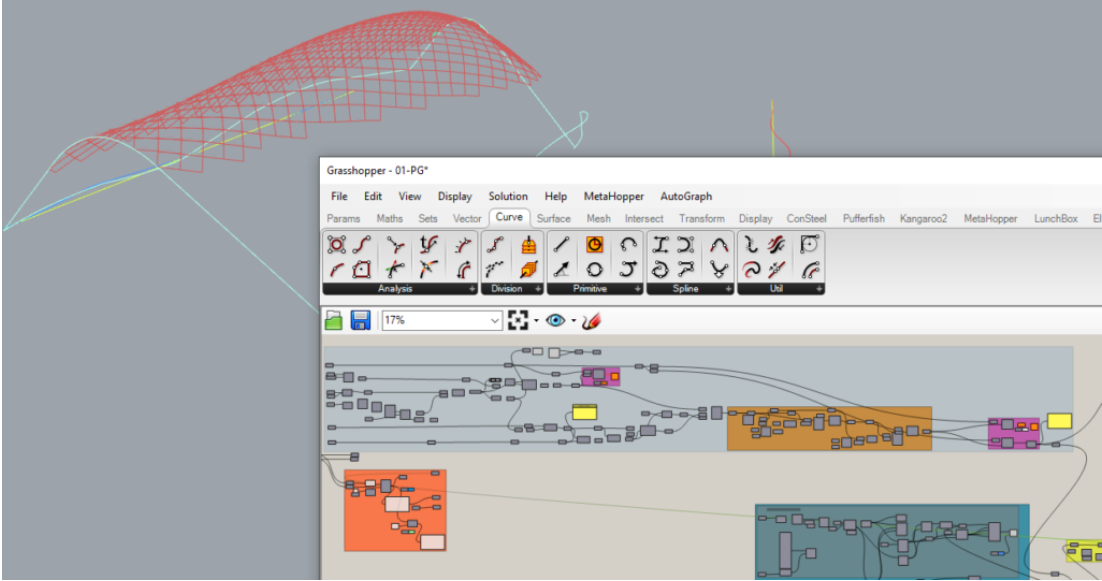
Did you know that Consteel provides a plugin to integrate structural modeling and analysis into your parametric Grasshopper definitions? Download Pangolin from food4rhino.com or the Yak package manager of Rhino.…
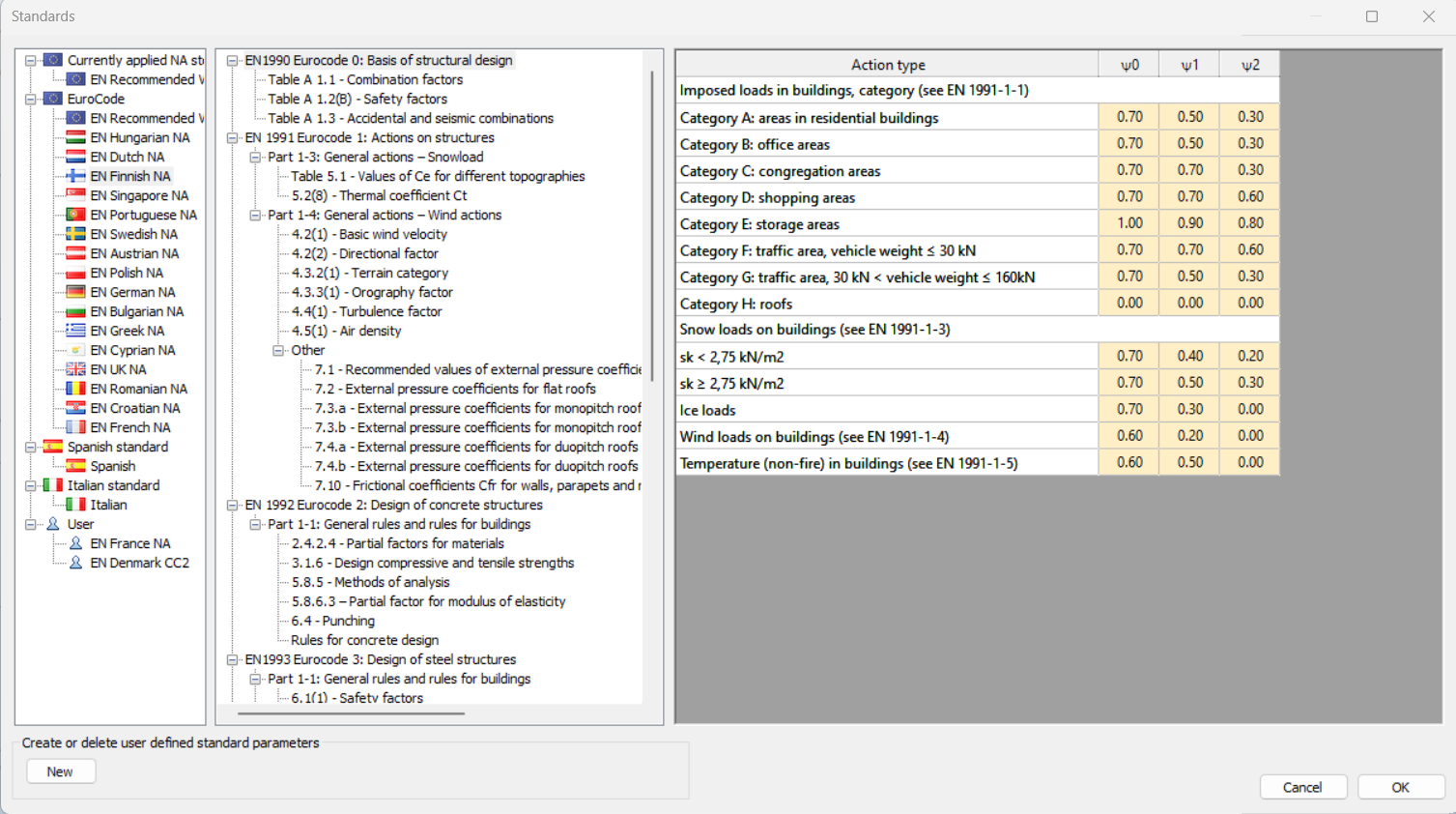
Did you know that Consteel already supports most of the countries which have adopted Eurocode design standard? If your country would still be missing, no problem, you can create your…
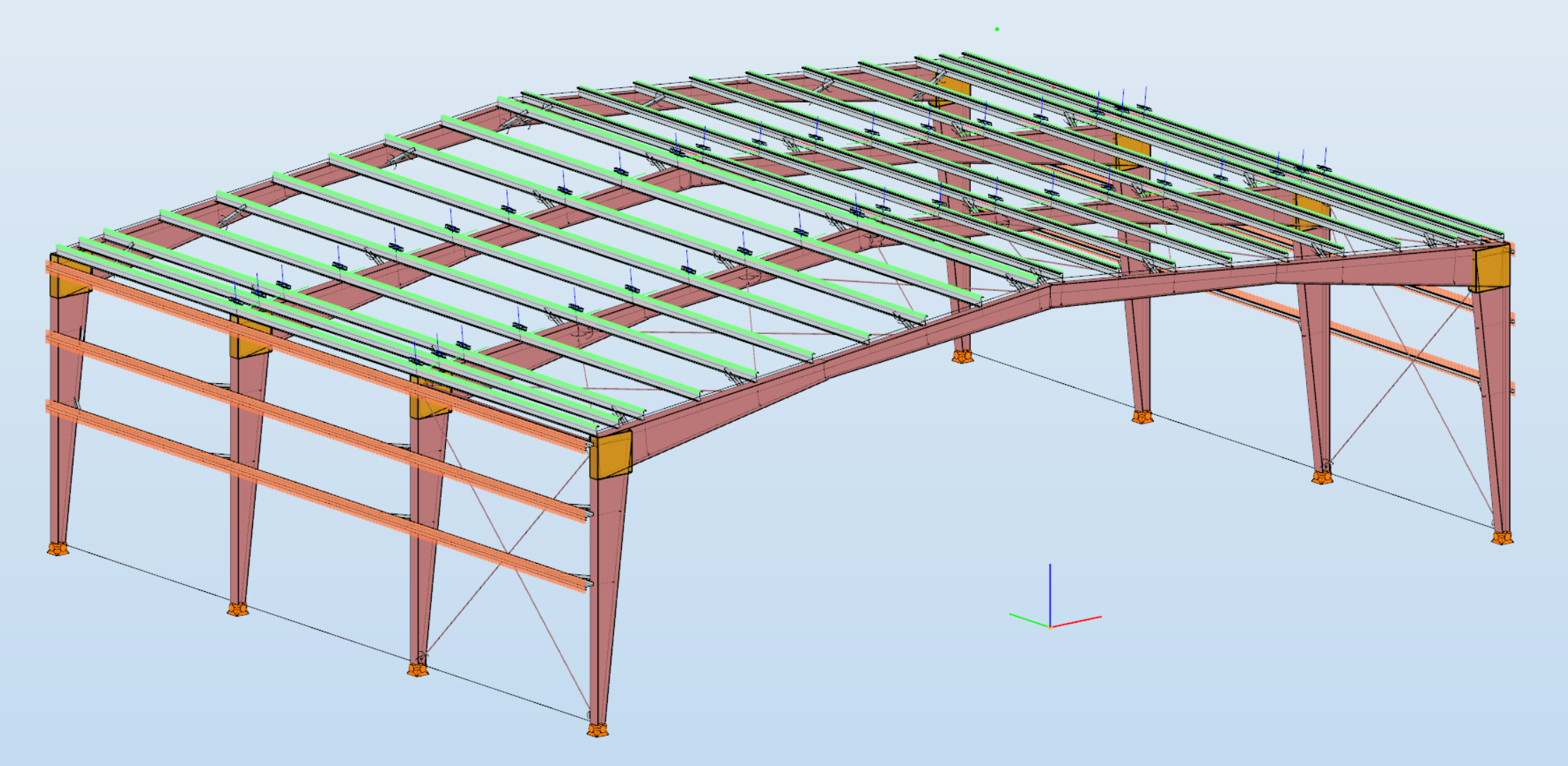
Did you know that you can use Consteel to design a pre-engineered Metal Building with all its unique characteristics, including web-tapered welded members, the interaction of primary and secondary structural…
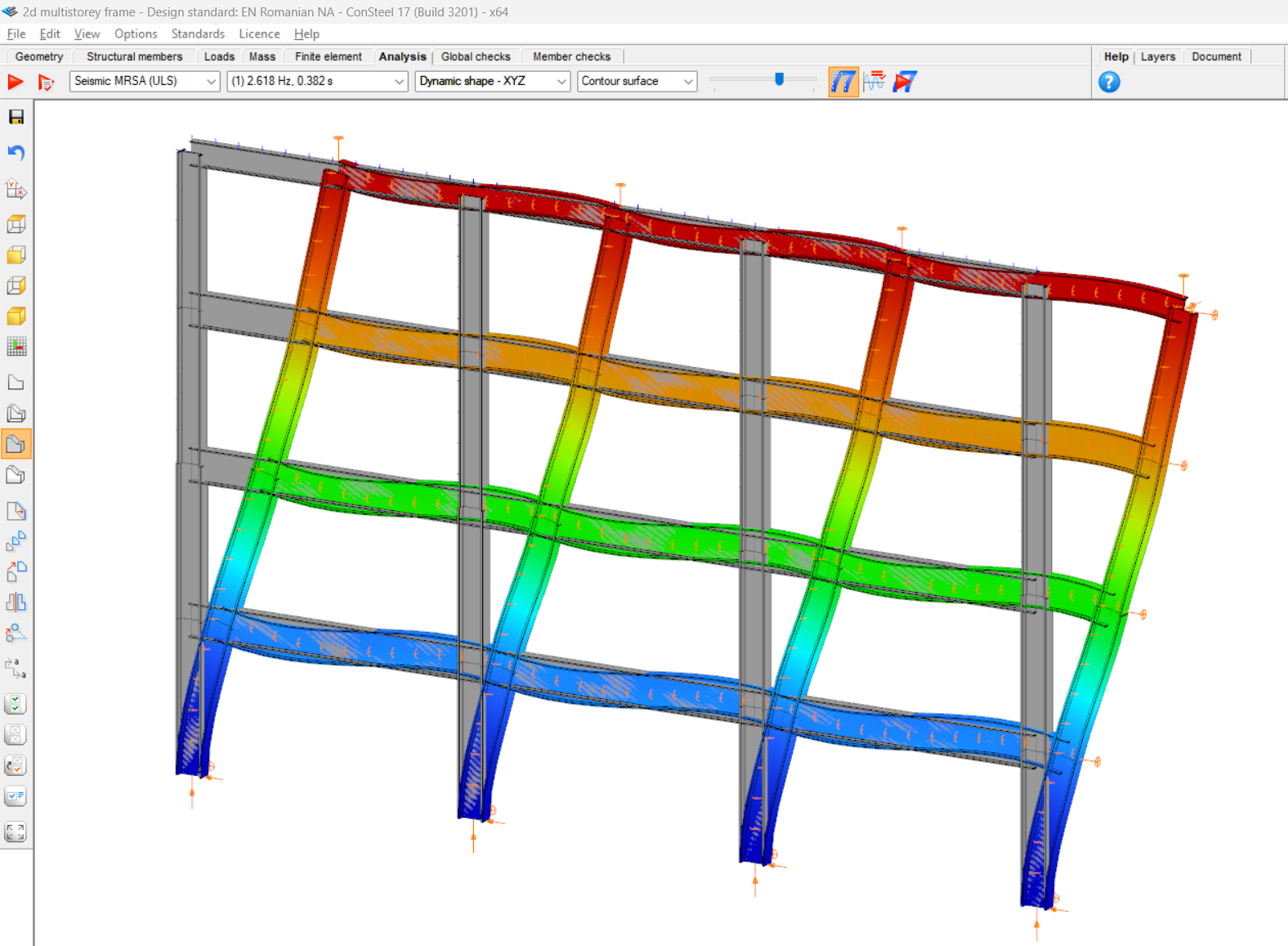
Did you know that in addition the standard Type 1 and Type 2 response spectrums defined by Eurocode 8, you can use also user-defined spectrums with Consteel? Download the example…
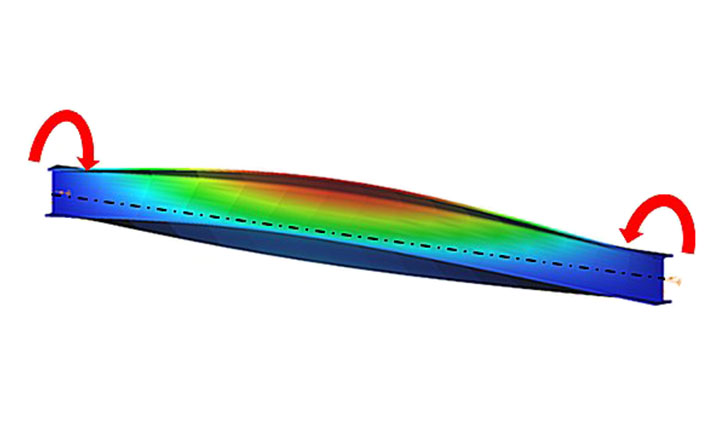
Introduction When a beam, bent in a plane, is allowed to move and twist freely between its two support points, in addition to bending, sudden perpendicular displacement and twisting may…
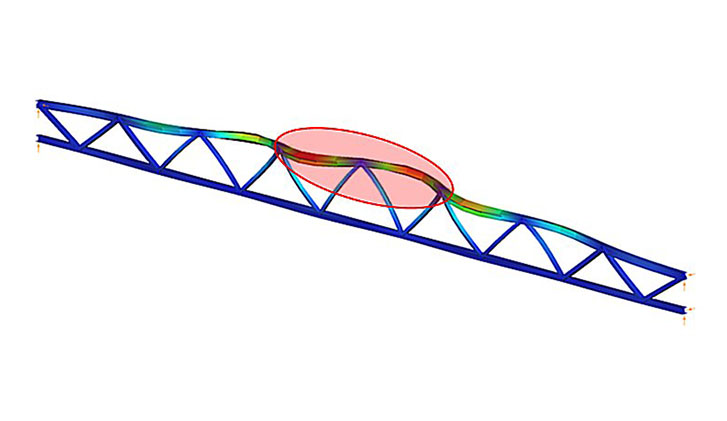
Designing a lattice girder The design of the bars of a truss (lattice girder) structure does not require any special theoretical knowledge: normally, the truss bars are designed as compressed…
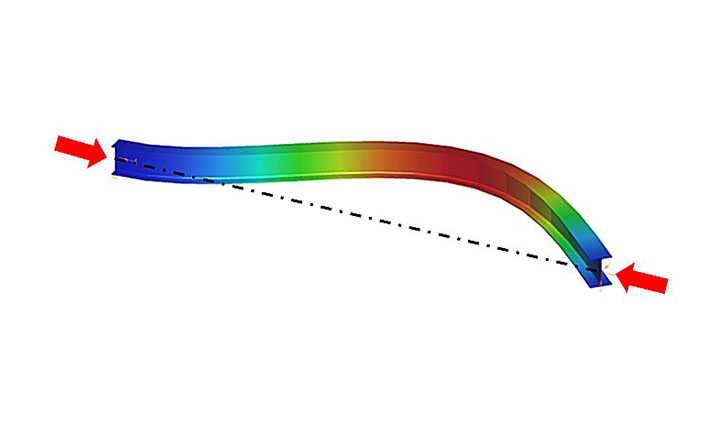
The evolution of compressed bar (column) design One of the characteristic features of steel structures made of bars (e.g. lattice girders) is the compressed bar. We speak of a compressed…
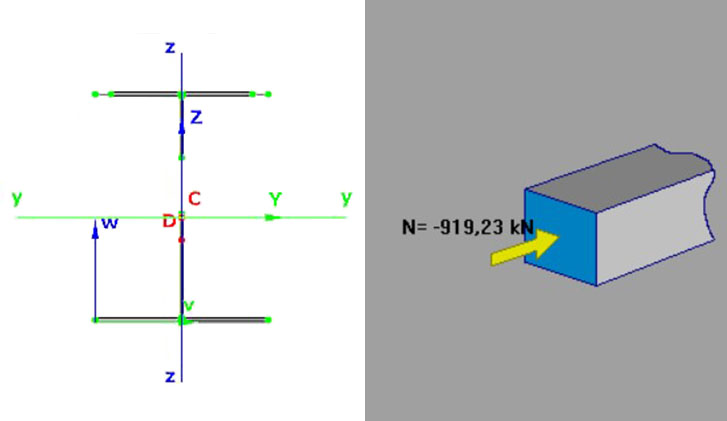
This overview delves into Consteel’s solution, offering an alternative approach to calculating effective cross-sectional properties and reshaping conventional methodologies in structural analysis and design. Determine the strength utilization of a…
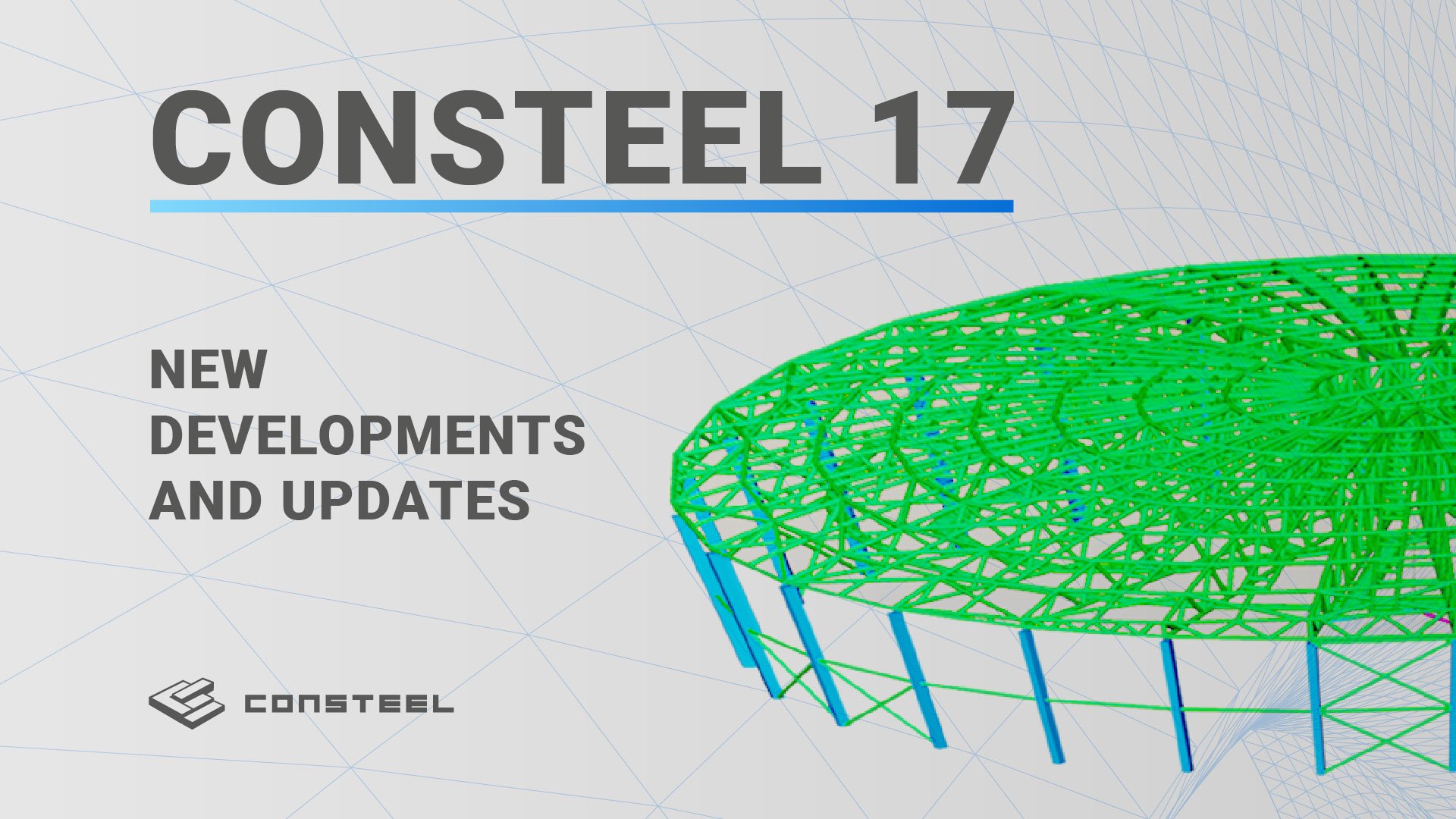
The latest version, Consteel 17 is officially out! In 2023, our main focus for Consteel development is improving usability. New features prioritize efficient model manipulation, easy modification, and clear information…
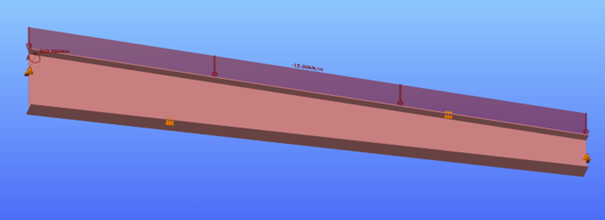
Did you know that you can use Consteel to calculate the elastic critical moment of a member subject to arbitrary loading and boundary conditions? Download the example model and try…
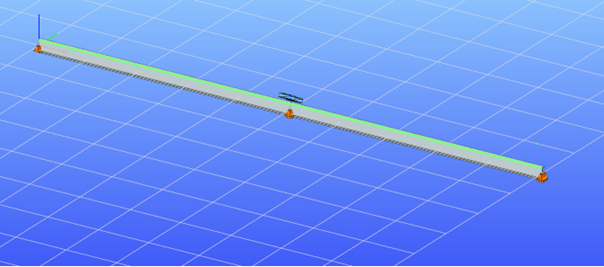
Did you know that you can use Consteel to design simple supported, continuous and over-lapped purlins systems in Consteel, considering shear and rotational stiffness of attached roof sheeting? Download the…
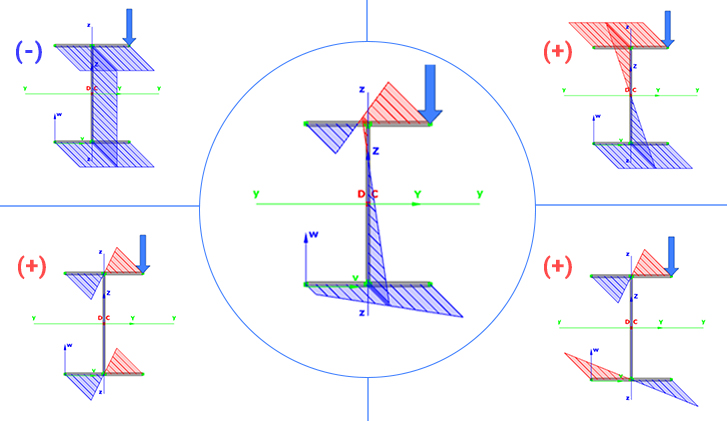
In Consteel, the calculation of cross sectional interaction resistance for Class 3 and 4 sections is executed with the modified Formula 6.2 of EN 1993-1-1 with the consideration of warping…
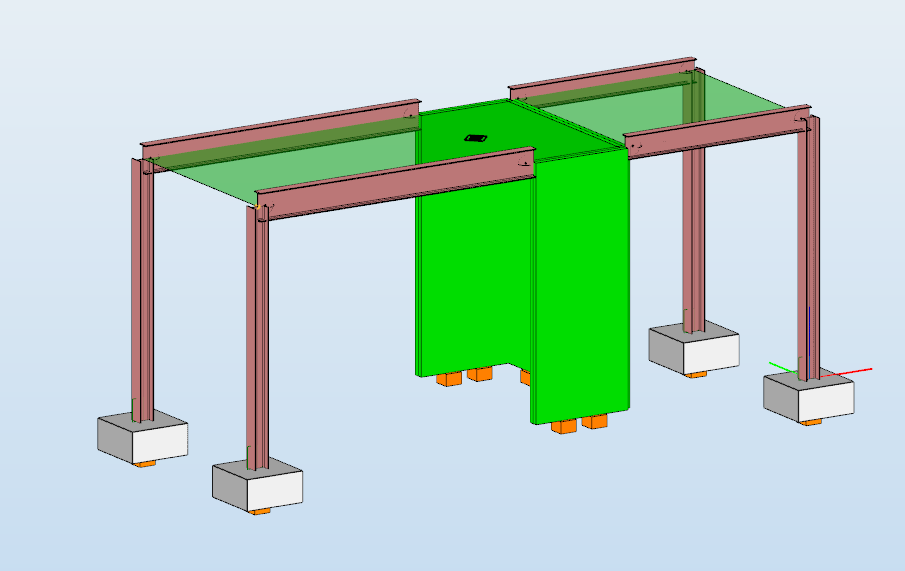
Did you know that you can use Consteel to design pad foundations? Download the example model and try it! If you haven’t tried Consteel yet, request a trial for free!
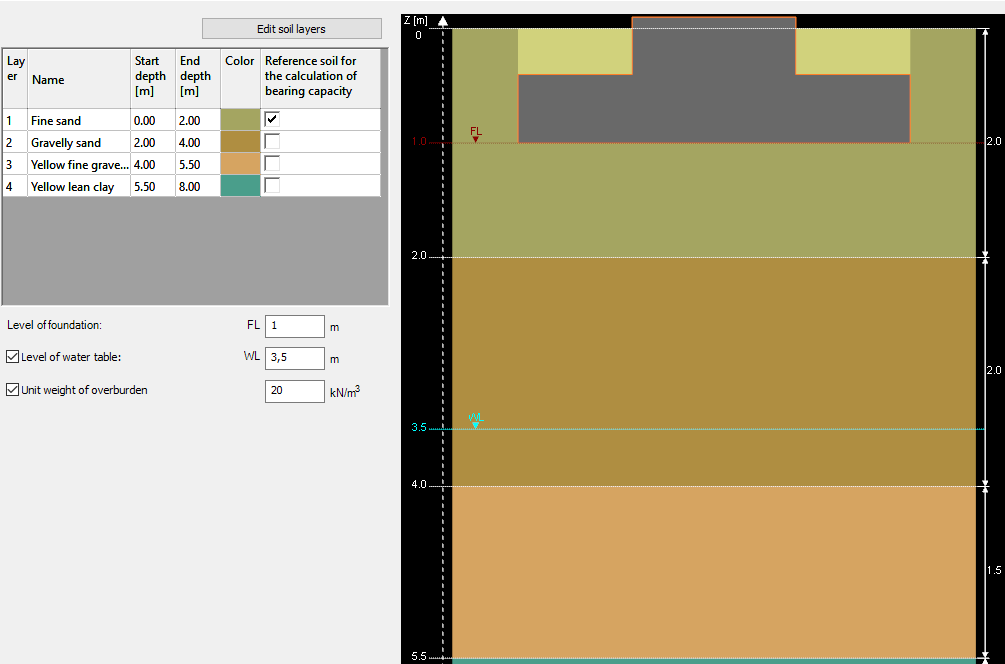
Did you know that you can use Consteel to calculate support settlement? Download the example model and try it! If you haven’t tried Consteel yet, request a trial for free!
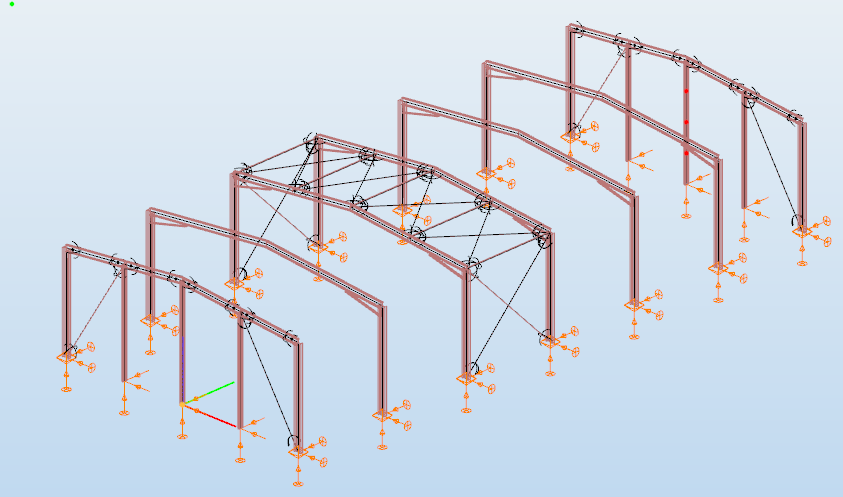
Did you know that you can use Consteel to apply your own scripts to build models and perform calculations? Try it! If you haven’t tried Consteel yet, request a trial…
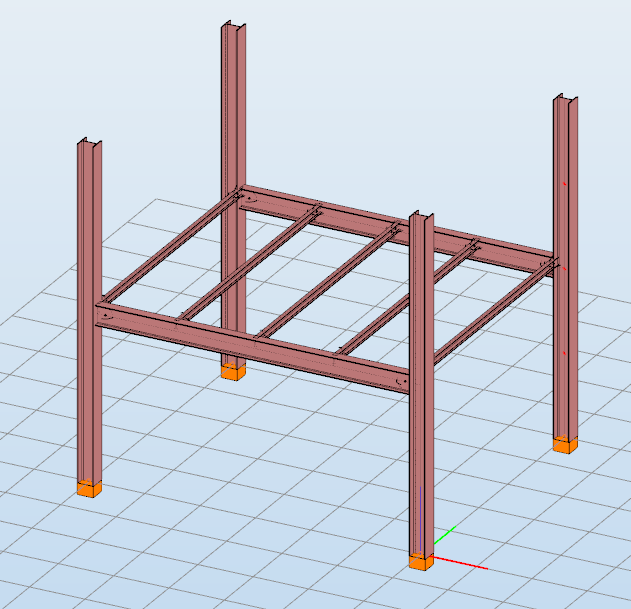
Did you know that you could use Consteel to build 3D models with smart link elements which automatically adapt the model when profiles are changed? Download the example model and…
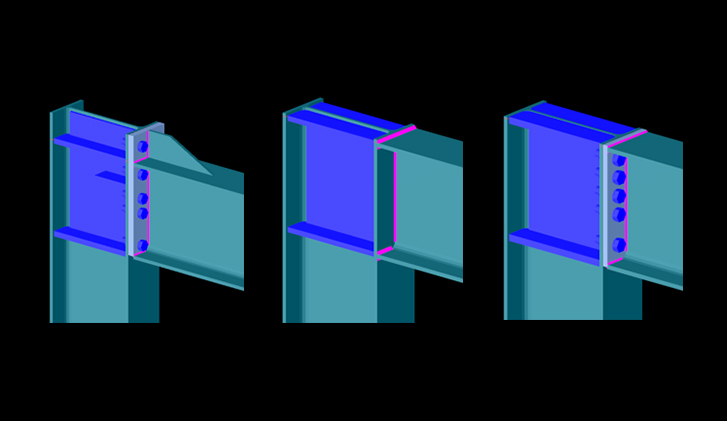
Did you know that you could use Consteel to calculate rotational stiffness for bolted column/beam moment bearing connections? Download the example model and try it! If you haven’t tried Consteel…
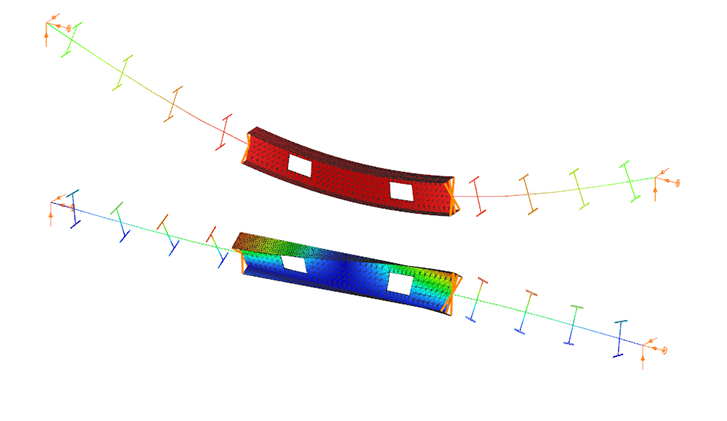
Did you know that you could use Consteel to perform dual analysis with 7DOF beam and/or shell elements? Download the example model and try it! If you haven’t tried Consteel…
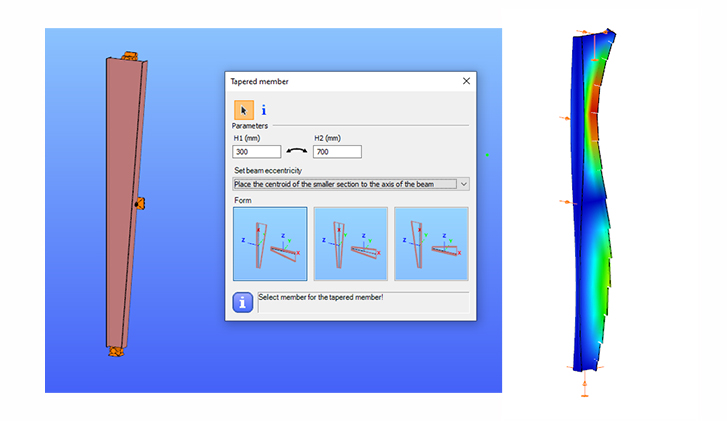
Did you know that you could use Consteel to design web-tapered members? Download the example model and try it! If you haven’t tried Consteel yet, request a trial for free!
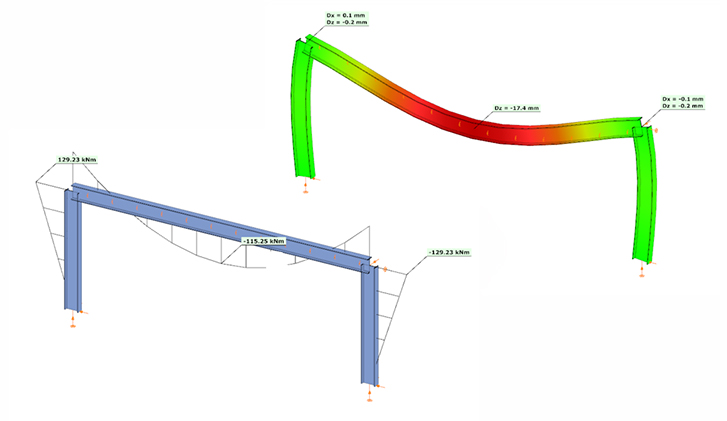
Did you know that you could use Consteel to consider connection stiffness for global analysis? Download the example model and try it! If you haven’t tried Consteel yet, request a…
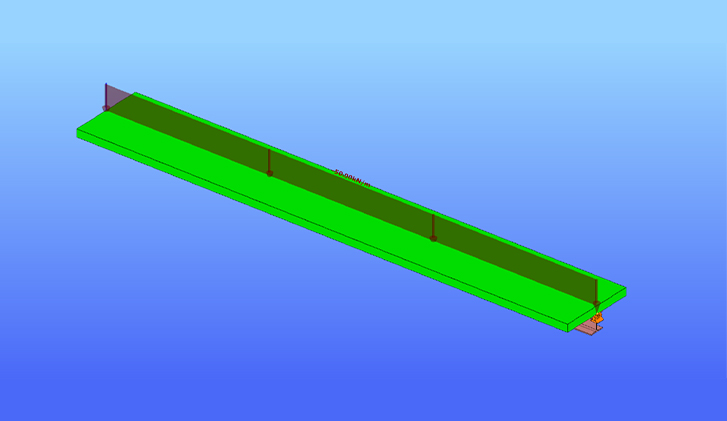
Did you know that you could use Consteel to determine the optimum number of shear connectors for composite beams? Download the example model and try it! If you haven’t tried…
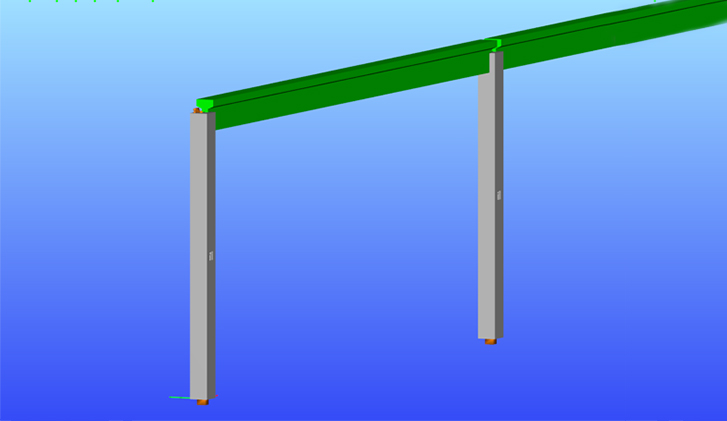
Did you know that you could use Consteel to determine automatically the second order moment effects for slender reinforced concrete columns? Download the example model and try it! If you…
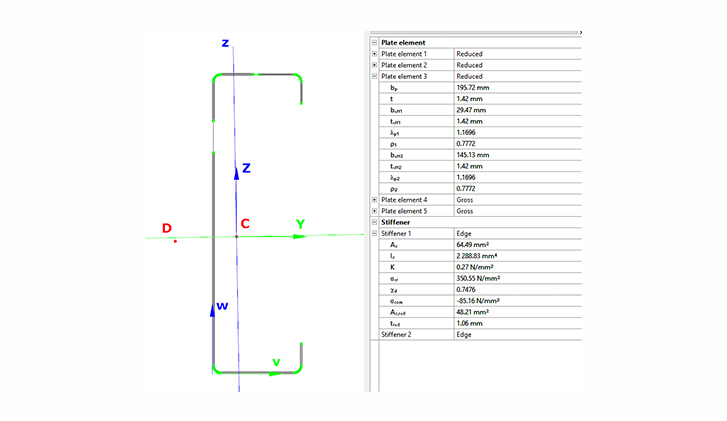
Did you know that you could use Consteel to perform local and distortional buckling checks for cold-formed members? Download the example model and try it! If you haven’t tried Consteel…
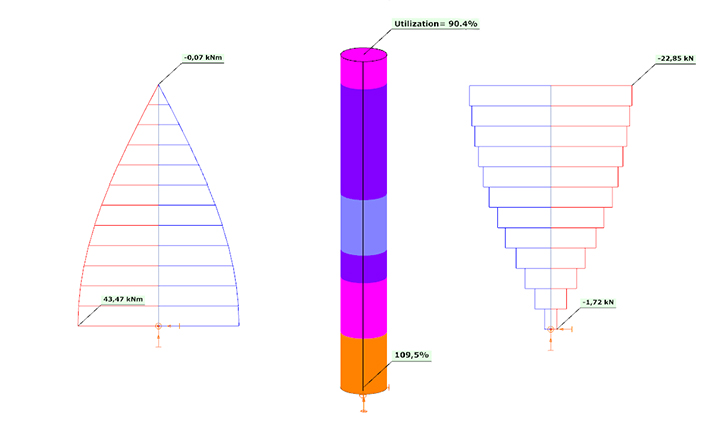
Introduction Reinforced concrete columns are essential structural elements in the construction industry. They are used, for example, in frame buildings, halls, family houses and bridges. They are used in both…
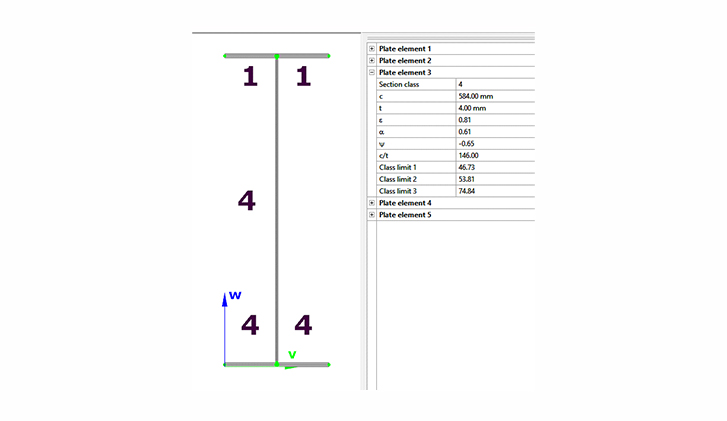
Did you know that you could use Consteel to calculate effective cross-section properties for Class 4 sections? Download the example model and try it! If you haven’t tried Consteel yet,…
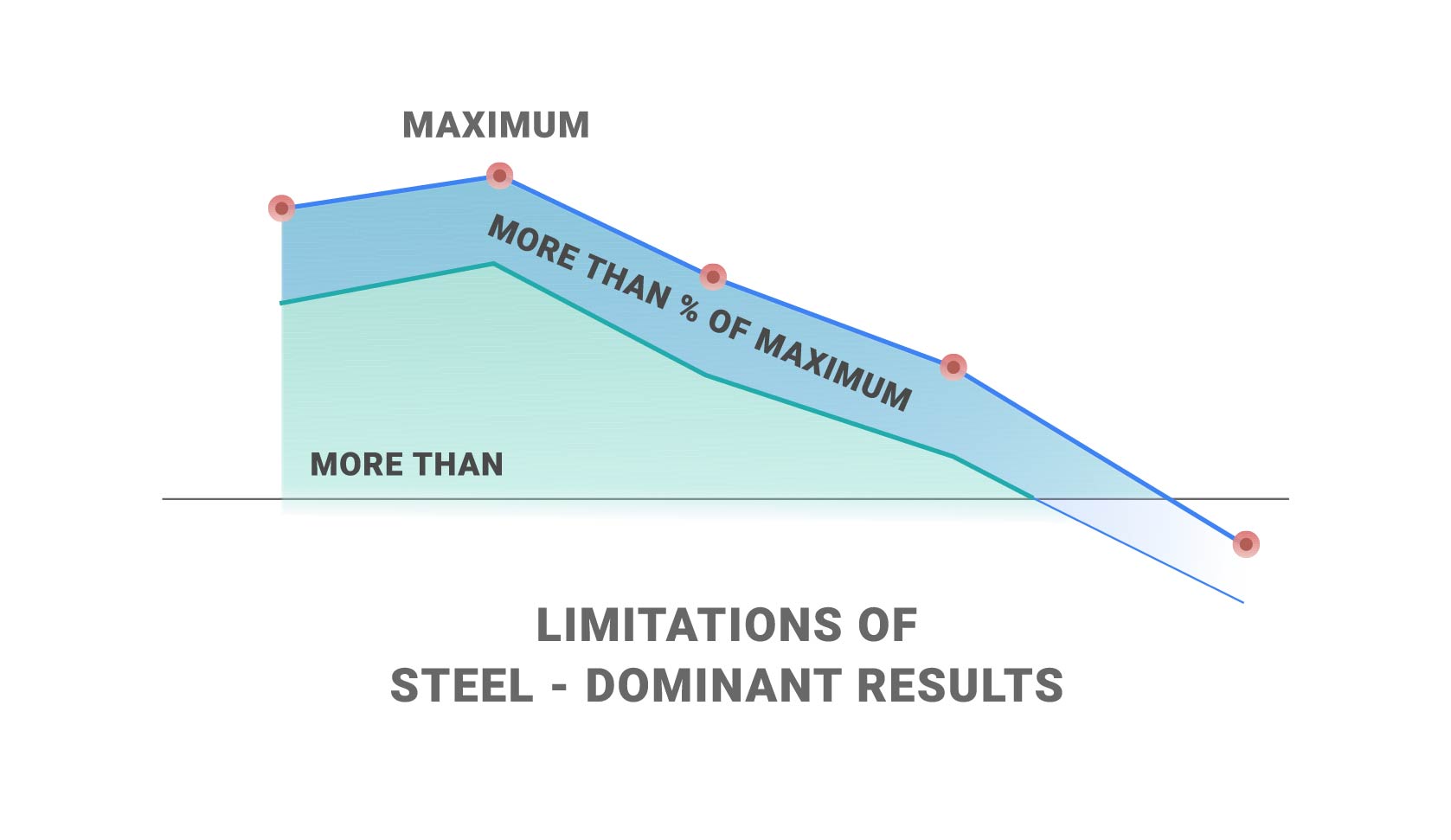
When applying design rules in load combination filter, the most frequently used utilization type is Steel – Dominant results. What results are exactly considered by this option and what do…
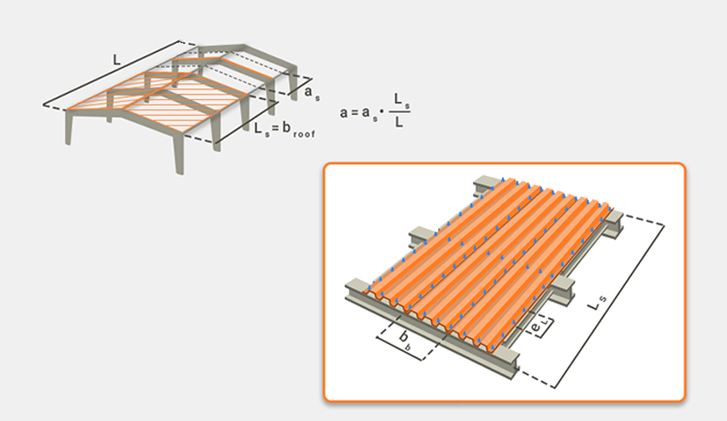
Did you know that you could use Consteel to Consider the shear stiffness of a steel deck as stabilization for steel members? Download the example model and try it! If…
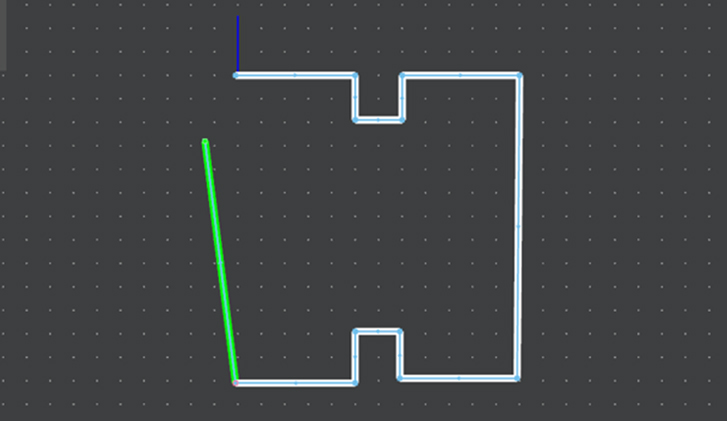
Did you know that you could use Consteel to draw a user-defined cross section and calculate its section properties? Download the example model and try it! If you haven’t tried…
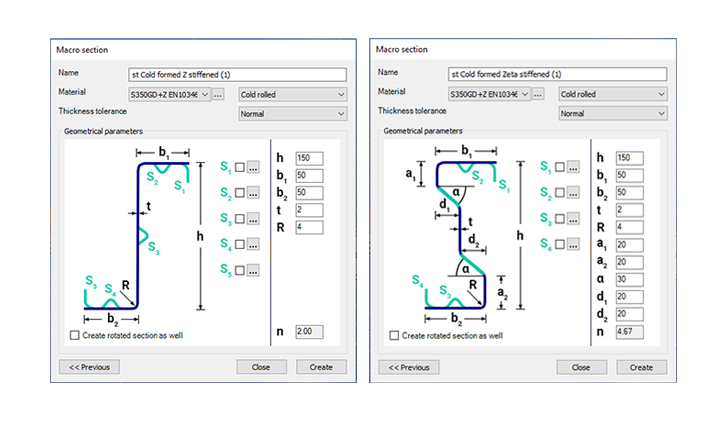
Did you know that you could use Consteel to include in your model a wide range of cold-formed macro sections? Download the example model and try it! If you haven’t…
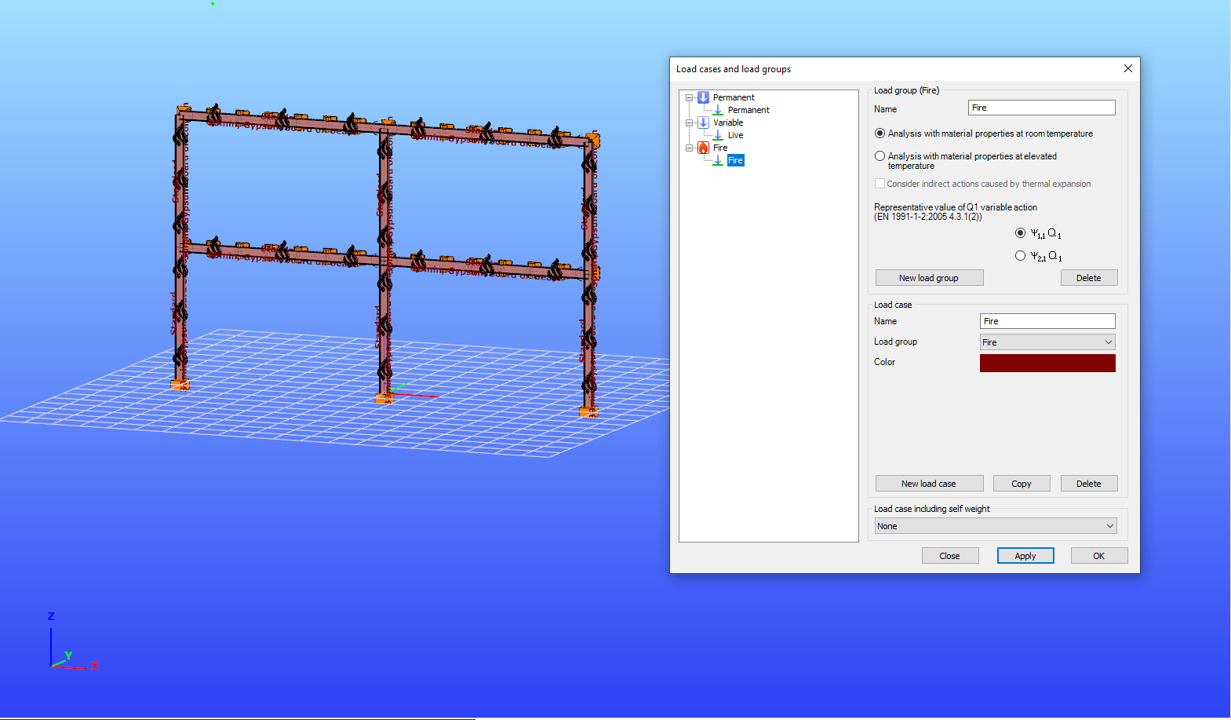
Did you know that you could use Consteel to perform structural analysis at room and elevated temperatures as part of design process for fire resistance? Download the example model and…
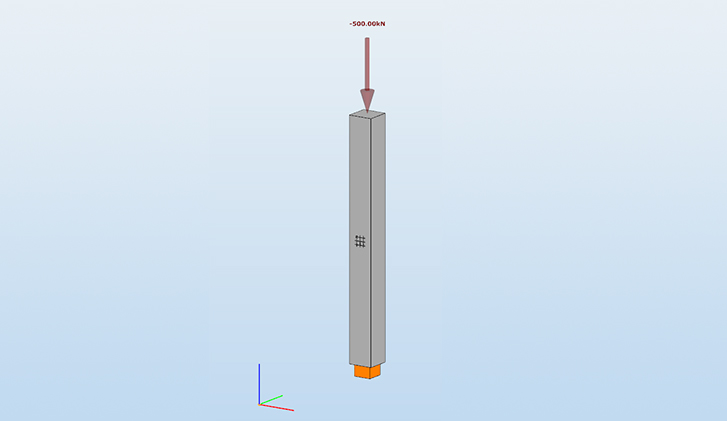
Introduction In ConSteel, there are three options for designing reinforced concrete columns: the Manual Nominal Curvature Method, the Automatic Nominal Curvature Method, and the Nominal Stiffness Method. Each method has…
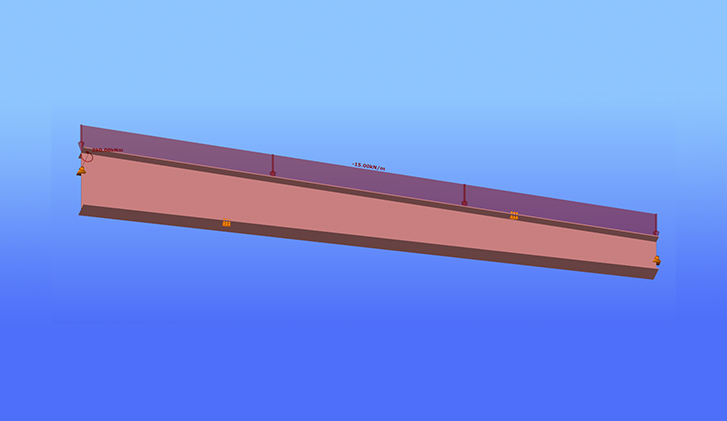
Did you know that you could use Consteel to calculate the elastic critical moment of a member subject to arbitrary loading and boundary conditions? Download the example model and try…
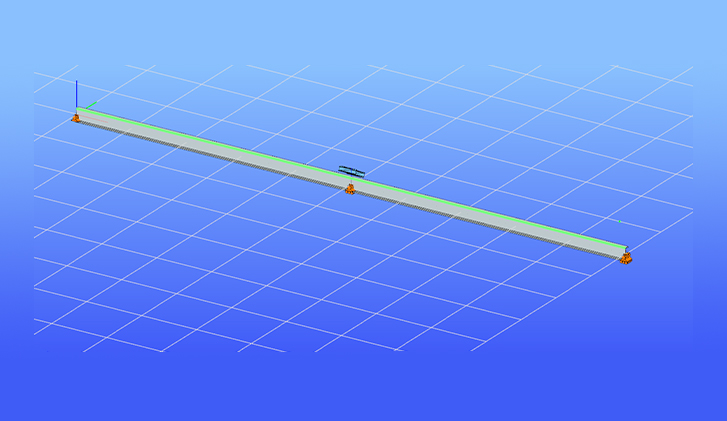
Did you know that you could use Consteel to design simple supported, continuous and over-lapped purlins systems, considering shear and rotational stiffness of attached roof sheeting? Download the example model…
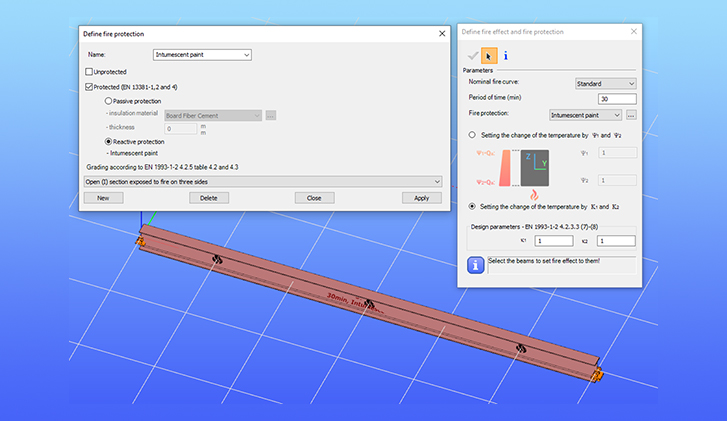
Did you know that you could use Consteel to determine the critical temperature of a steel beam protected against fire with intumescent painting? Download the example model and try it!…
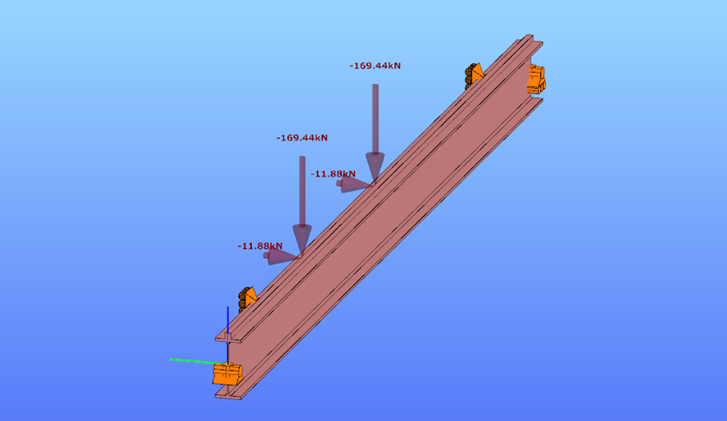
Did you know that you could use Consteel to design a hot-rolled crane beam considering the effect of code-prescribed load eccentricities? Download the example model and try it! If you…
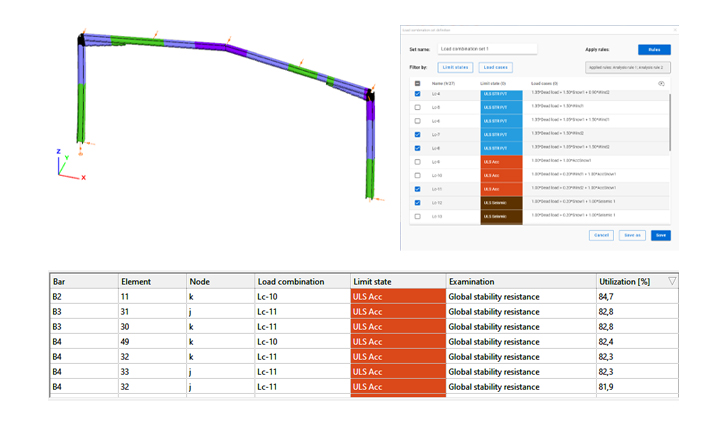
Consteel offers a range of load combination filtering options, which can be applied based on limit states, load cases, and analysis and design results. By applying different series of filters,…
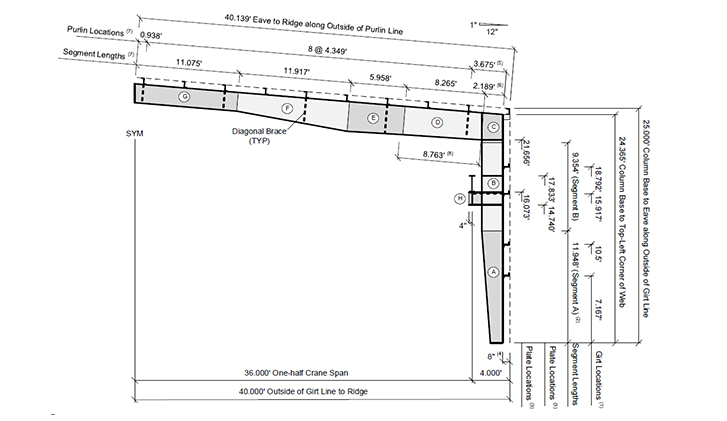
This paper discusses a combination of best practices and procedures from recent work in Europe and the US, providing rational and economical calculations addressing the complexities associated with frame design…
In Consteel 16, we introduced the function of load combination filter. Filtering is possible based on the load combinations’ limit state, load cases, and corresponding analysis and design results. The…
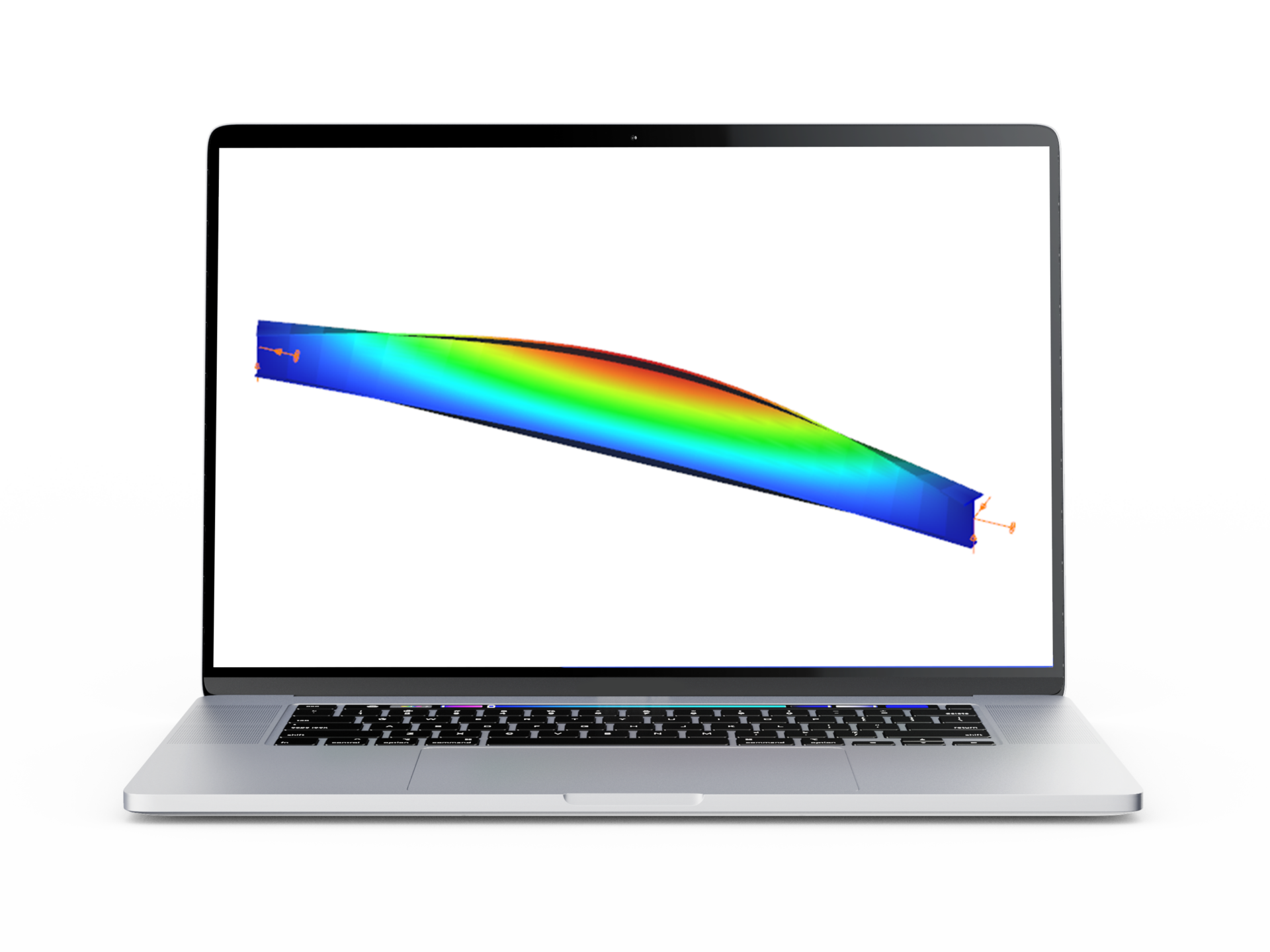
Einleitung Dieses Überprüfungsbeispiel untersucht ein einfaches beidseitig starr gabelgelagertes Trägerelement mit geschweißtem Querschnitt (Flansche: 200-12 und 100-12; Steg: 400-8), das einer Biegung um die starke Hauptachse ausgesetzt ist. Es wird…
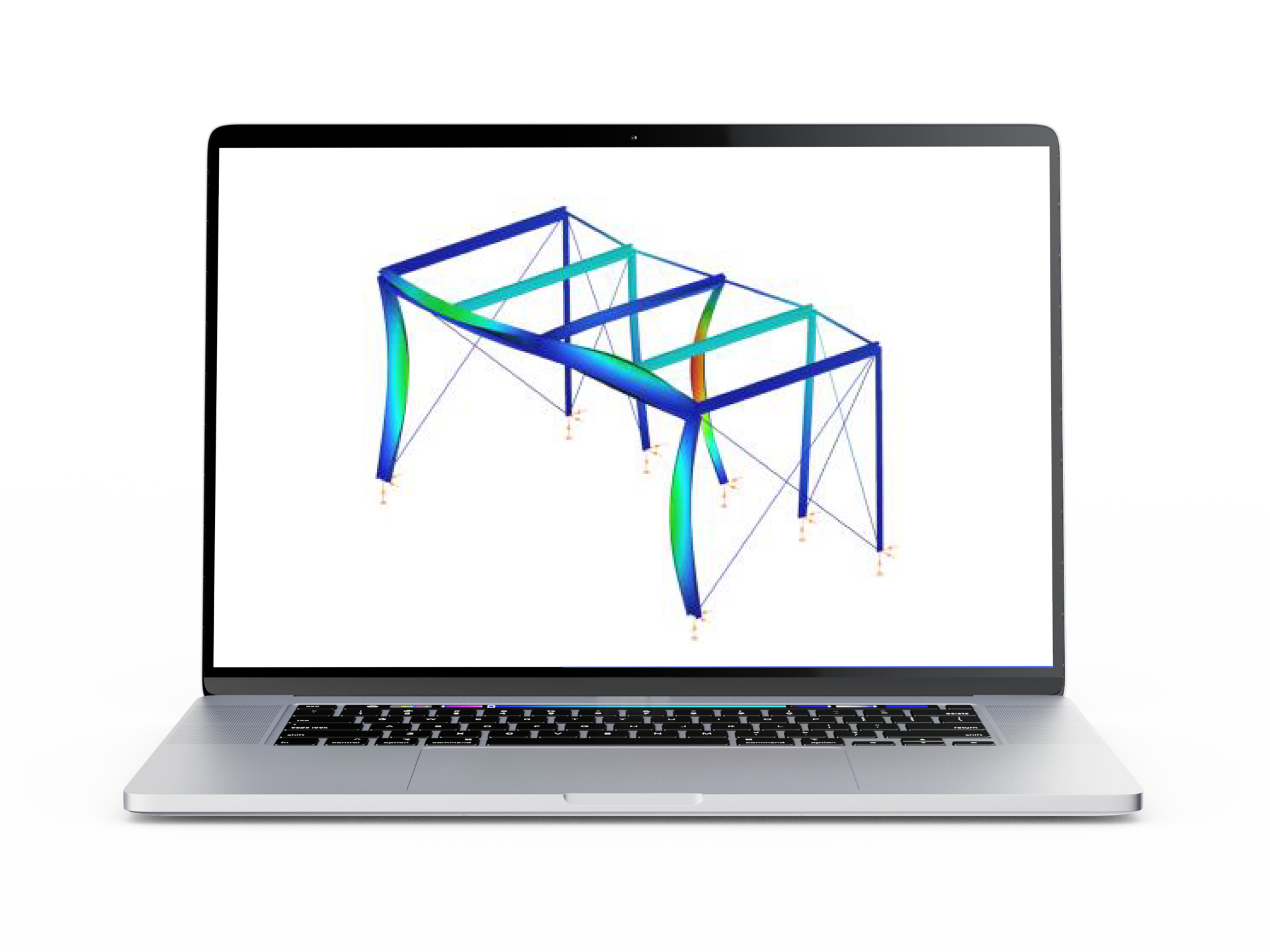
Die praktische Anwendung des „Allgemeinen Verfahrens“ von EN 1993-1-1 6.3.4 für die Stabilitätsnachweise von globalen (kompletten) Tragwerksmodellen ist auch heute noch eine Herausforderung, die mehrere Probleme zu lösen erfordert. Hier…
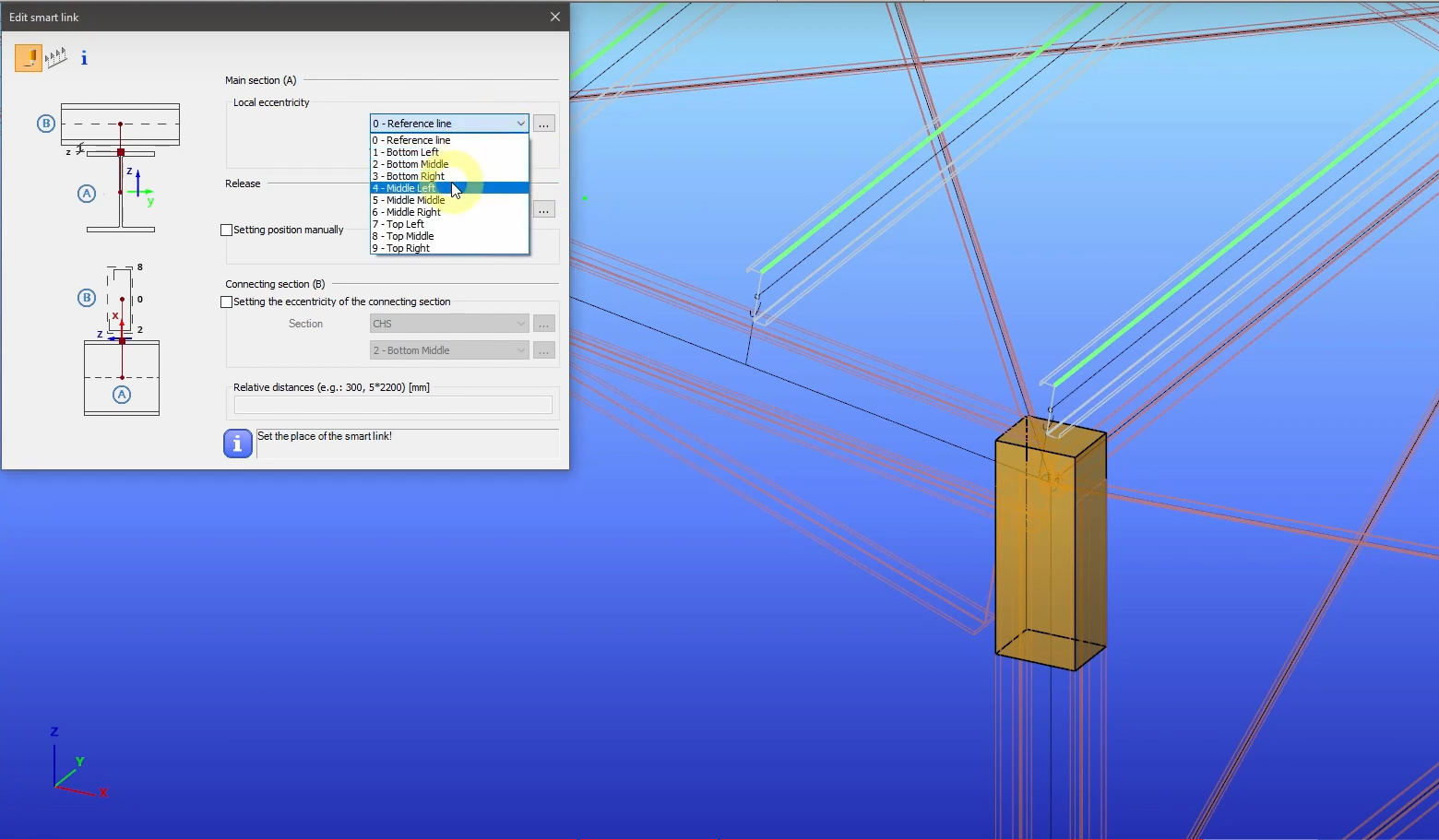
Die Smartlink-Funktion ist eine andere Version des bereits vorhandenen Link-Elements, das mit Version 14 in Consteel eingeführt wurde. Im Fall des Smartlinks haben wir zur einfacheren Anwendung eine andere Definitionsmethode…
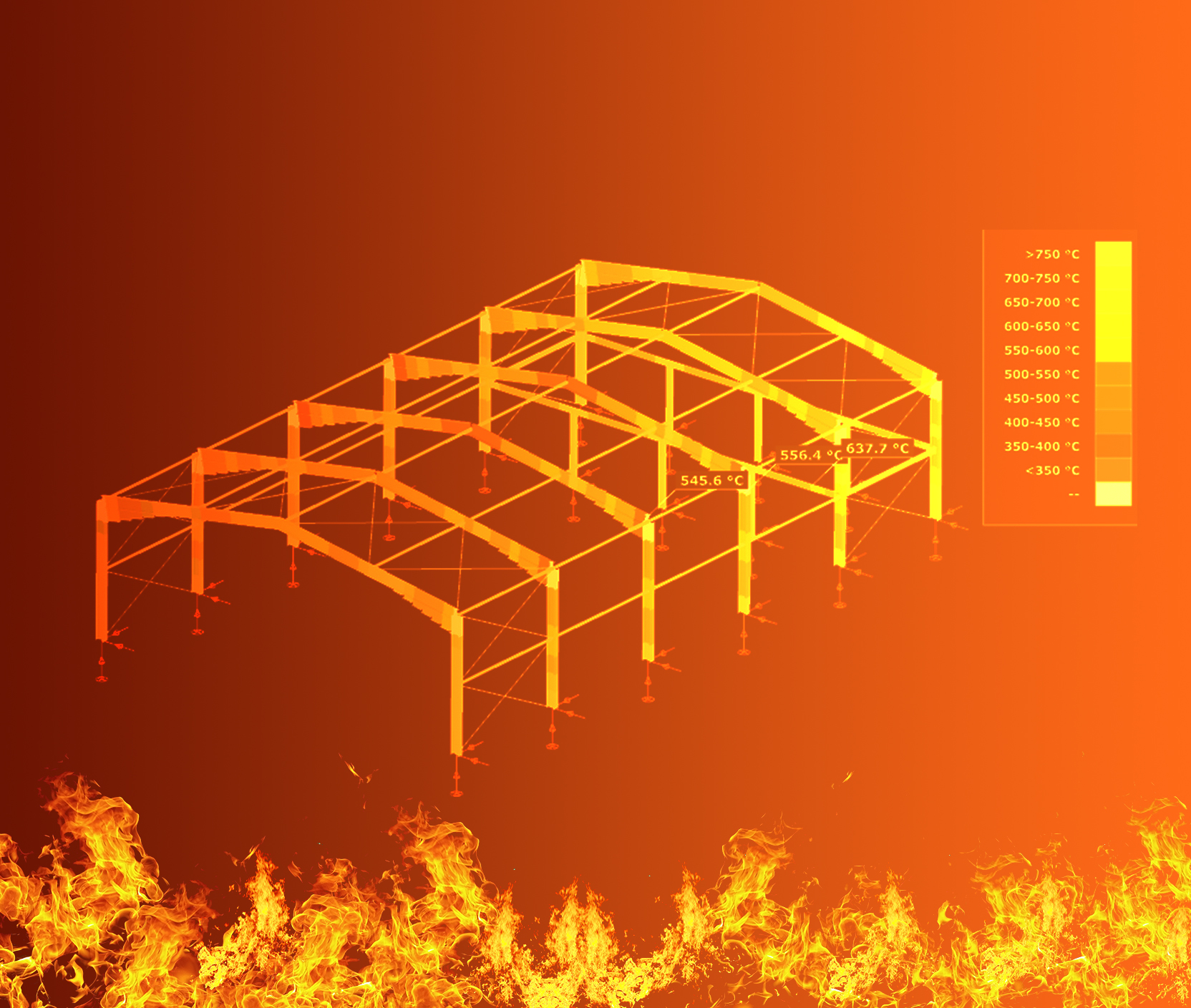
Die Berechnung der kritischen Temperatur von Stahlbauteilen steht in ConSteel seit der Veröffentlichung von Version 14 zur Verfügung. Zur Einführung in diese Funktion haben wir ein Video vorbereitet, das einige…

Einführung Dieses Beispiel untersucht einen beidseitig starr gabelgelagerten Balken mit Schweißquerschnitt, der einem IPE 360 entspricht (Flansche: 170-12,7; Steg: 347-8). Er unterliegt biaxialer Biegung aufgrund konzentrierter Endmomente um beide Hauptachsen…
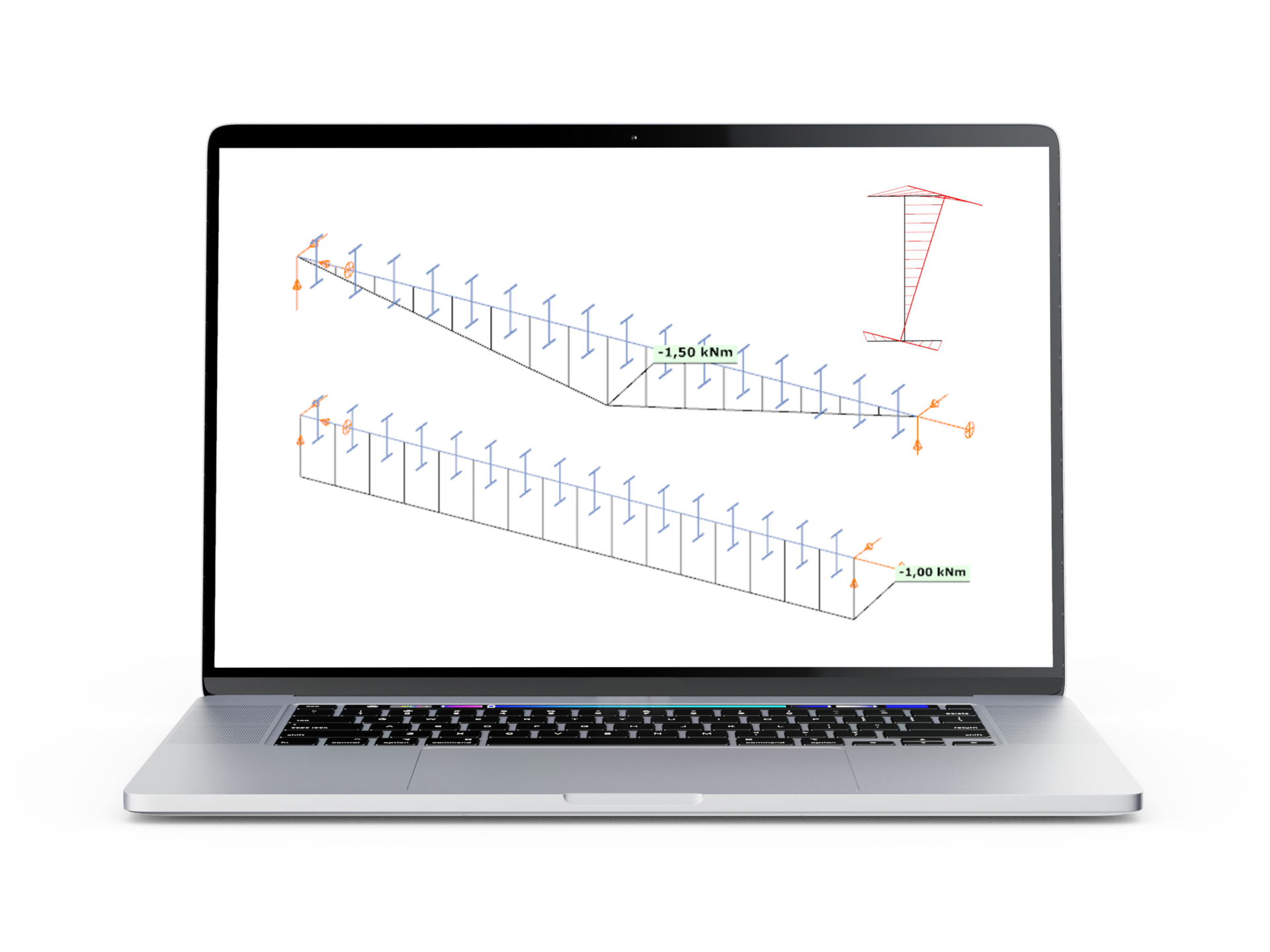
Einführung Dieses Überprüfungsbeispiel untersucht ein einfaches gabelgelagertes Trägerelement mit geschweißtem Querschnitt (Flansche: 200-12; Steg: 400-8), das mit Biegung um die starke Hauptachse ausgesetzt ist. Untersucht wird das konstante Biegemoment aus…
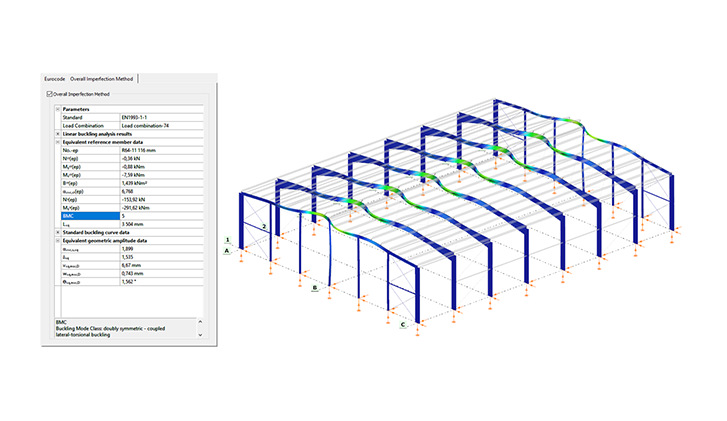
Die allgemeine Imperfektionsmethode (Overall Imperfection Method ) ist eine alternative Methode zur Durchführung des Stabilitätsnachweises für ein stabartiges stählernes Tragwerk. Bei diesem Verfahren wird das Stabilitätsphänomen im Vergleich zum allgemeinen…
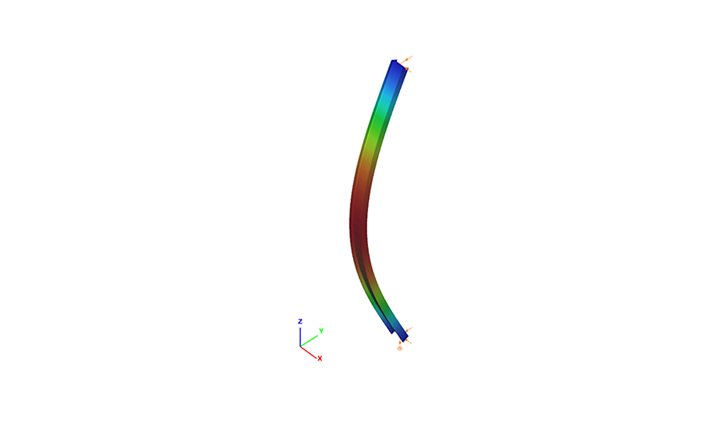
Teil 2 – Abminderungsfaktoren DIN EN 1993-1-1 bieten grundsätzlich zwei Methoden des Tragfähigkeitsnachweises stabilitätsgefährdeter Bauteile: (1) Verwendung von Abminderungsfaktoren (Knickkurven) und (2) Imperfektionsmethode mit Ansatz von äquivalenten geometrischen Imperfektionen („Ersatzimperfektionen“).
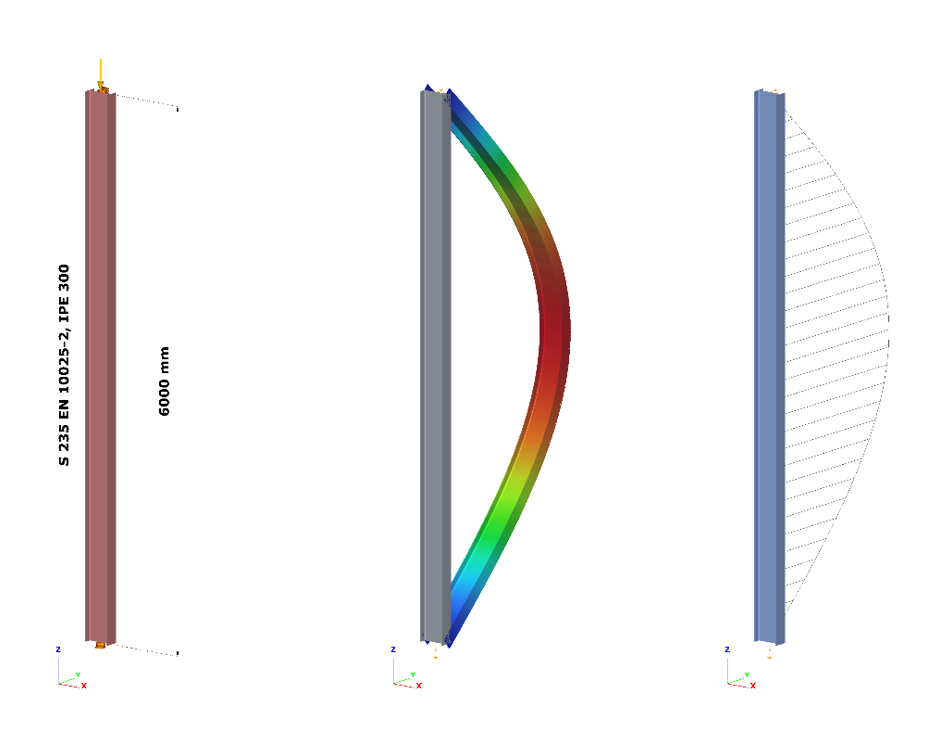
Teil 1: Unterschiede bei der Stabilitätsausnutzung Der Eurocode EN 1993-1-1 bietet grundsätzlich zwei Verfahren für den Stabilitätsnachweis von Stäben an: (1) basierend auf Abminderungsfaktoren (Knickkurven) und (2) basierend auf äquivalenten…

Sehen Sie sich unser Benutzerhandbuch zur Verwendung der OIM-Methode (Imperfektionsmethode) an, um mehr zu erfahren. Version: CS14.831 CKlicken Sie auf die Schaltfläche unten, um das Modell herunterzuladen.

Die Berechnungsergebnisse von Stahlrahmen mit Spannweiten von 12, 15 und 18 m werden vorgestellt. Als Optimierungskriterium wird deren Mindestmasse angenommen. Bei den Berechnungen wird die Finite-Elemente-Methode verwendet. Die Ergebnisse der…
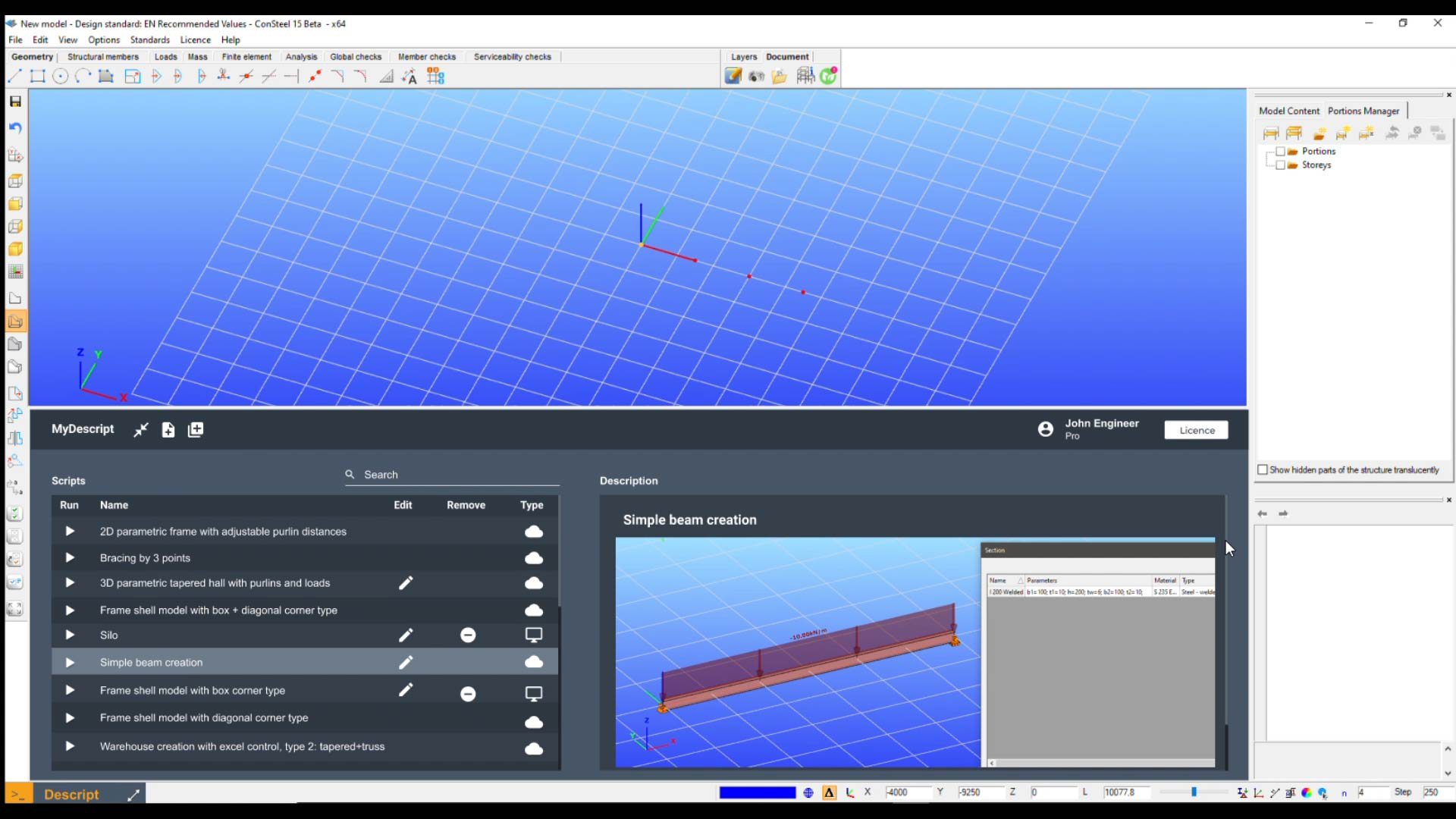
Scripting ist ein leistungsstarkes Werkzeug in Ihrer Hand, um Modellobjekte und Operationen oder Berechnungen für sie flexibel zu erstellen, darauf zuzugreifen und sie zu manipulieren. Werfen Sie einen genaueren Blick…
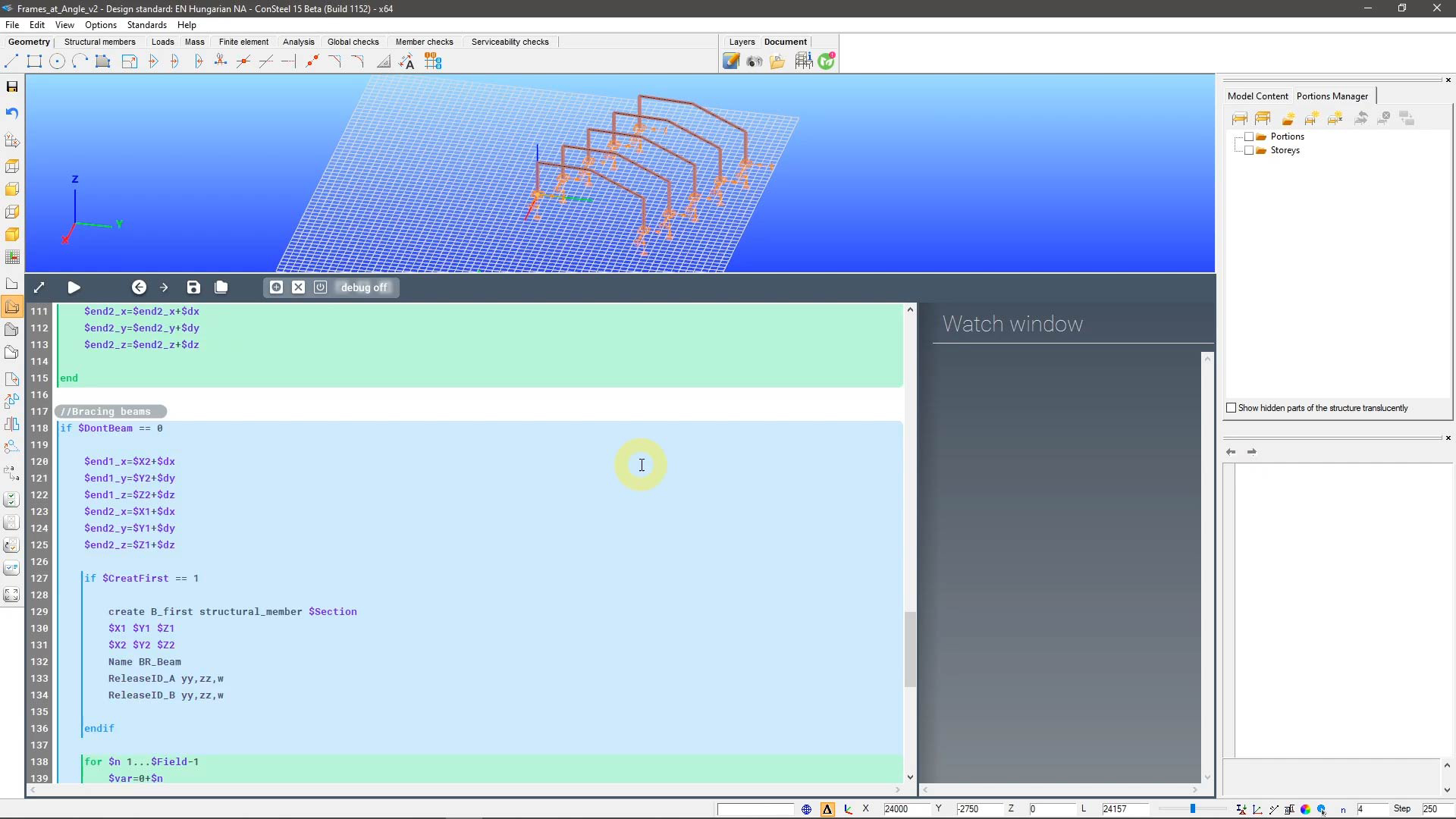
Scripting ist ein leistungsstarkes Werkzeug in Ihrer Hand, um Modellobjekte und Operationen oder Berechnungen für sie flexibel zu erstellen, darauf zuzugreifen und sie zu manipulieren. Wir wissen, dass (auch einfache)…
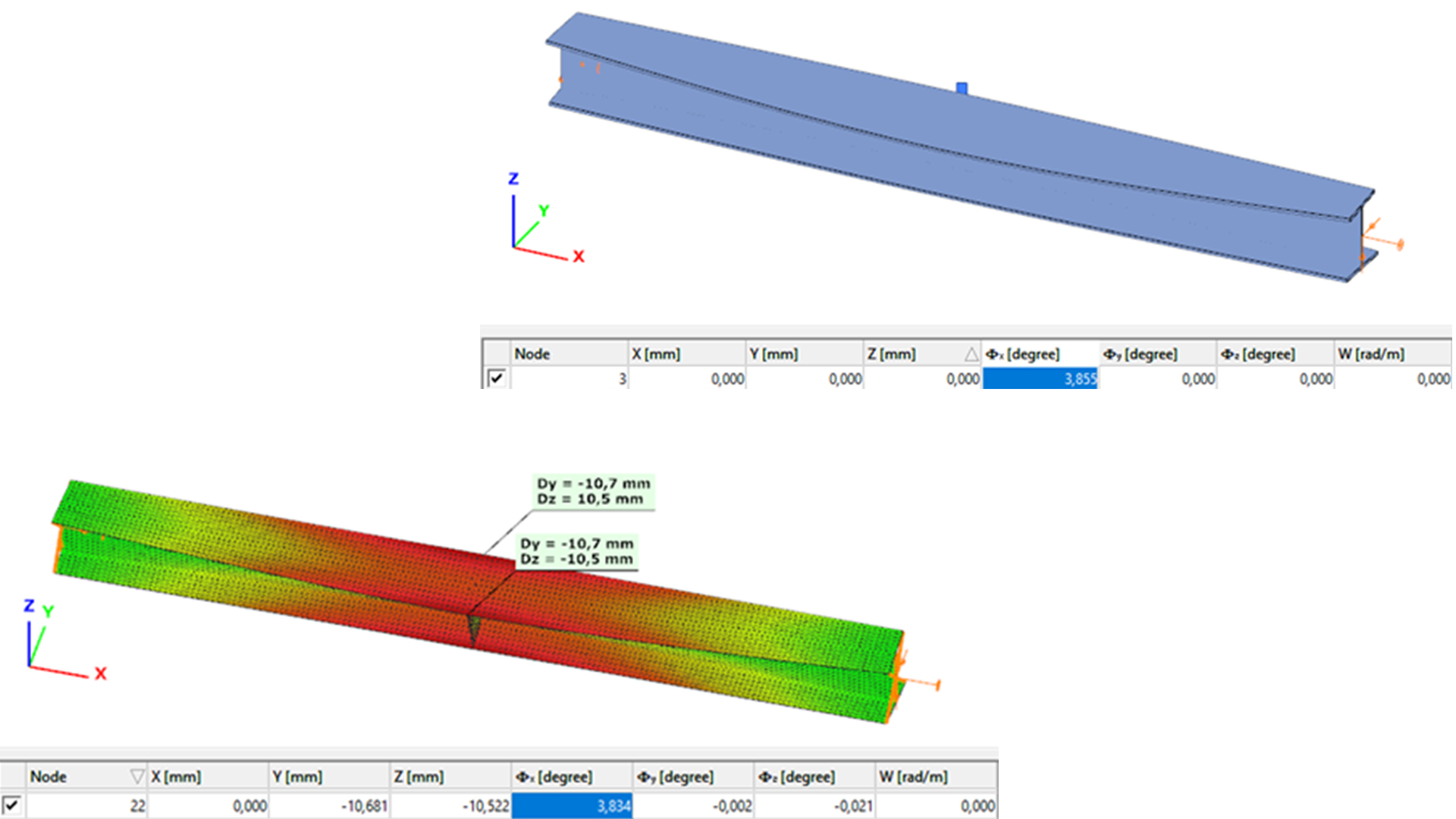
Einführung Unsere Überprüfungsbeispiele werden erstellt, um die Ergebnisse der Handberechnung mit den Ergebnissen der Consteel-Analyse vergleichen zu können, wobei entweder Balkenelemente mit 7 Verformungsfreiheitsgraden (7DOF) oder finite Schalenelementen (einschließlich des…
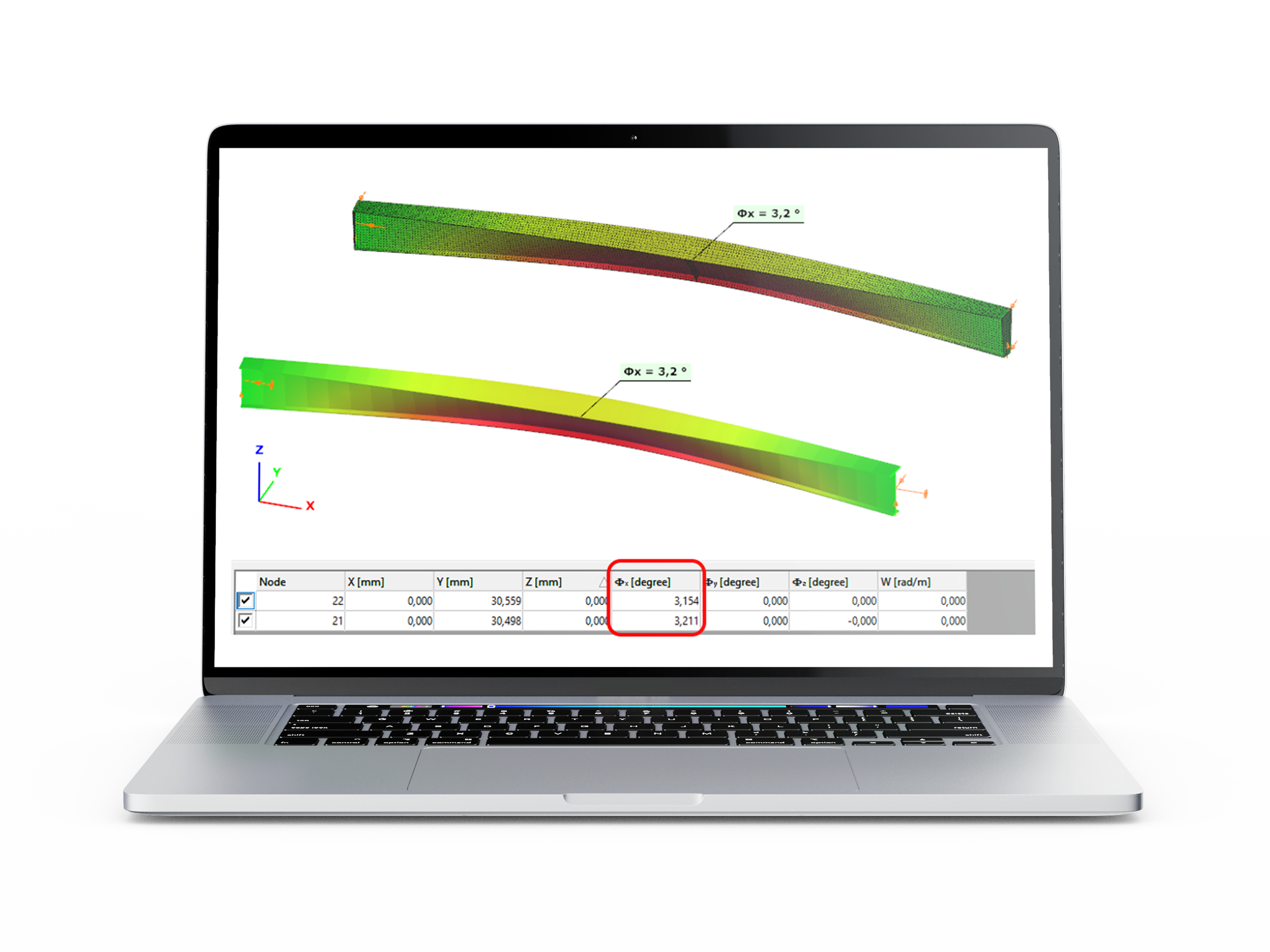
Einleitung Unsere Überprüfungsbeispiele werden erstellt, um die Ergebnisse der Handberechnung mit den Ergebnissen der Consteel-Analyse vergleichen zu können, wobei entweder Balkenelemente mit 7 Verformungsfreiheitsgraden (7DOF) oder finite Schalenelemente verwendet werden.…
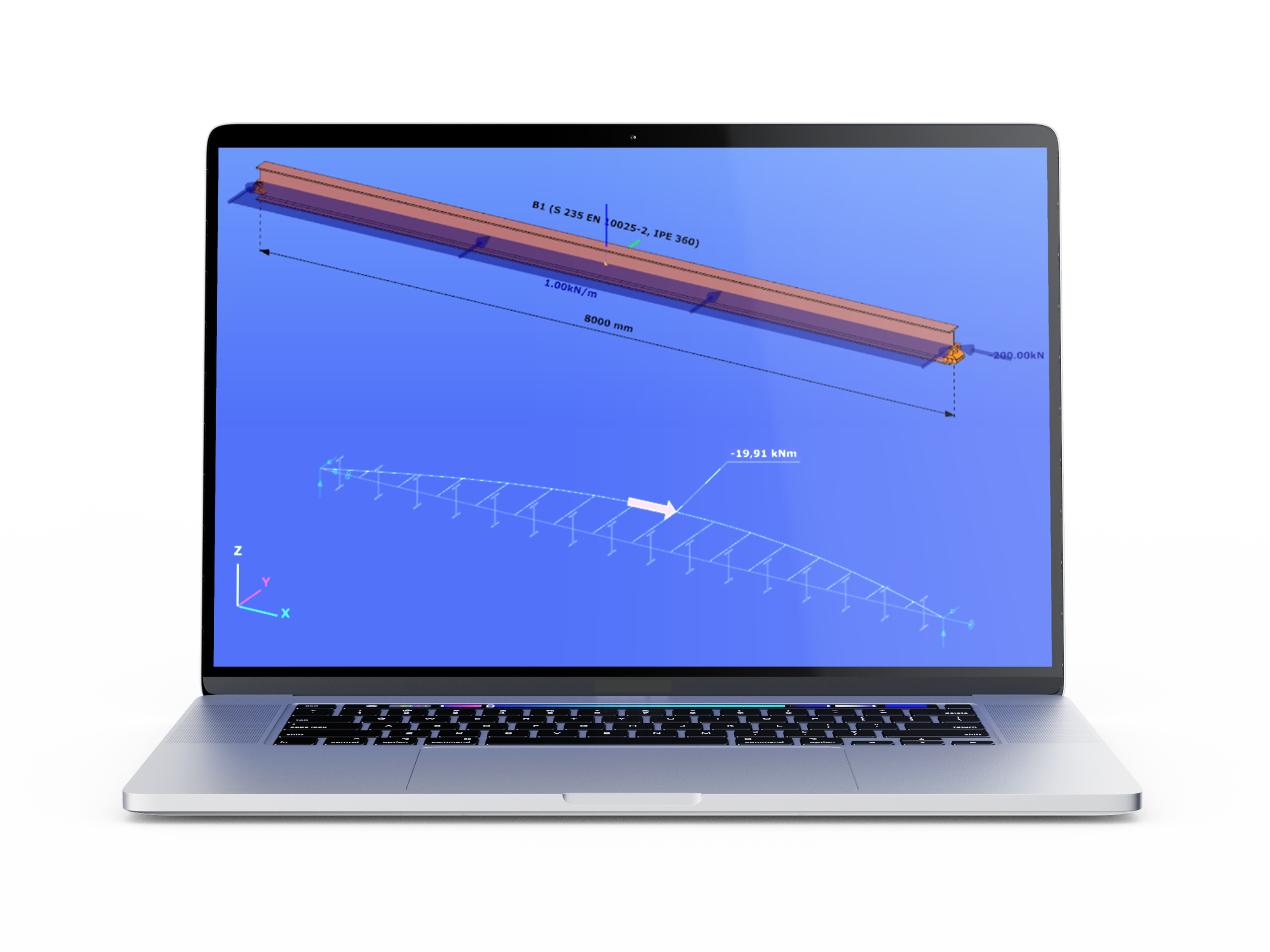
Einleitung Dieses Überprüfungsbeispiel untersucht ein einfaches, starr gabelgelagertes Trägerelement mit IPE-360-Profil, das einer axialen Kraft und Biegung um die schwache Achse aufgrund seitlich gleichverteilten Linienlast ausgesetzt ist. Das Biegemoment zweiter…
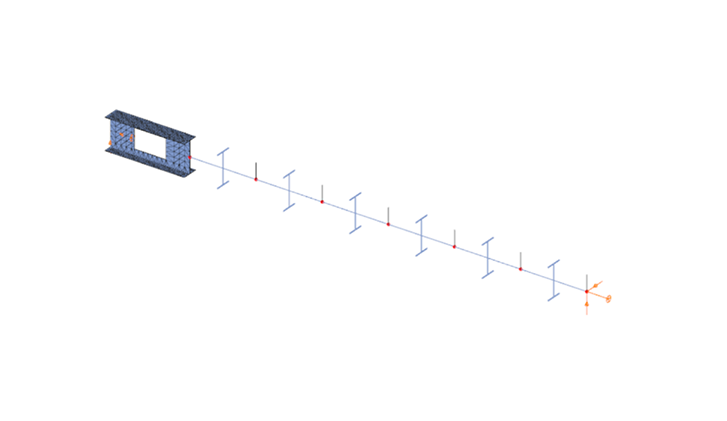
Häufig sind Versorgungsleitungen durch die Stege von Trägern zu führen. Üblicherweise werden dazu Öffnungen in die Stege der Träger verwendet. Die können rund oder eckig sein, abhängig von der Anzahl,…
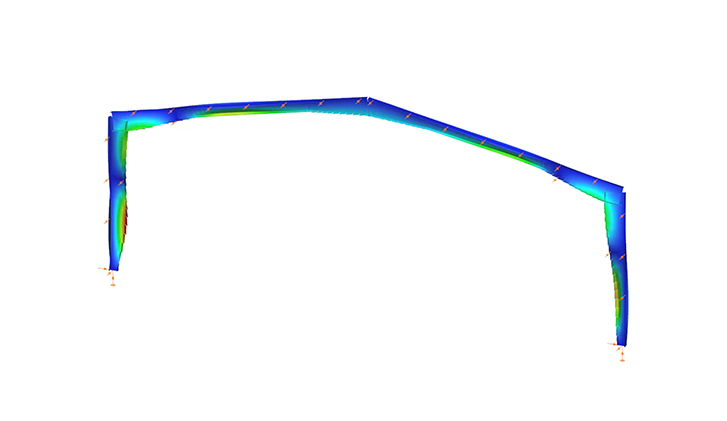
Einführung Für eine klare Vorstellung des Strukturverhaltens und einer effektiven Tragwerksplanung ist die Visualisierung der Berechnungsergebnisse essenziell. Ab ConSteel 15 bieten wir eine verbesserte Methode der 3D-Verformungsdarstellung, die glatt und…
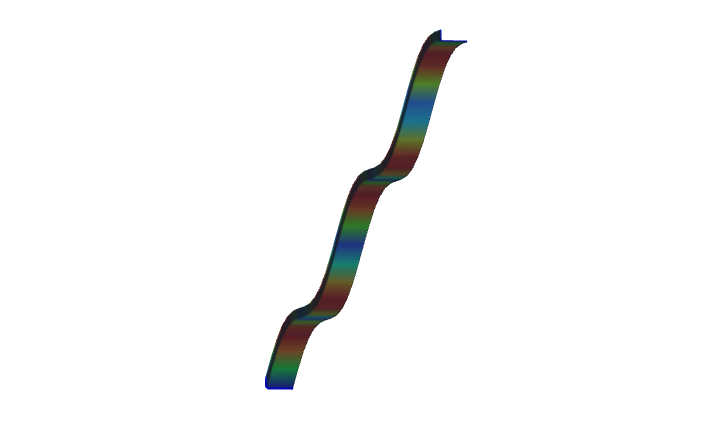
In unserer kleinen Serie zu diesem Thema zeigten wir in Teil 1 und Teil 2, wie die Federsteifigkeiten „K” für Rand- und Mittelversteifungen berechnet werden, die im Folgenden ersatzweise anstatt…
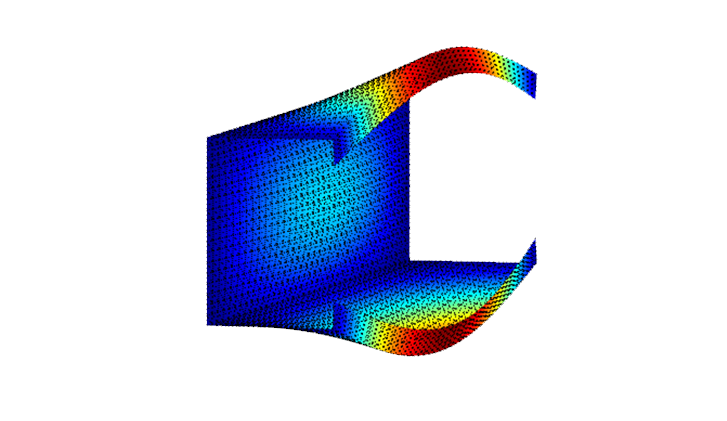
Querschnittsverformung- eine weitere „verborgene“ Formel von DIN EN 1993-1-3. Lesen Sie zunächst Teil 1, falls Sie es noch nicht getan haben. Hier wird die zweite „verborgene” Formel (5.11) von DIN…

DIN EN 1993-1-3 enthält 3 „verborgene“ Formeln. Die ersten beiden dienen der Berechnung des effektiven Querschnitts bei der Querschnittsverformung, bei der die Wirkung von Eck- und Zwischenversteifungen einbezogen wird. Die…
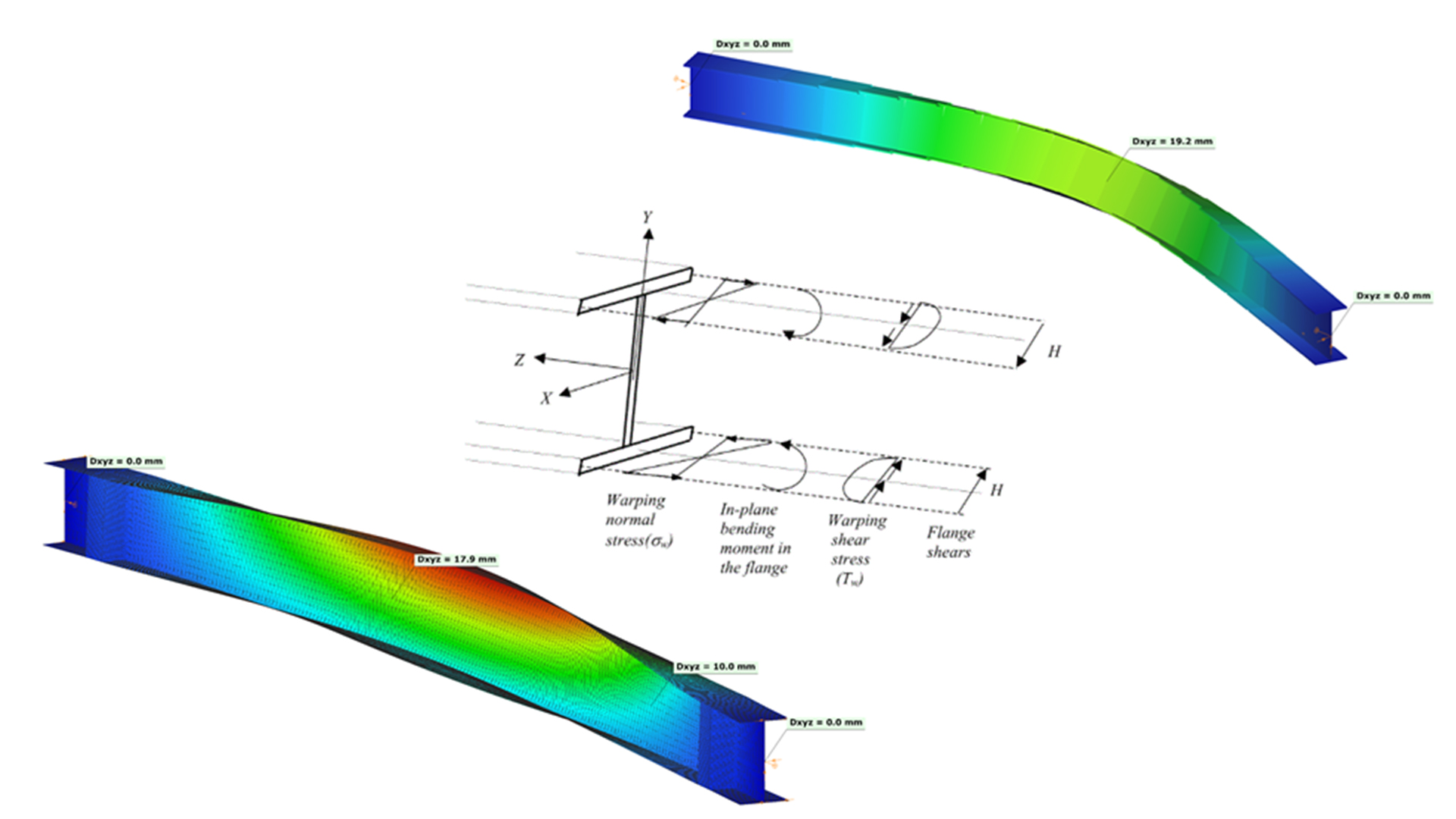
Theoretischer Hintergrund In der Balkentheorie hat die Torsion zwei Komponenten. Saint-Venant’sche Torsion Die meisten geschlossenen dünnwandigen Hohlprofile tragen Querschnittsrotationen mittels der St. Venant′schen Torsion ab, bei der nur Schubspannungen τt (oder…
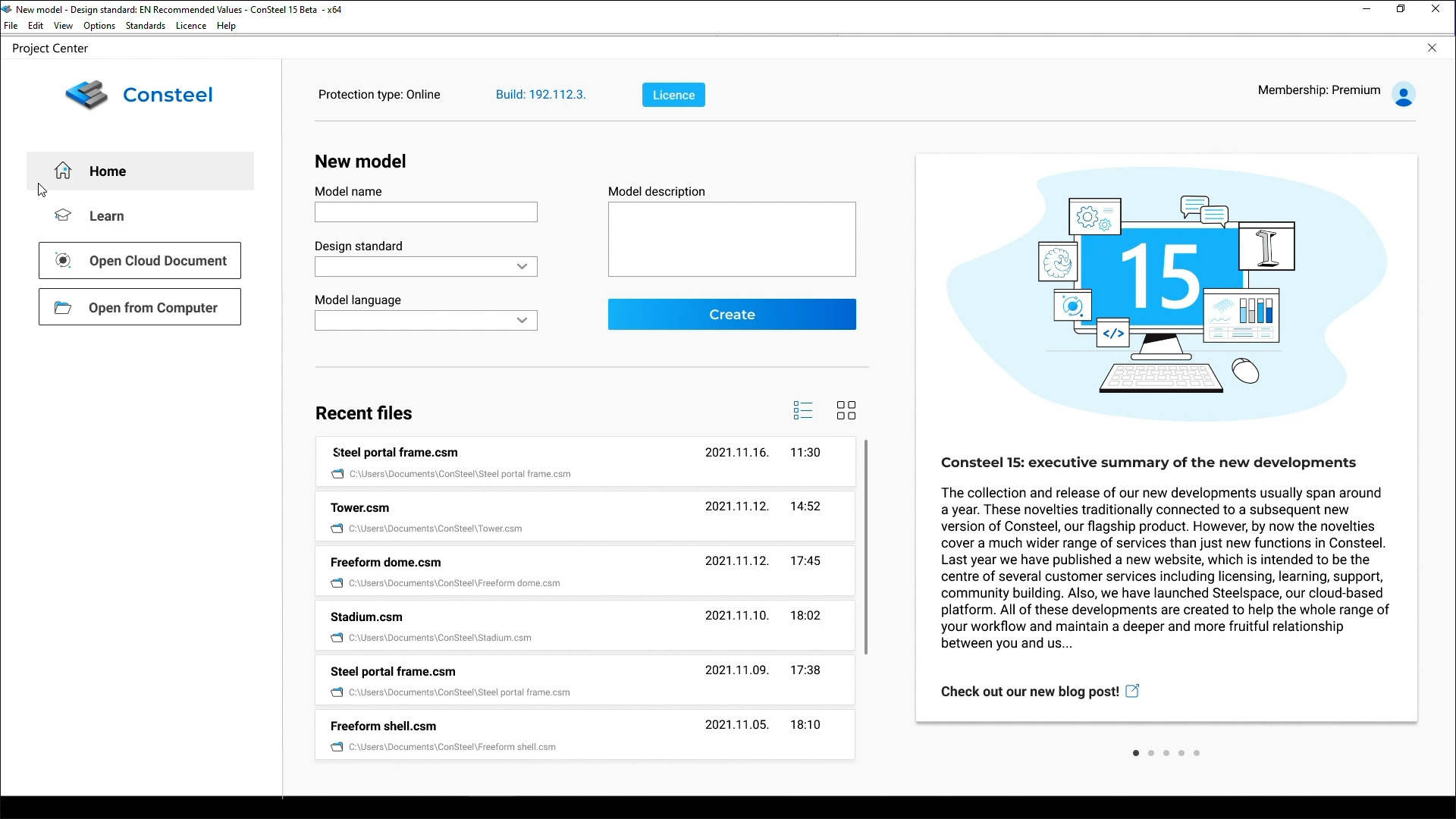
Das neue Projekt Center vereint alle Funktionalitäten des Modell- und Benutzerkontenmanagements sowie den einfachen Zugriff auf personalisierte Informationen und Lernmaterialien.
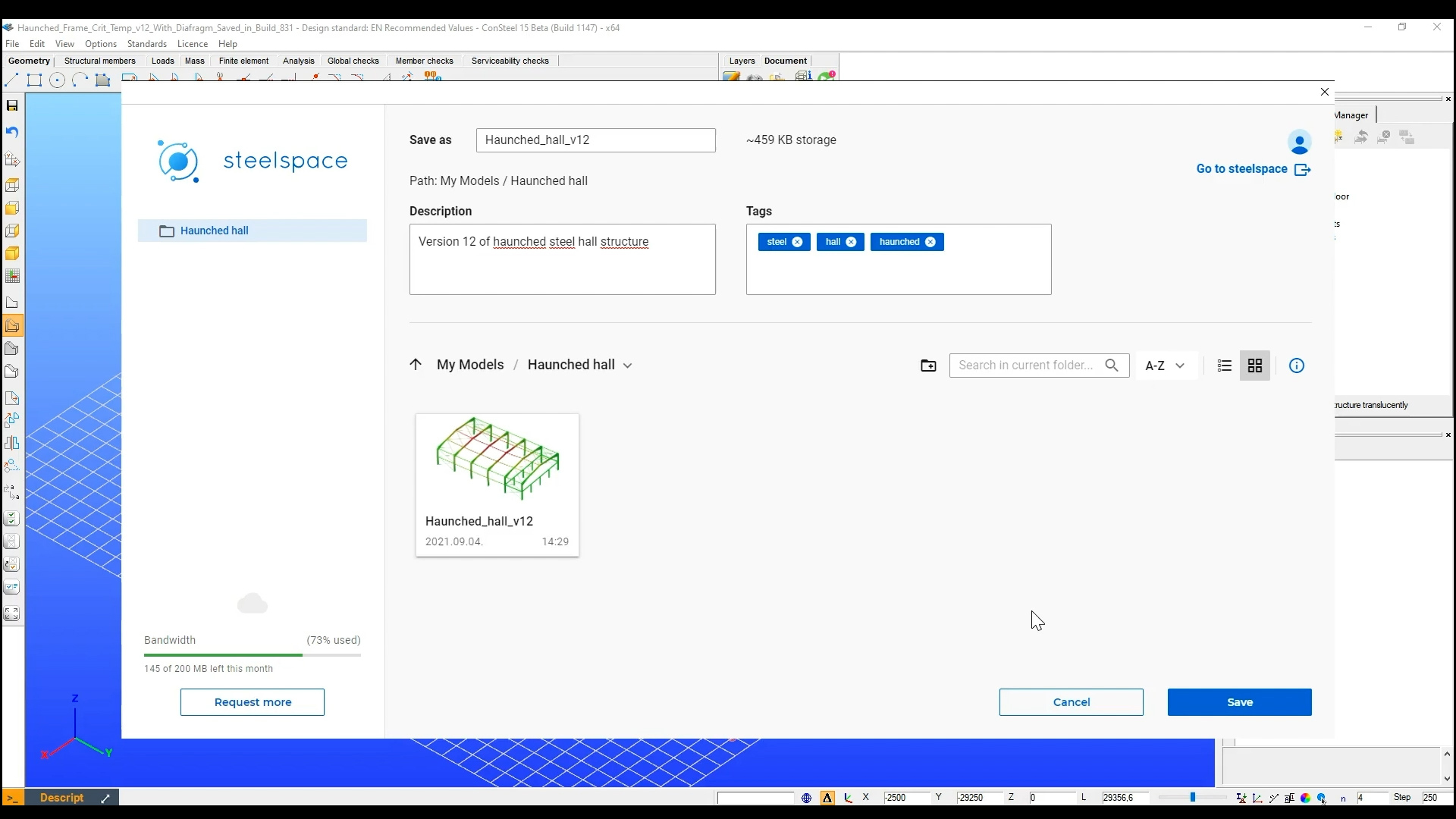
Cloud Lösungen eröffnen eine neue Dimension für diverse Dienste. Wir möchten, dass Sie sich auch außerhalb Ihres Computers aufhalten. Als ersten Schritt bieten wir die einfache und schnelle Speicherung, den…
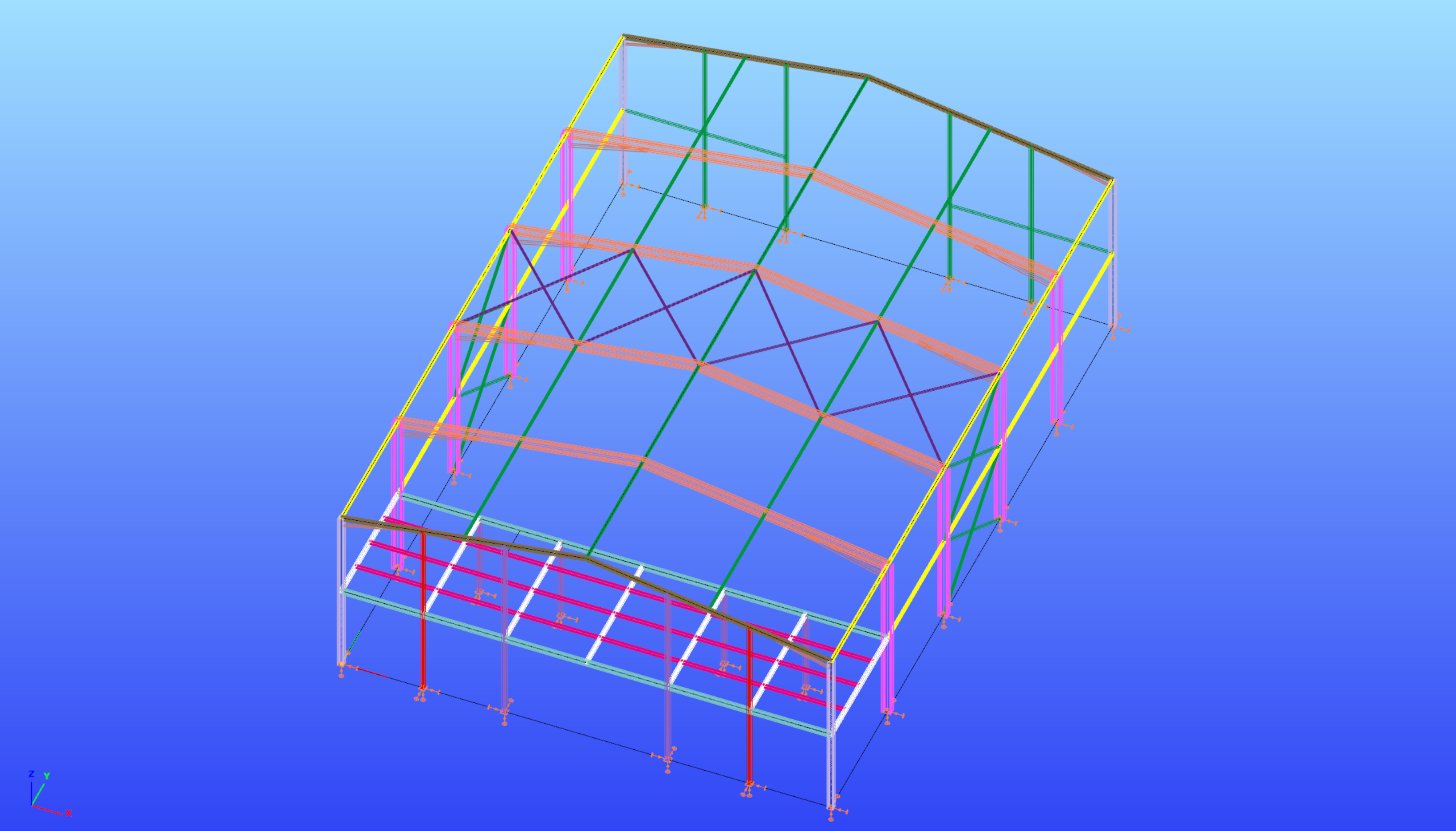
Einführung Für das effektive Arbeiten eines Tragwerksplaners sind einfach überschaubare Strukturmodelle notwendig, auch wenn diese komplex sind. ConSteel bietet dazu verschiedene Funktionen wie z. B. Layer und Teilmodelltechniken und auch Bauteilfärbung…
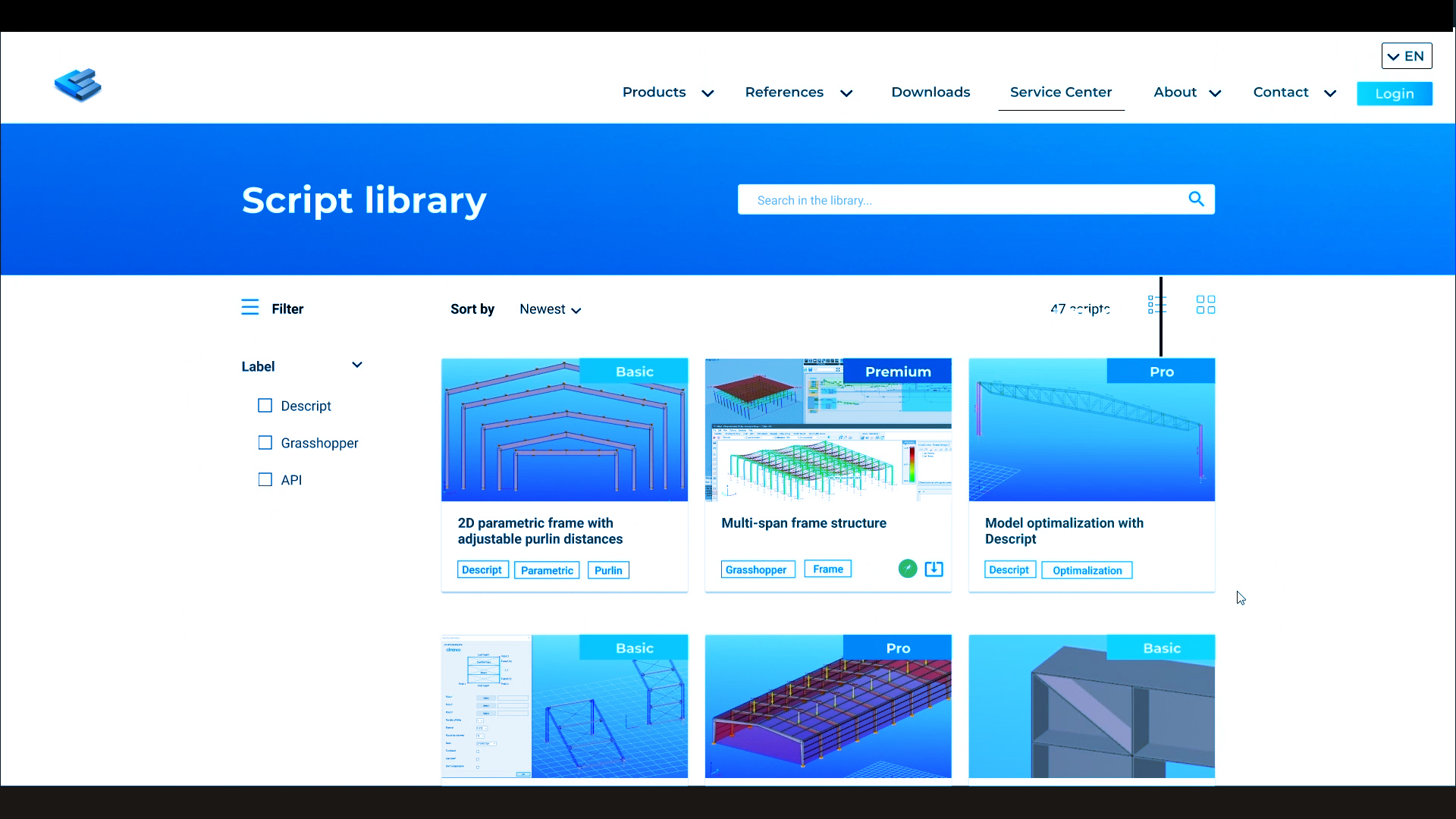
Scripting kann ein effektives Werkzeug zur Verbesserung Ihres Arbeitsablaufes sein. Wir haben eine betreute Bibliothek von Descript-Beispielen, Grasshopper-Scripts und Lösungen zur Benutzung des Programmierinterfaces (API) von ConSteel erstellt, um Sie…
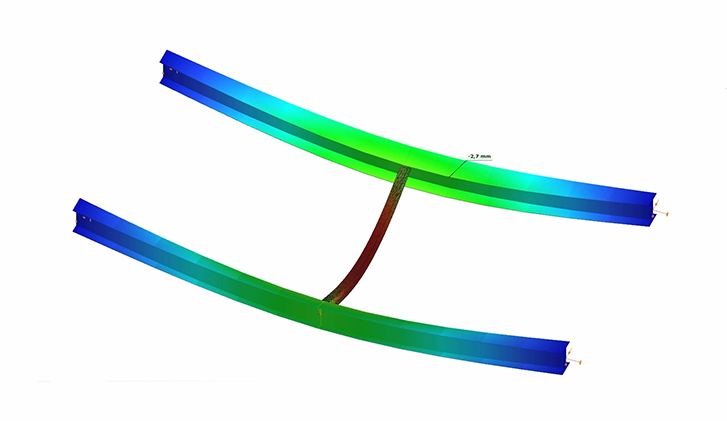
Superbalken ist eine neue mächtige Funktion von ConSteel V15. Die Funktion wurde zum dualen Handling von stabartigen Bauteilen entwickelt. Mit dem Superbalken können Teile von Stahlstrukturen mit der Genauigkeit von…
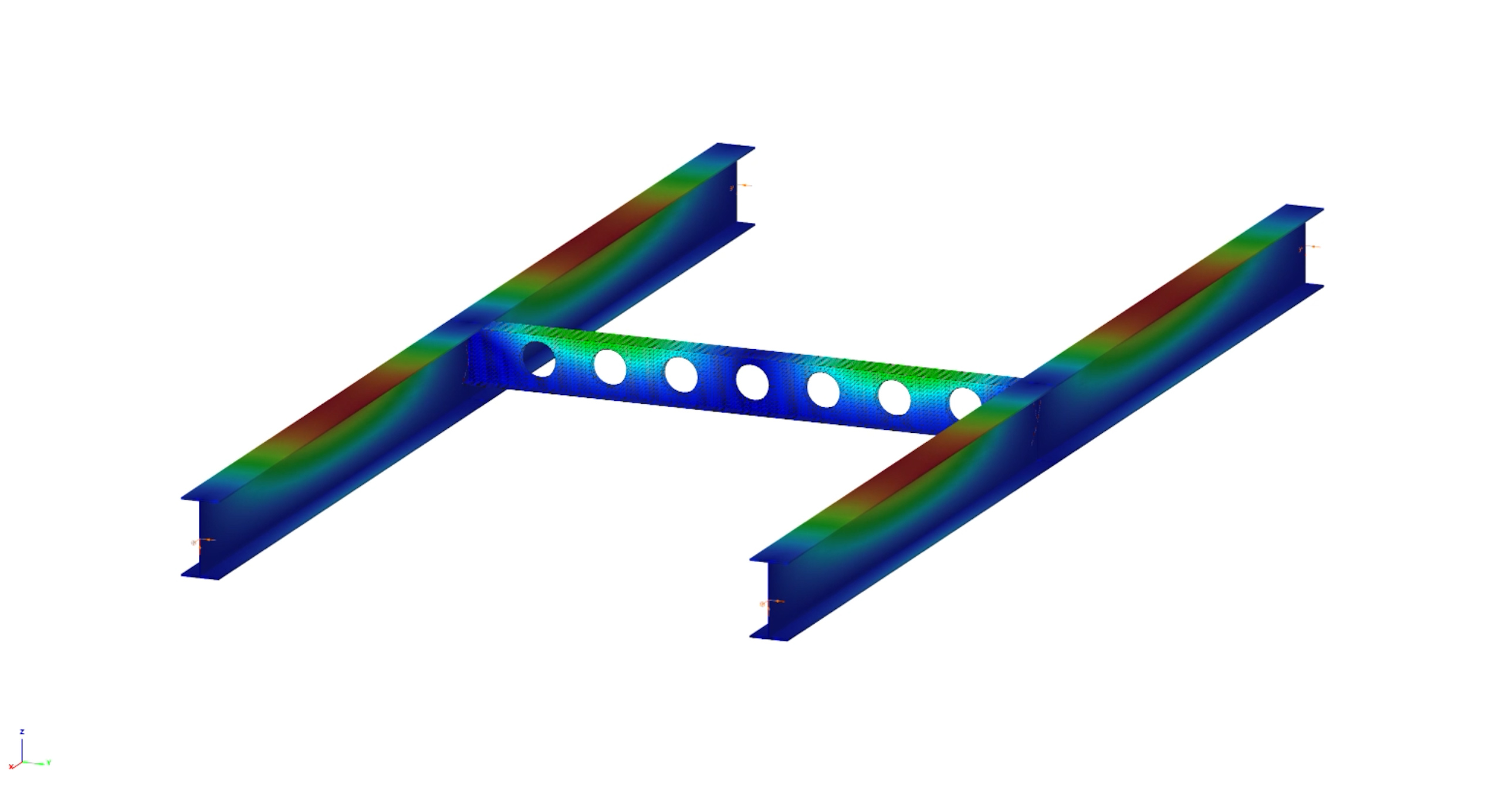
Die baustatische Berücksichtigung von Trägerausschnitten ist eine äußerst nützliche Eigenschaft des ConSteel Superbalkens. Sie können einfach erstellt und modifiziert werden. Verschiedene Geometrien und Optionen zu Mehrfachplatzierungen stehen zur Verfügung. Schauen…
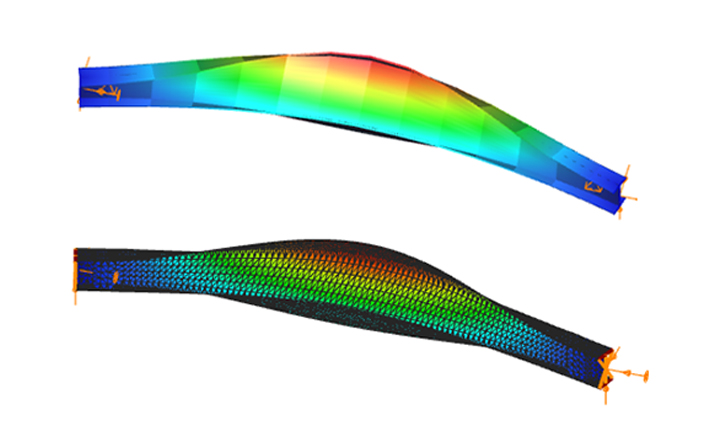
Einleitung Während der Nutzungsdauer einer Stahlkonstruktion können sich die Einwirkungen auf Tragelemente erhöhen, sodass Verstärkungen notwendig werden. Bei Trägern mit I-Querschnitten werden dann die Flansche verstärkt, um das Tragmoment des…
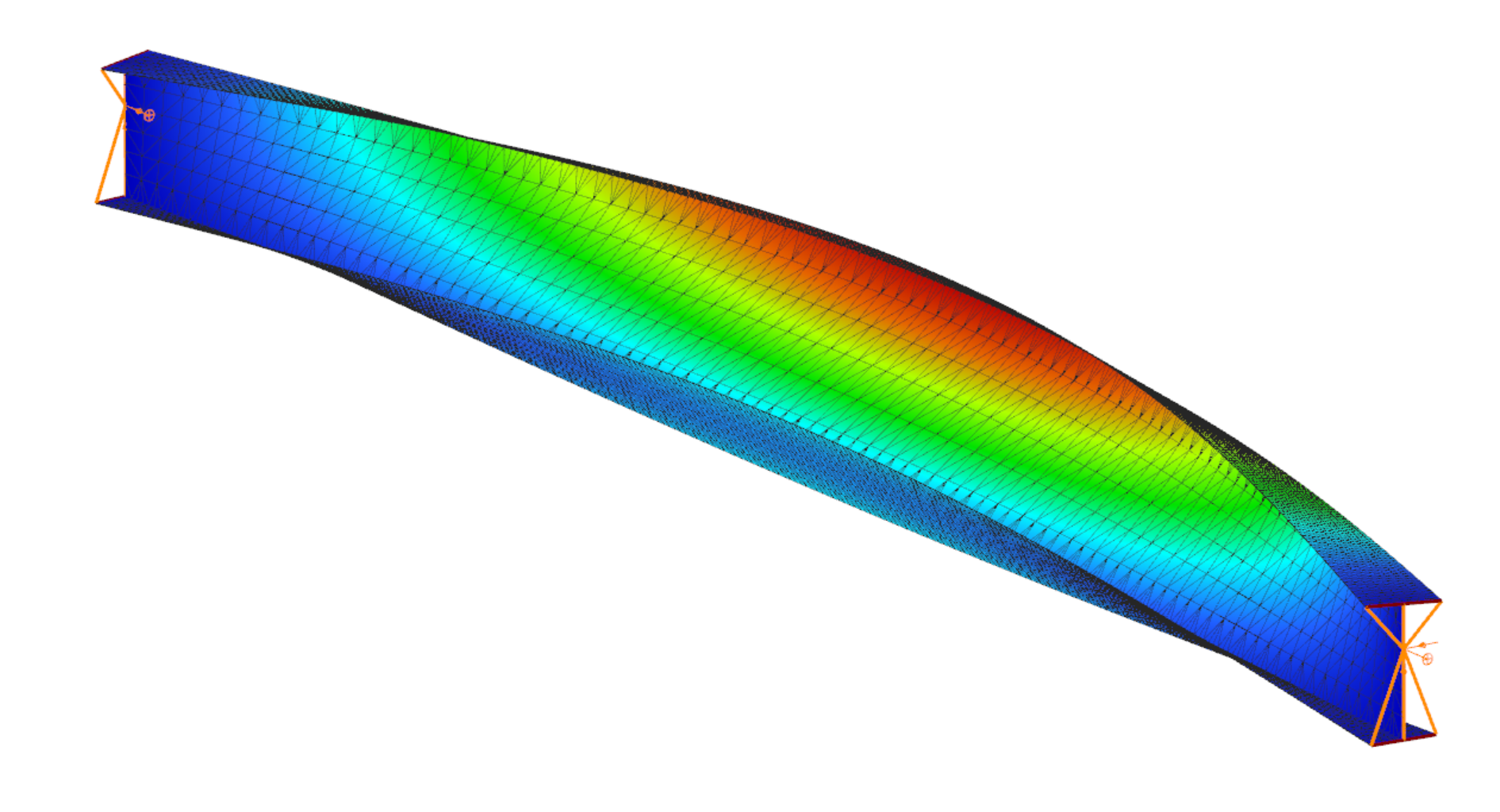
Einführung des ConSteel Superbalkens Allgemein verwendet ConSteel ein Balkenelement mit 7 Verformungsfreiheitsgraden pro Knoten zur FE-Berechnung von Stahlstrukturen, was für die alltäglichen Nachweissituationen vollkommen ausreichend ist. Alternativ ist die Verwendung…
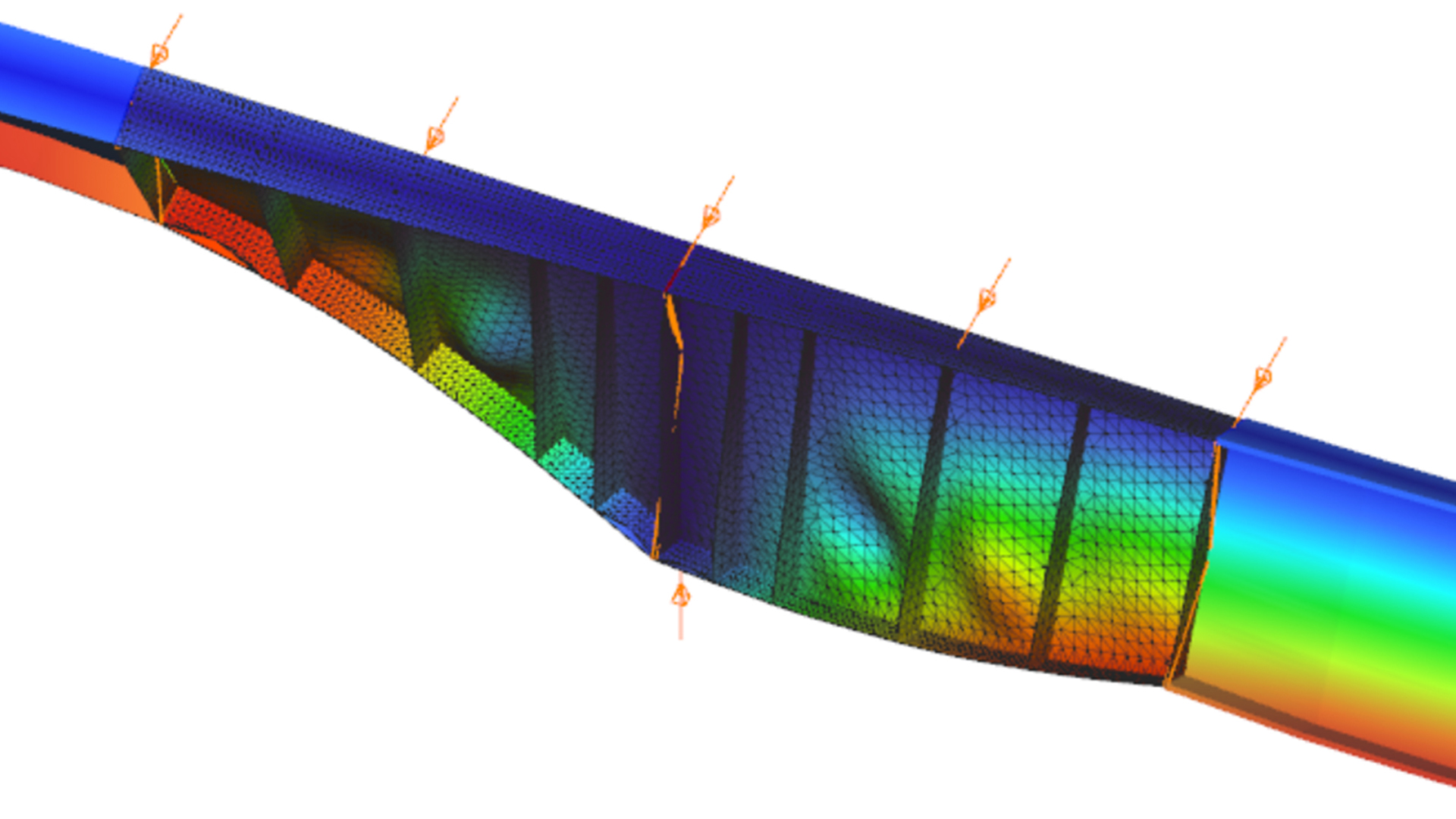
Mit der Funktion Superbalken kann eine Modellierung von Steifen an Balkenmodellen einfach und effektiv durchgeführt werden. Zahlreiche Optionen und diverse Querschnitte stehen zur Verfügung. Die Berechnung des Balkens ist alternativ/wechsend…
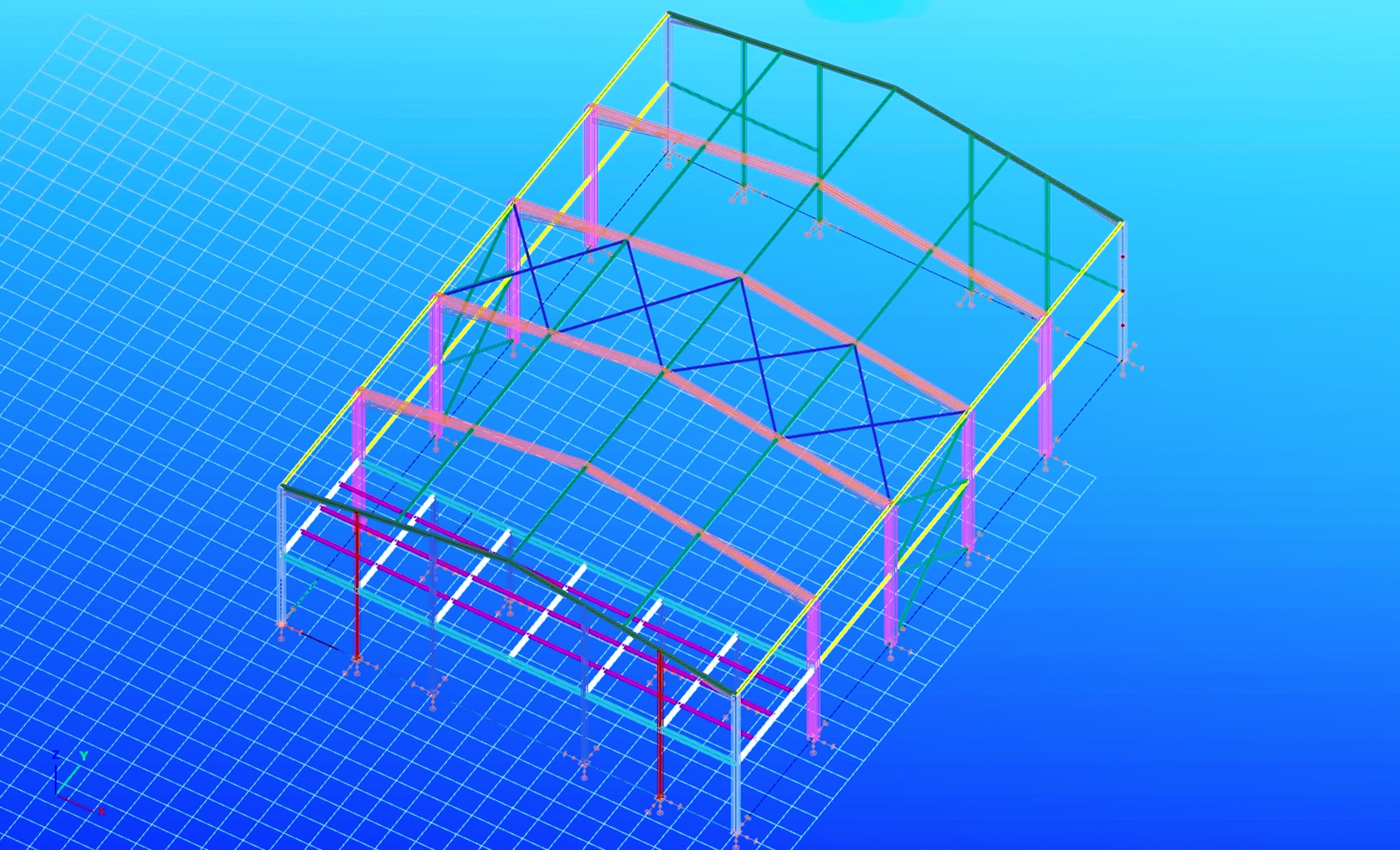
Eine optimale Visualisierung des Strukturmodells und der Berechnungsergebnisse führen im Vergleich zu Texten und/oder Tabellen zu besserem Verständnis und korrekter Interpretation des Datenmodells. Mit Hilfe der neuen Funktion Farbgebung durch Querschnittseigenschaften können…
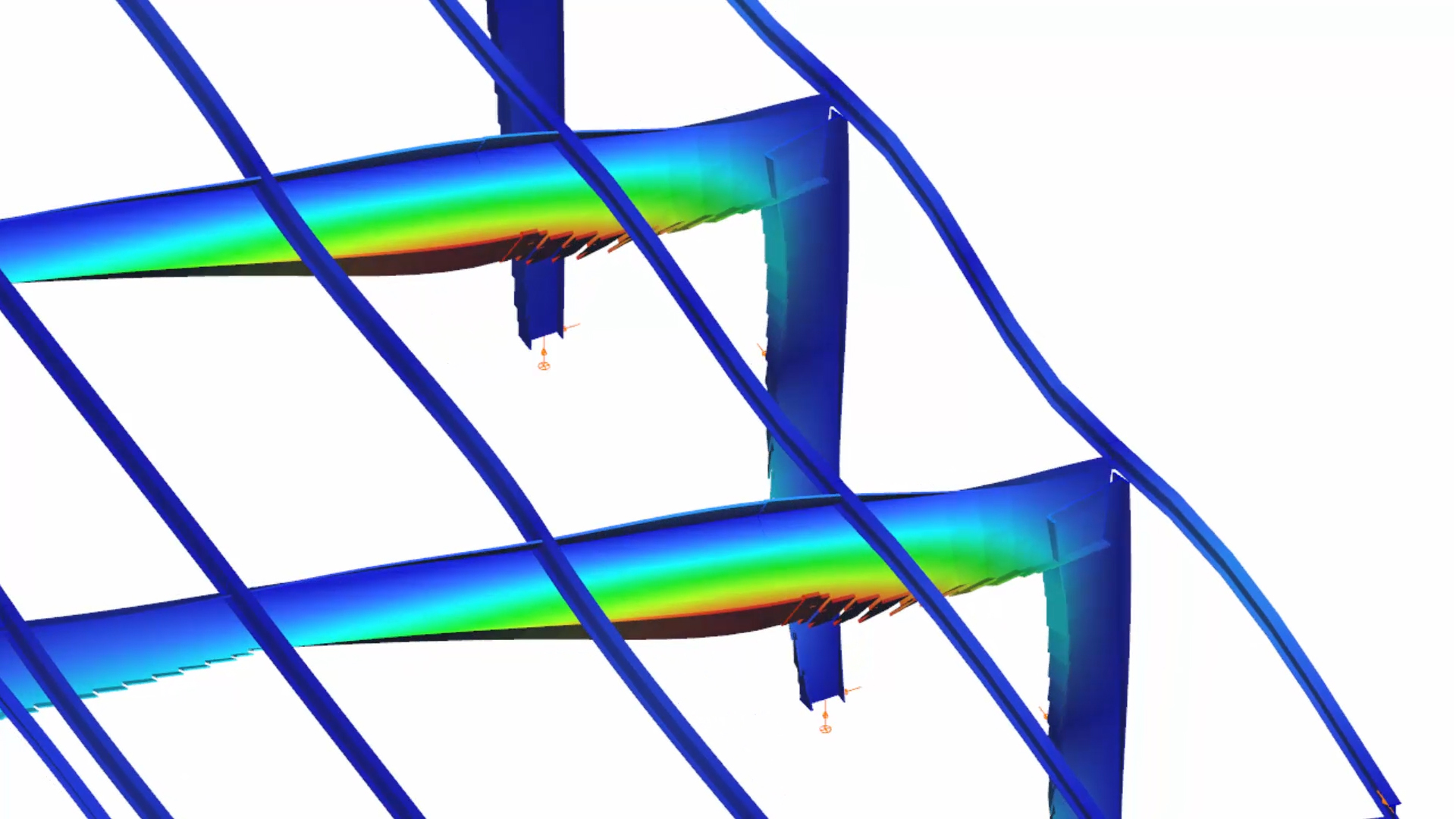
Gewöhnlich zeigt traditionelle baustatische Software die Verformungen von Balken mit ihren Querschnitten auf der verformten Schwerachse. ConSteel 15 dagegen benutzt eine fortschrittliche Methode für Deformationsdarstellungen, die feiner und realistischer ist.…
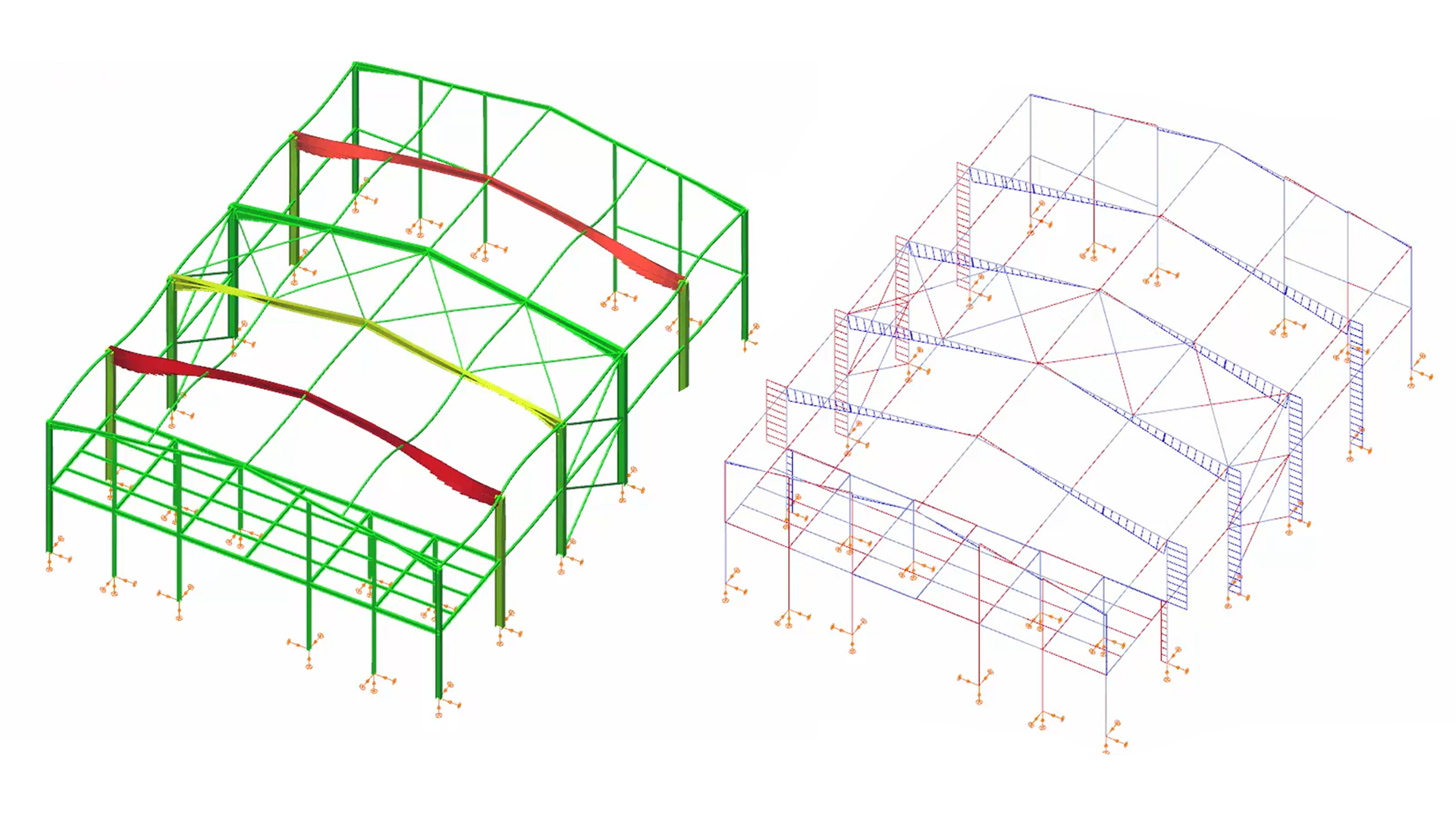
Perfektionieren Sie Ihr Verständnis des Strukturverhaltens der mithilfe der Sensitivitätsanalyse illustrierten korrekten Eigenform und der farbigen Gestaltung der Beanspruchungen.
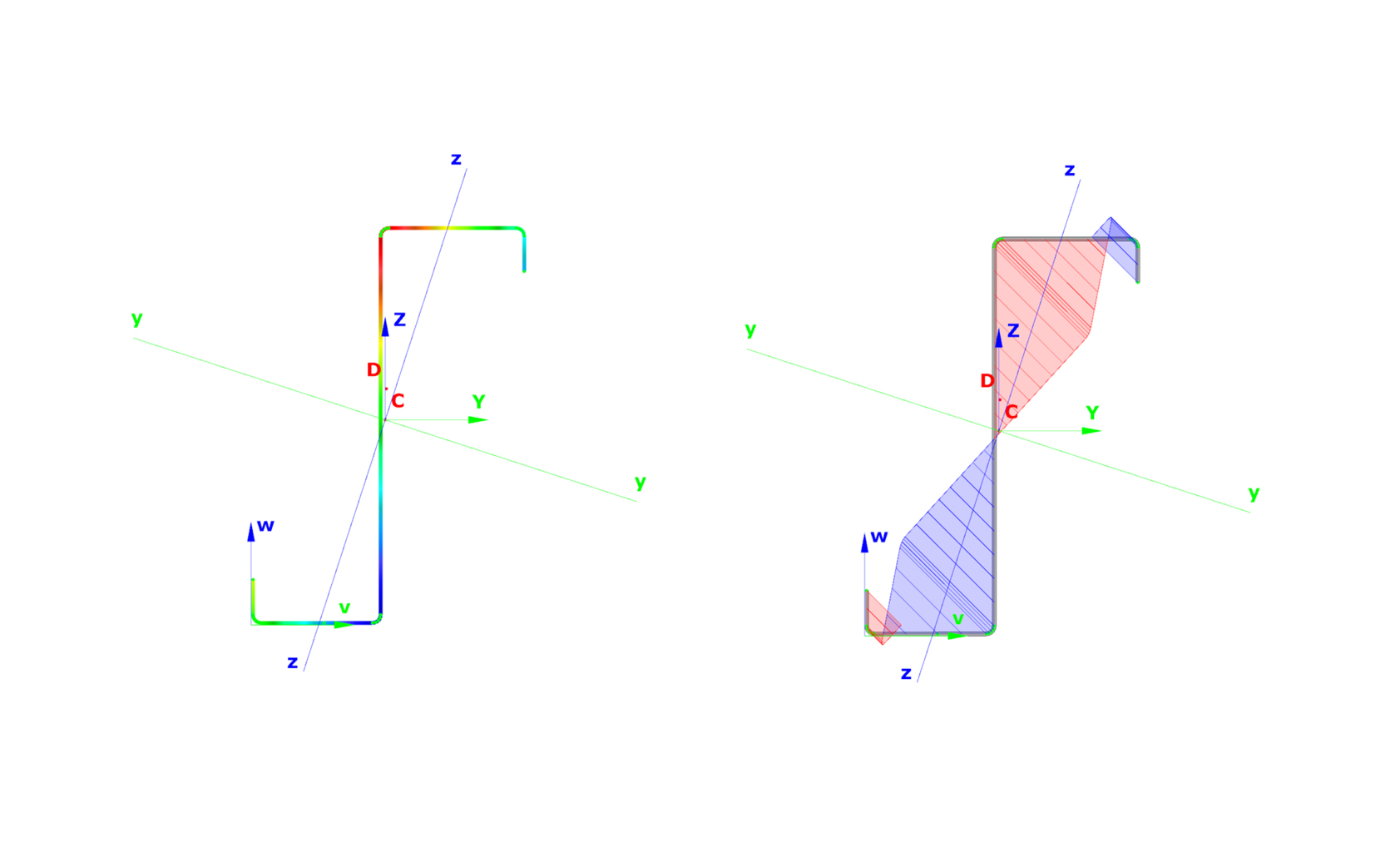
Zusätzlich zur bereits bestehenden Einfärbung der Spannungsverläufe im Querschnitt werden jetzt Spannungsdiagramme der funktionellen Verläufe einzelner Spannungskomponenten oder auch der -resultierenden ermöglicht. Schauen Sie sich das Video dazu an.
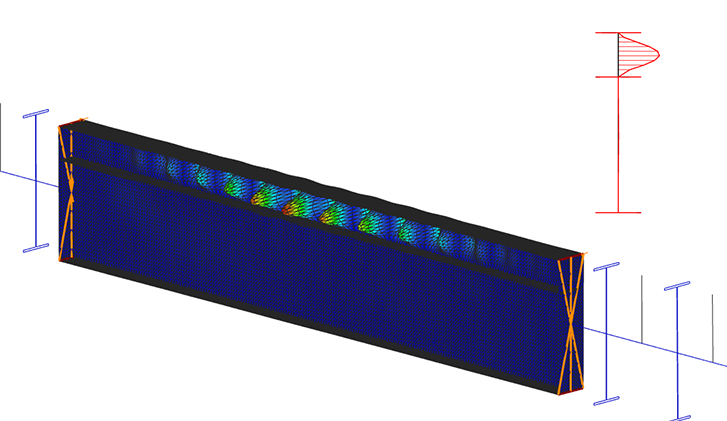
Einführung Geschweißte I-Profile besitzen häufig schlanke Stege, um große Biegetragfähigkeiten infolge weit gespreizter Flansche zu erreichen. Der Steg trägt dann vorwiegend die Schubspannungen. Damit können signifikante Gewichtsersparnisse erzielt werden, aber…
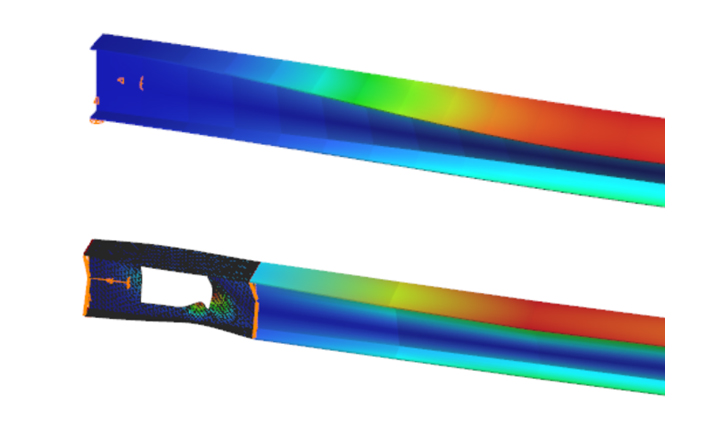
Introduction Are you wondering how a web opening would influence the lateral-torsional buckling resistance of your beam? Check it precisely with a Consteel Superbeam based analysis It is often required…

Comparison of chosen methods for estimation of critical lateral torsional buckling bending moment of web-tapered I-beams. In this article, the elastic critical bending moments of the web-tapered I-beams calculated by…
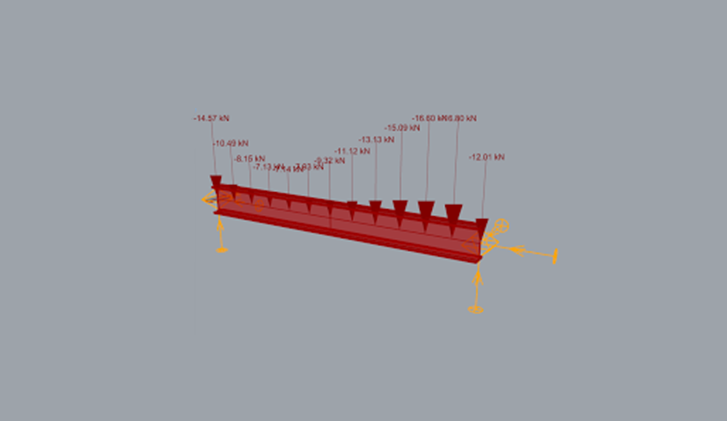
Pangolin not only creates Consteel models for you but can also read and utilize your existing Consteel models. This is what we will look into more detail in this article.…

Example hall model for trying the smart link feautre in Consteel Watch our user guide about How to use the smart link feature to learn more.
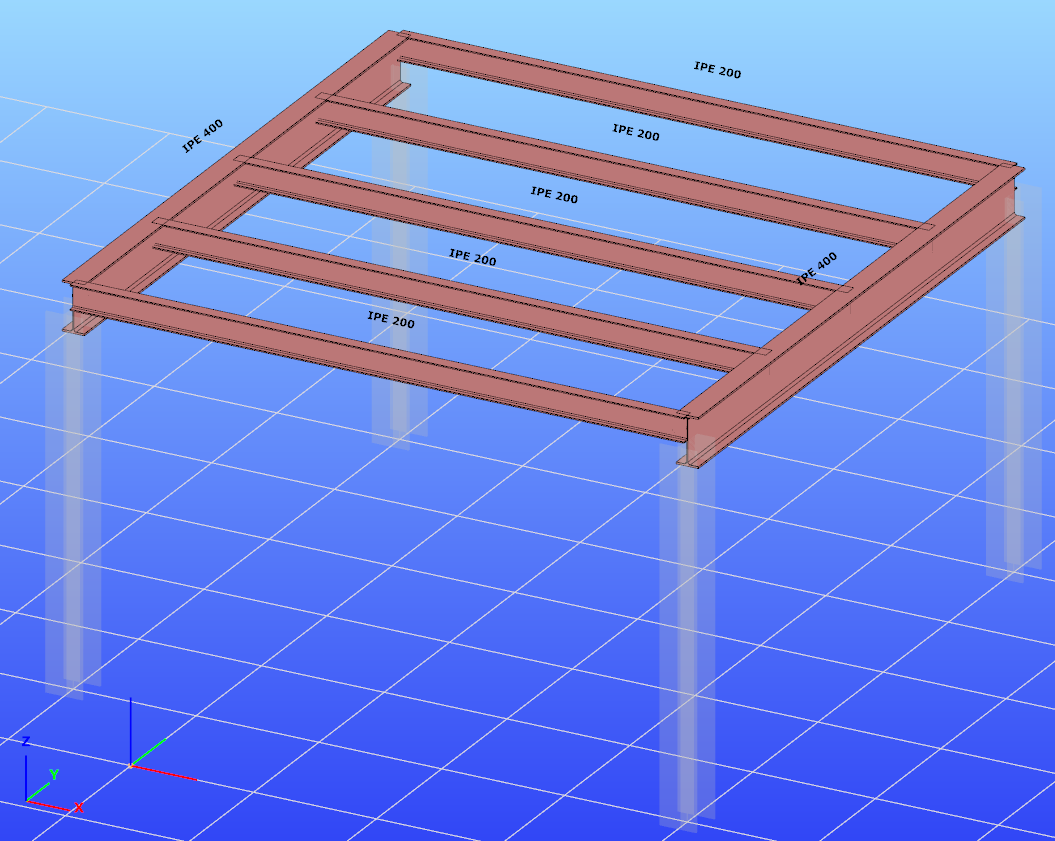
Example model for trying the smart link feature in Consteel Watch our user guide about How to use the smart link feature to learn more.
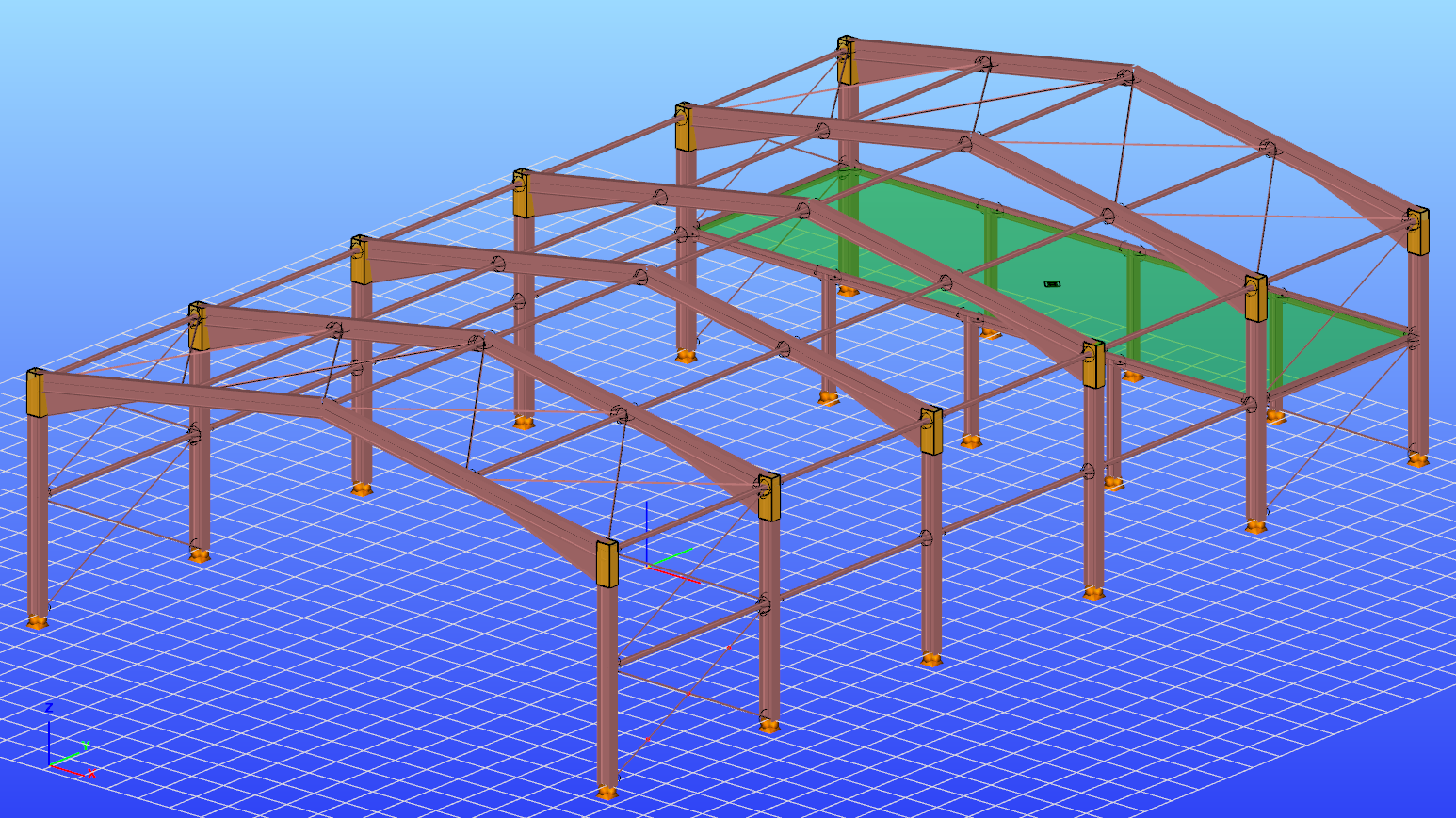
Example model for calculate critical temperature in Consteel Watch our user guide about How to use the critical temperature feature to learn more.
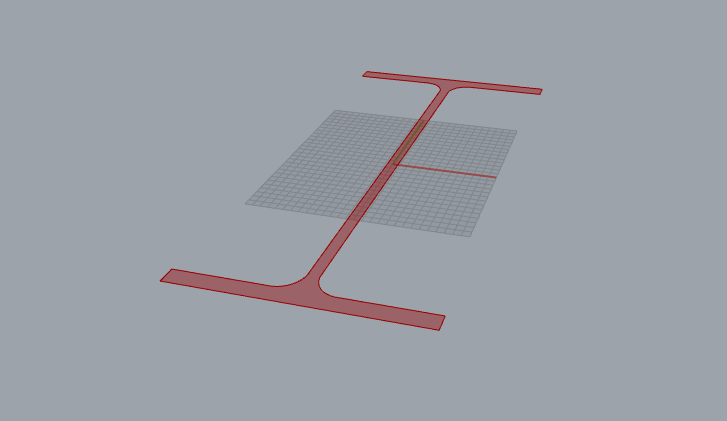
Geometry definition Geometry in Pangolin can be described by lines or circular arcs and polygons made up of the former two. The relevant components are the simplest ones, acting as…
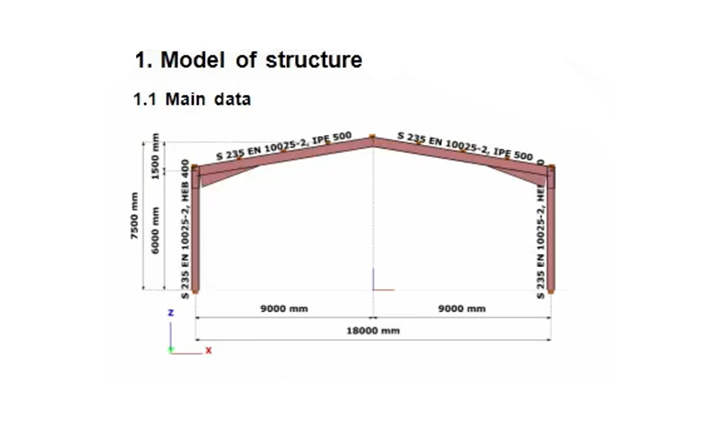
Consteel 14 is a powerful analysis and design software for structural engineers. Watch our video how to get started with Consteel. Contents
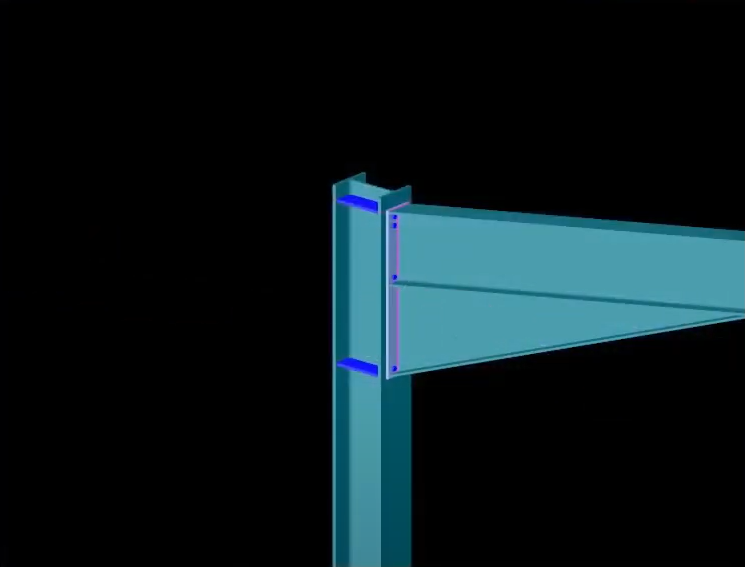
Consteel 14 is a powerful analysis and design software for structural engineers. Watch our video how to get started with Consteel. Contents
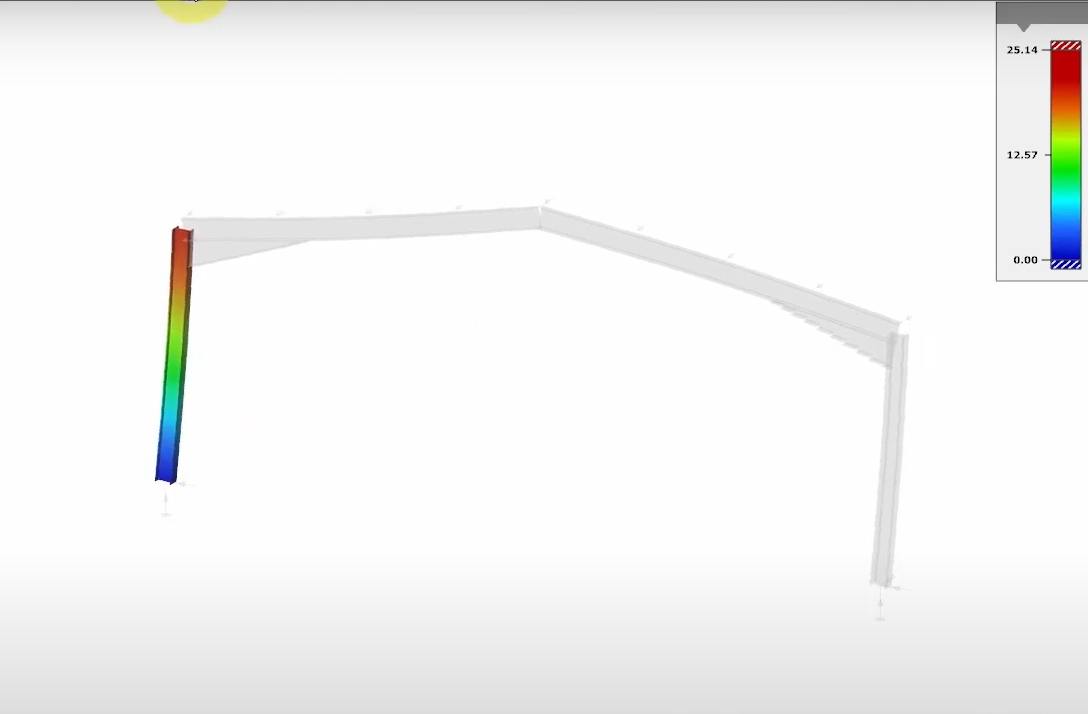
Consteel 14 is a powerful analysis and design software for structural engineers. Watch our video how to get started with Consteel. Contents
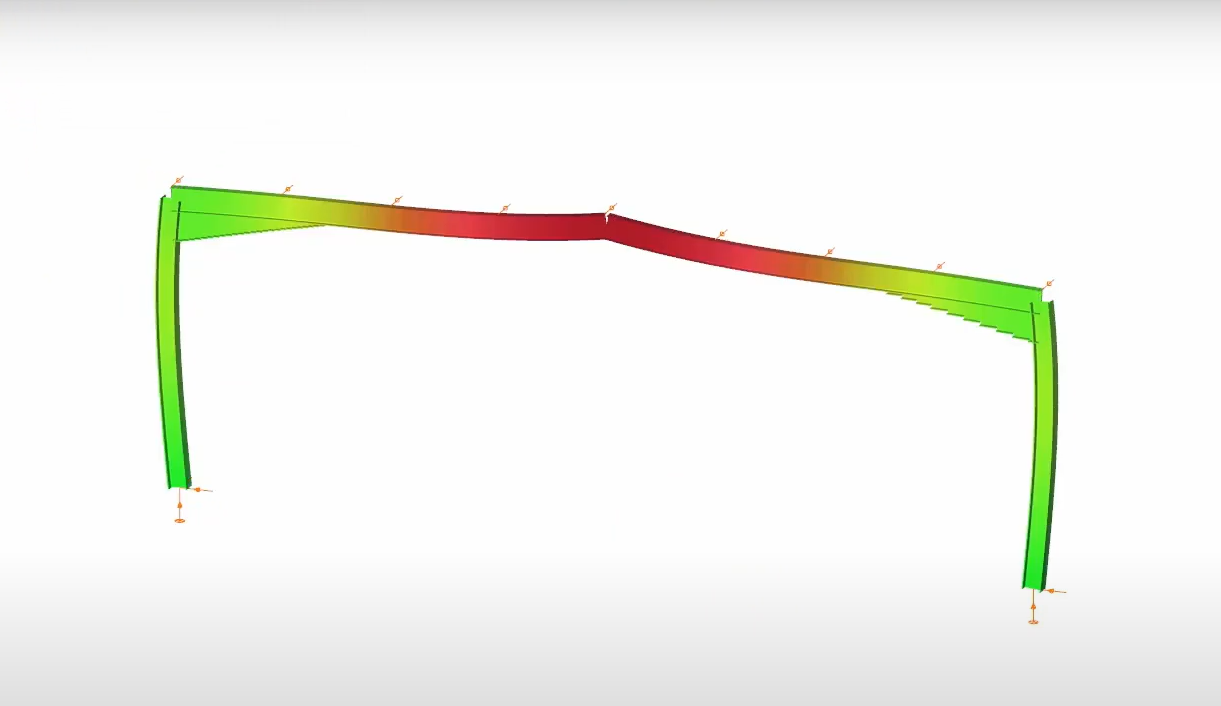
Consteel 14 is a powerful analysis and design software for structural engineers. Watch our video how to get started with Consteel. Contents
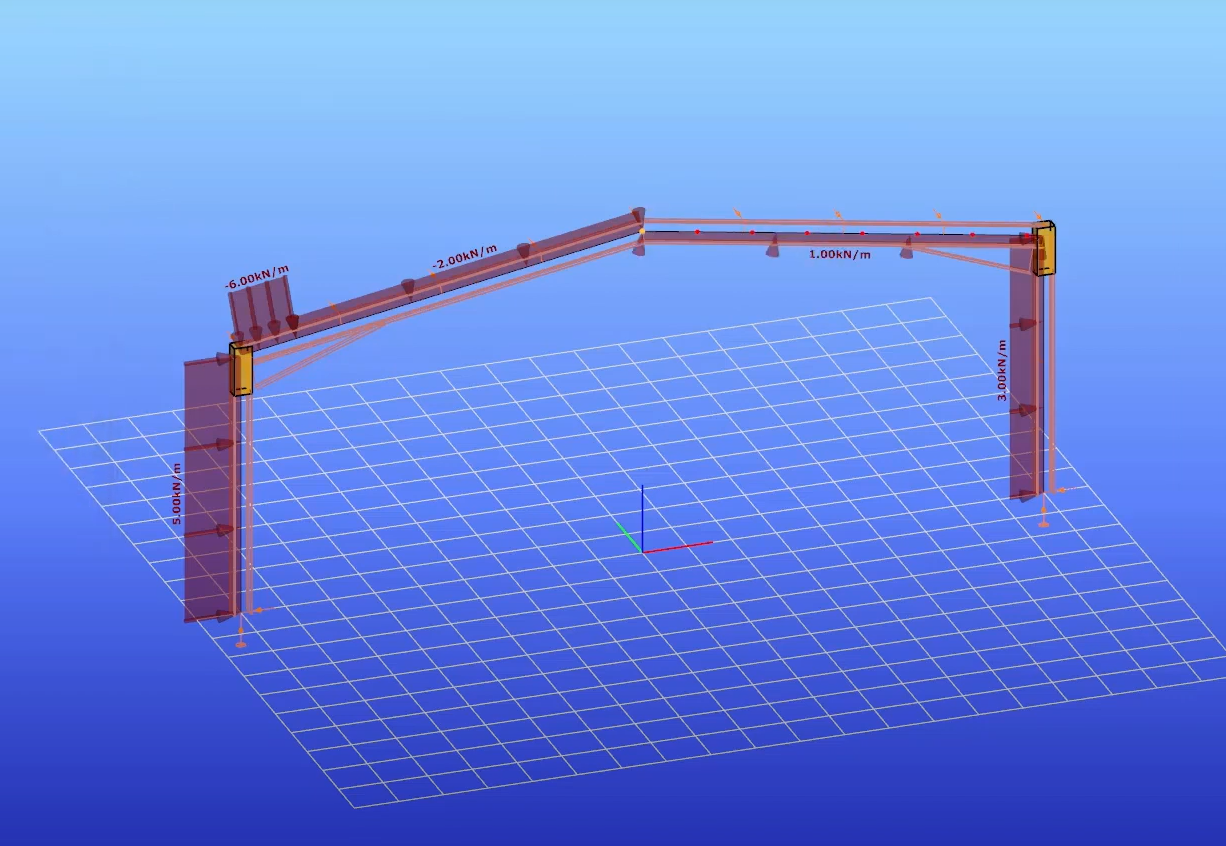
Consteel 14 is a powerful analysis and design software for structural engineers. Watch our video how to get started with Consteel. Contents
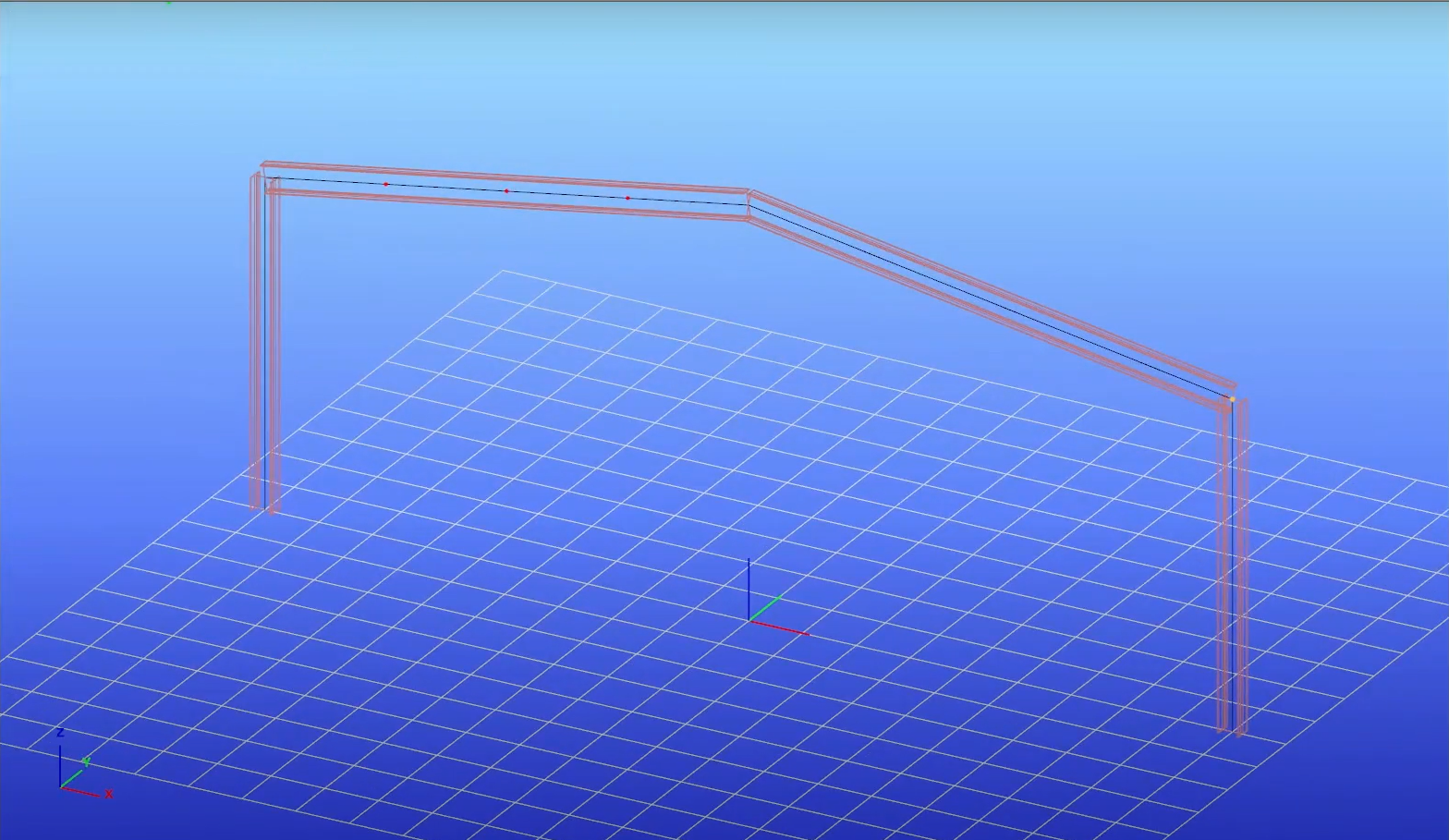
Consteel 14 is a powerful analysis and design software for structural engineers. Watch our video how to get started with Consteel. Contents

Introducing Pangolin, the new ConSteel integration with Grasshopper In quick summary What to know about Pangolin? Pangolin is a Consteel plugin to integrate structural modelling and analysis into your parametric…
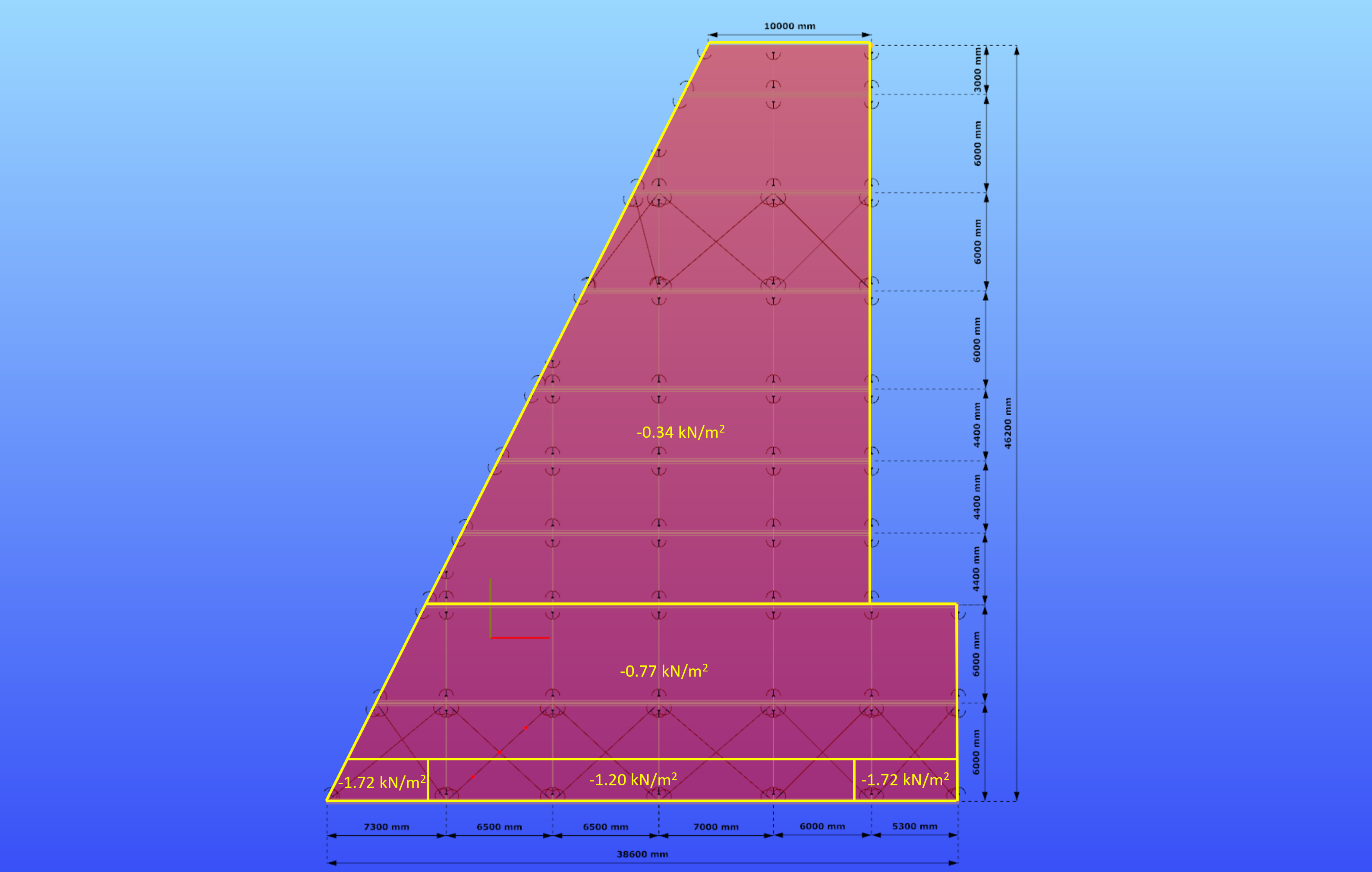
Read our tips and tricks about Surface wind load on custom shape roof for more information. Version: CS14.1000
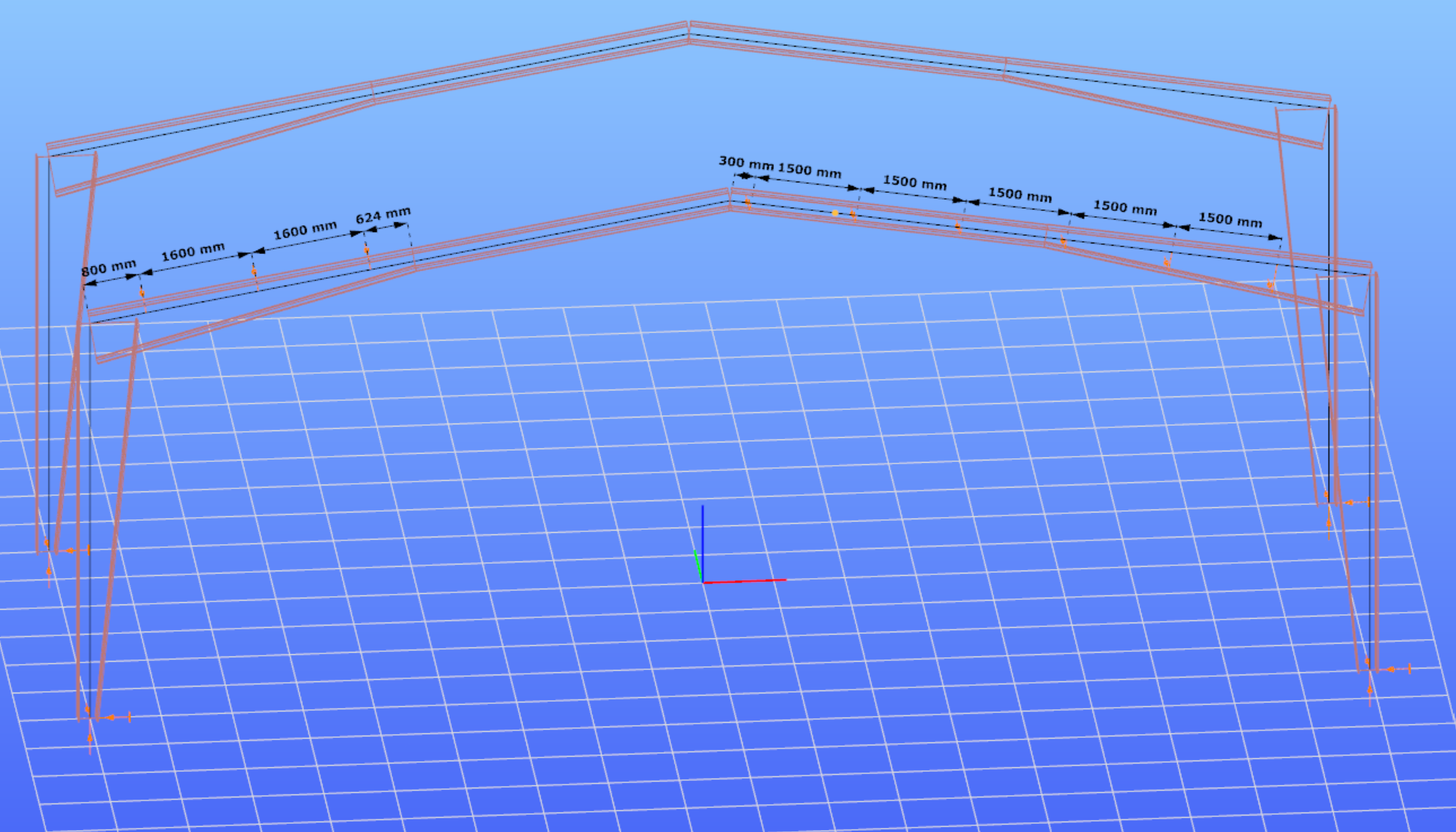
Read our tips and tricks about Placing of multiple point supports for more information. Version: CS14.1000 Click the button below to download the example model.
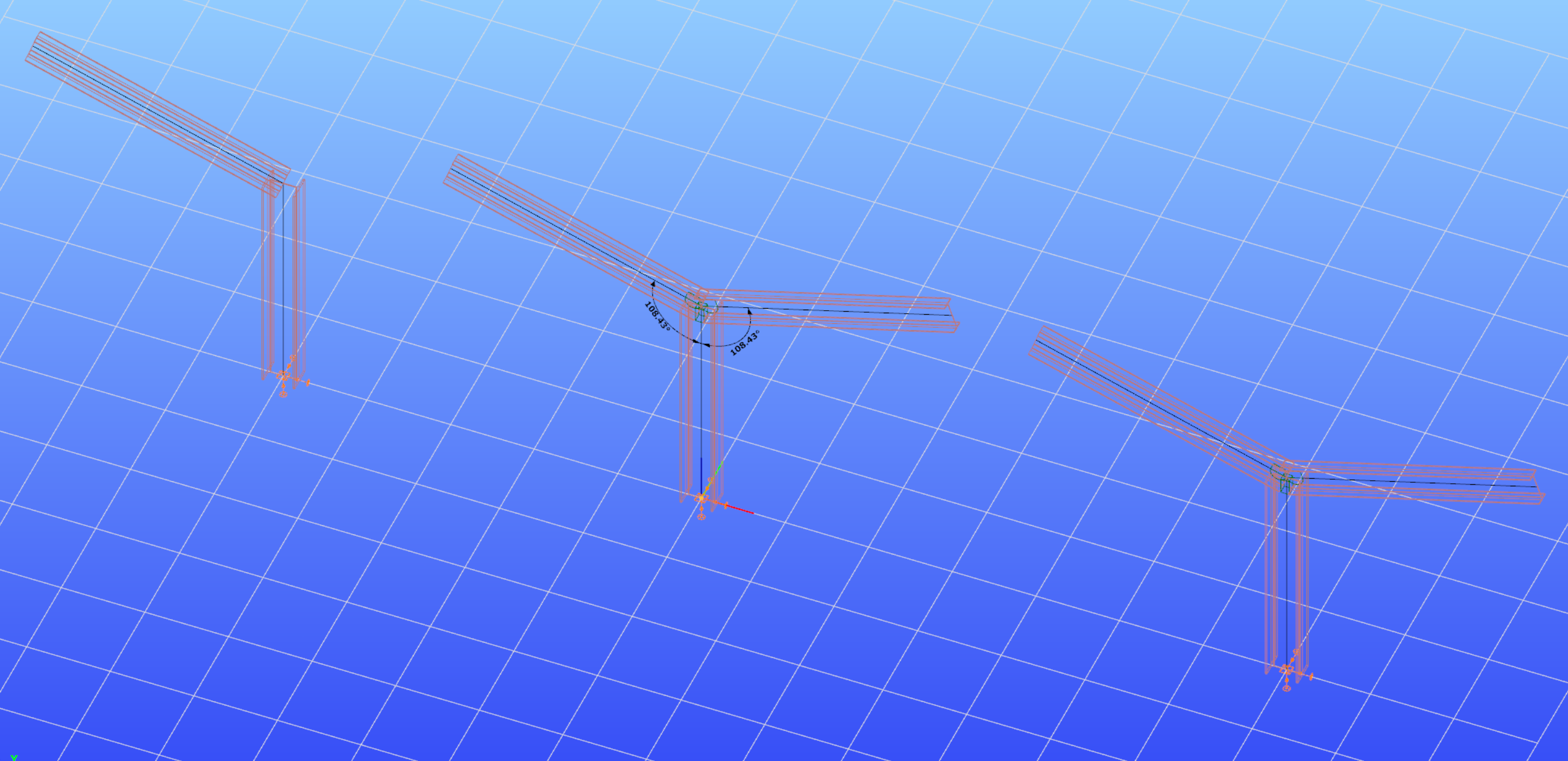
Read our tips and tricks about Choosing the orientation of a symmetric joint for more information. Version: CS14.1000 Click the button below to download the model.
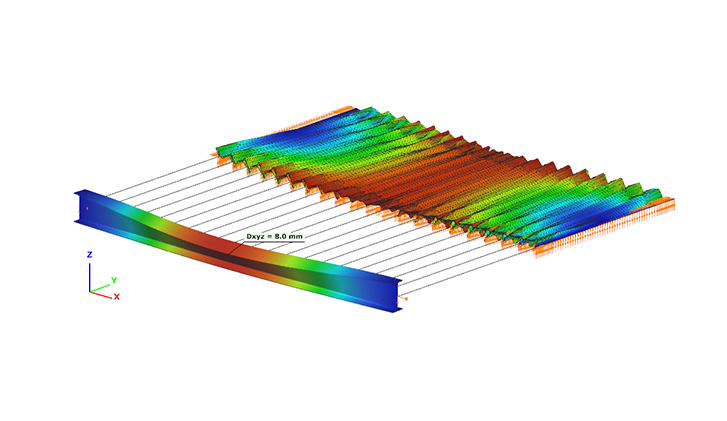
This article aims to cover the theoretical background of the shear field stiffness determination methods implemented in Consteel. Modeling with the shear field stiffness based method will also be compared…
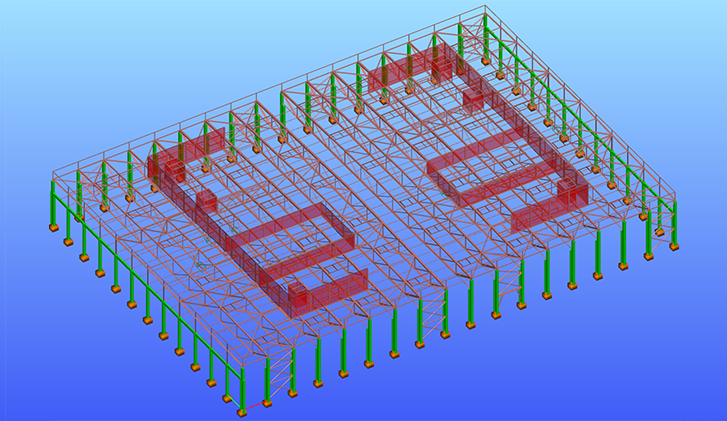
Introduction IFC is a global standard for data exchange in the building industry. It is widely used for sharing models independent of the software the original model was created. It…
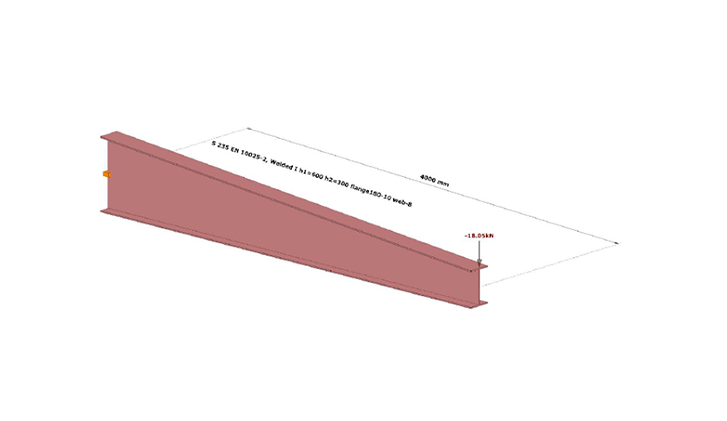
Modeling of tapered elements Stability calculation of tapered members is always a difficult problem despite its popularity in steel hall construction. Generally in analysis software for the stability analysis a…
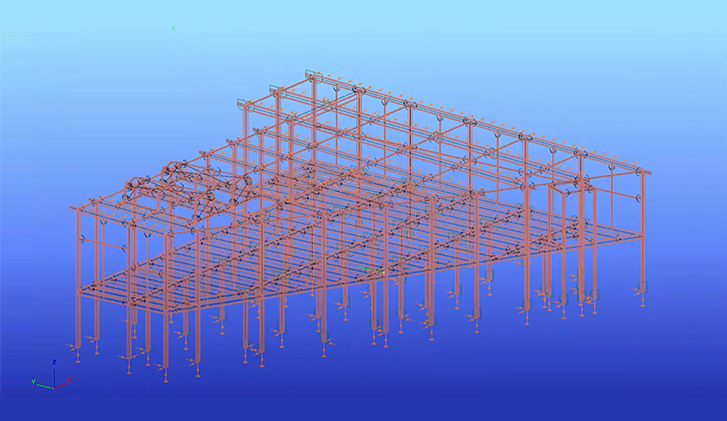
Introduction In Consteel there is a possibility to perform a model check on the structure to reveal modelling errors. This model check or diagnostics can be separated to First and Second…
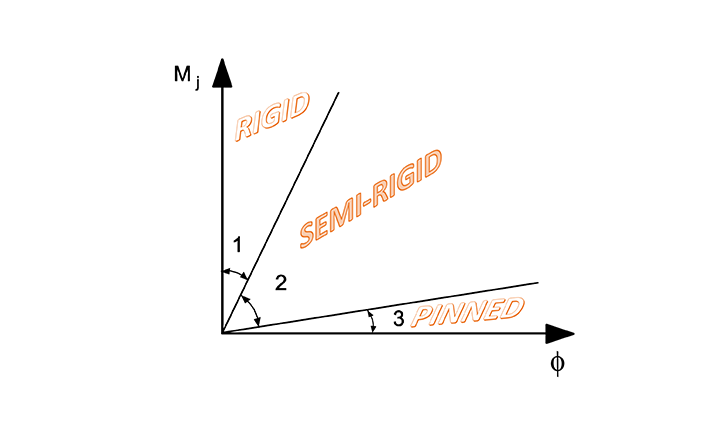
Introduction The effects of the behaviour of the joints on the distribution of internal forces and moments within a structure, and on the overall deformations of the structure, should generally…
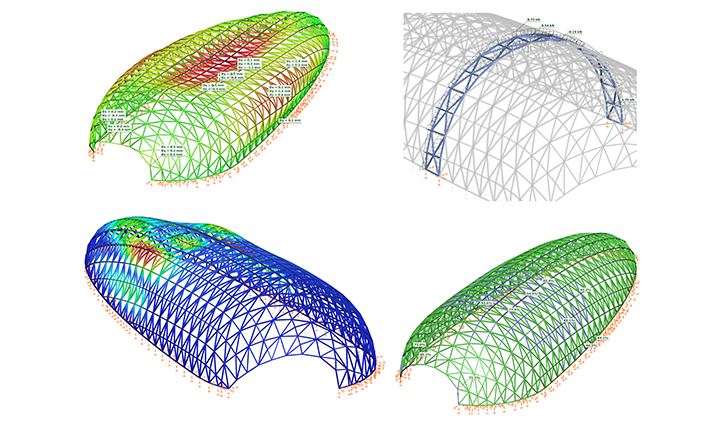
Introduction In the last years, freeform architecture became more and more popular. A variety of complex geometric shapes are used for the facades of buildings, which brought the demand of…
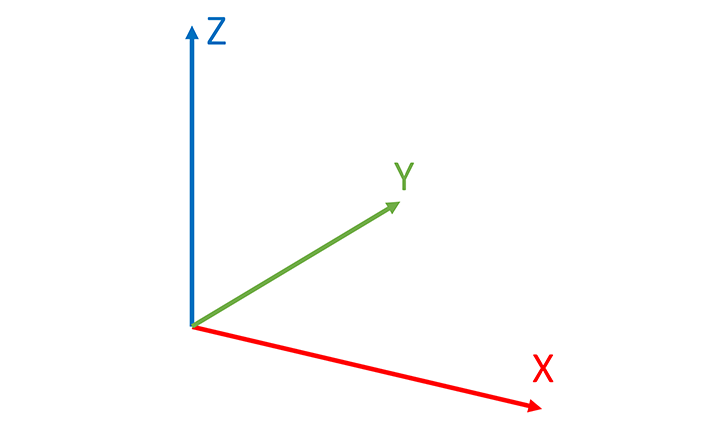
Introduction It happens quite often, that you need to import static models from another modeling software into Consteel. This is a very practical and effective solution to simplify your work.…
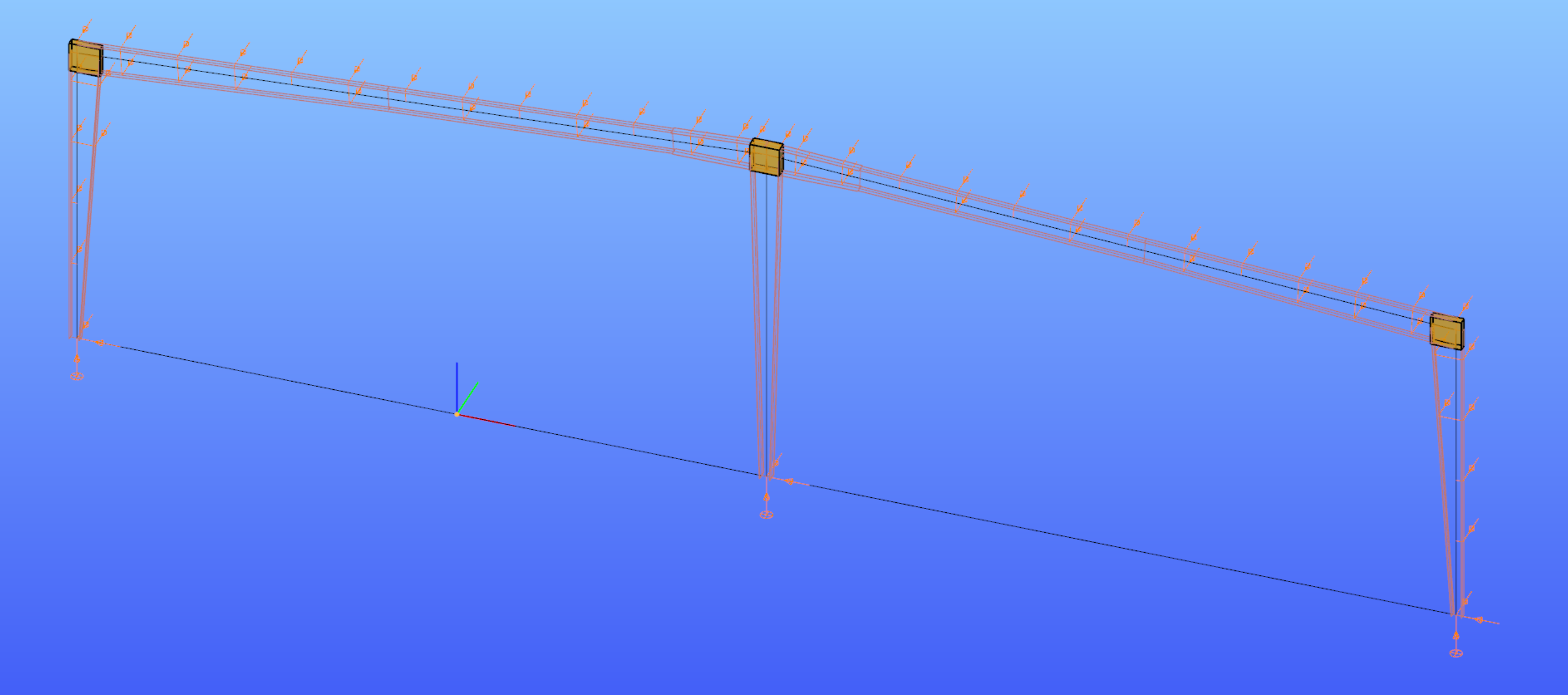
Introduction In Consteel there are several opportunities to place the point supports you need in a quick and effective way. Multiple placing of column bases In case you imported a…
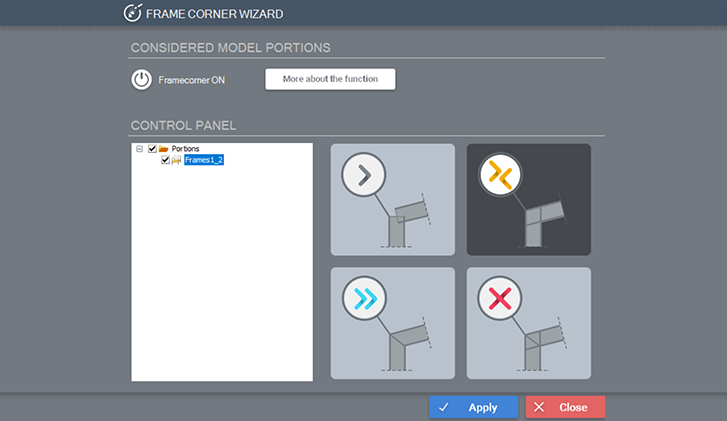
Introduction The Frame corner wizard is a useful additional function for modelling and analyzing the corner region in order to consider its special behavior. What is it for The frame…

Introduction In Consteel a great variety of EN National Annexes can be used for structural design. It is possible to review the existing annexes in the Standards menu. In case…
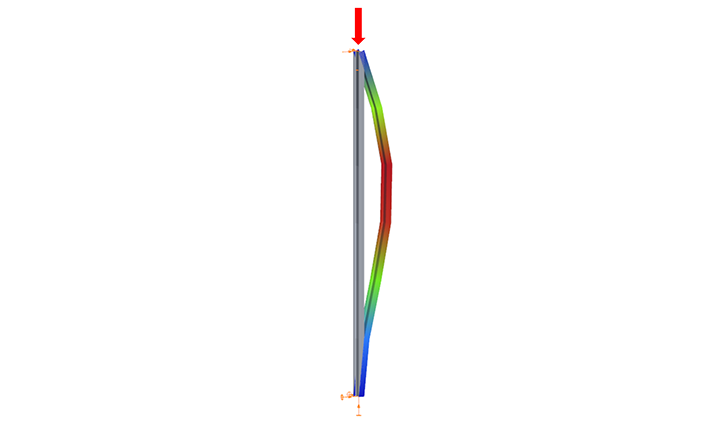
Introduction There are different ways to evaluate the stability of a structure. It is important to know the differences between those methods and the limits of applicability but it is…
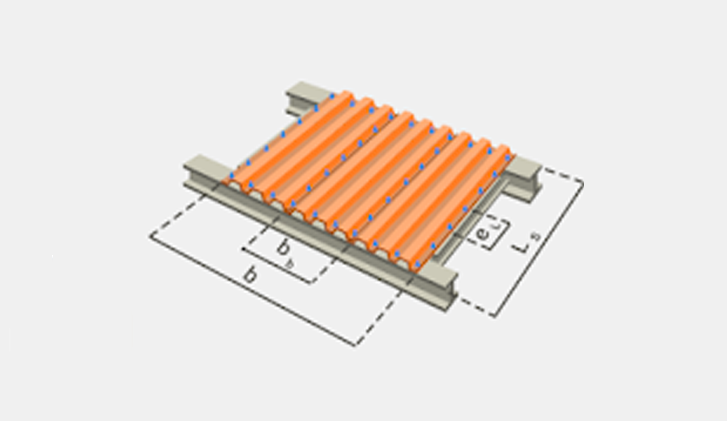
Shear fields are used in daily practice in Germany for the design of structures by considering the stabilization effect of trapezoidal decking connected to bar elements. Such stabilization effect can…
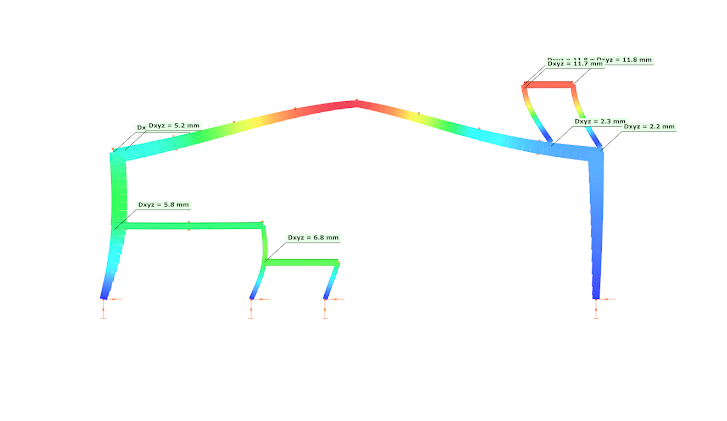
In everyday practice frames of pre-engineered metal buildings are often designed as 2D structures. Industrial buildings often have partial mezzanine floors, attached to one of the main columns, to suit…
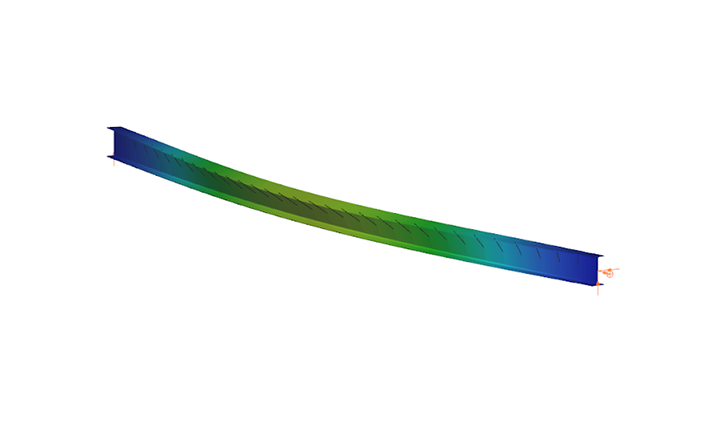
It is known that the lateral torsional buckling resistance of a simple supported beam can be significantly increased if its compressed flange is connected adequately to a trapezoidal decking. Eurocode…
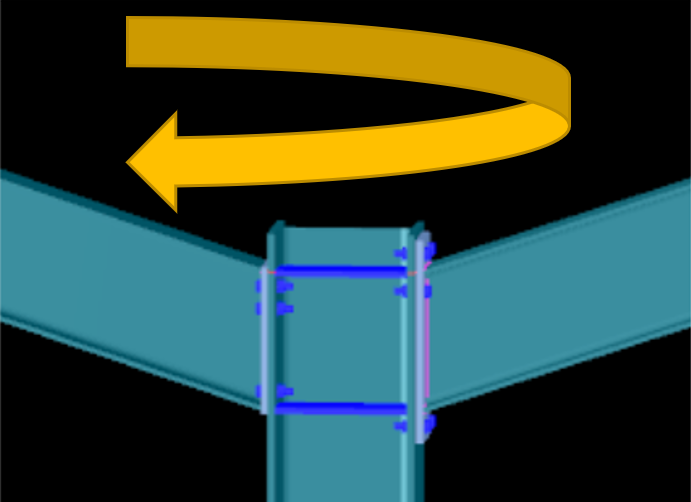
Introduction Joint orientaion can be chosen by the graphical display of the Place joint on the model function. How it works If there is only one option how to place…

Introduction How can you place surface wind loads, when you have a custom shaped flat roof instead of the standard types you can see in Eurocode? How to do that…
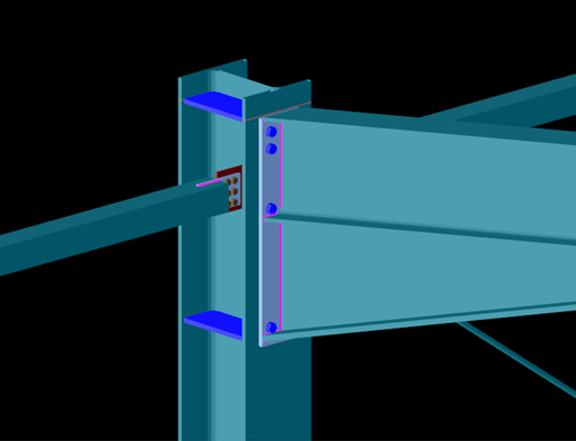
Introduction When you create a new joint either manually or by model, certain parameters are set to a default value e.g. weld sizes, method of weld design, bolt material and…
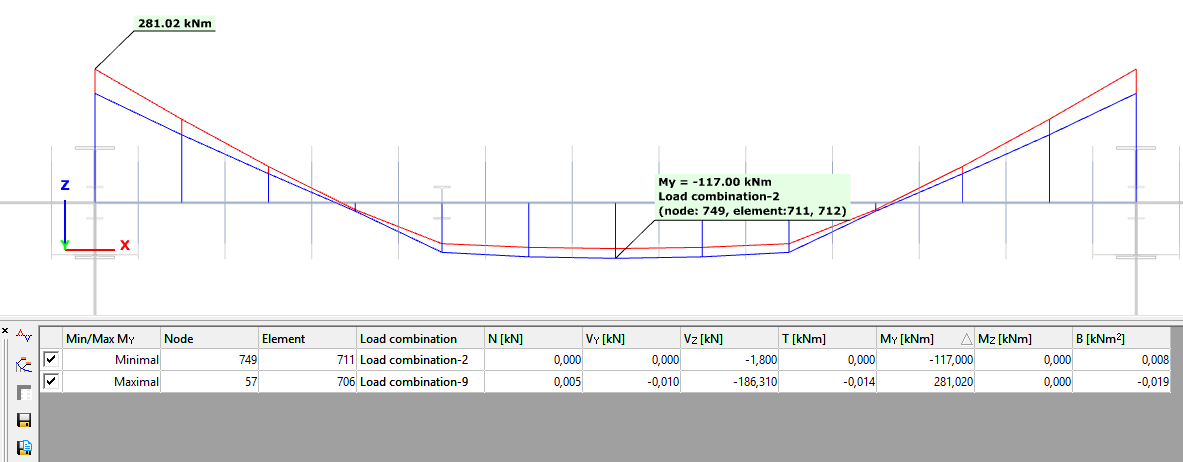
Introduction As you may already know, you can check the max, min and min-max envelope diagrams for (first and second order) analysis results in Consteel. But you can also create…
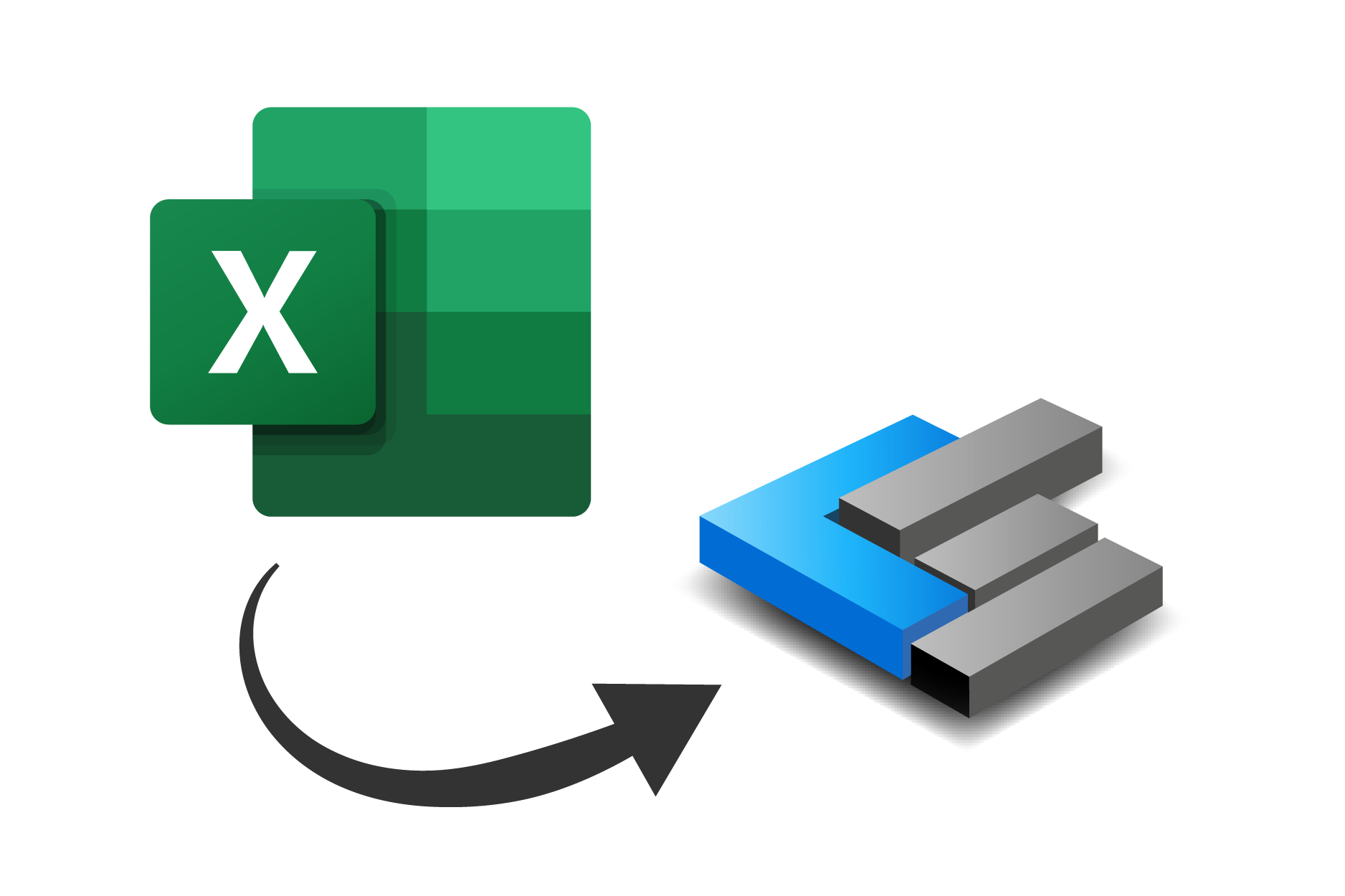
The problem Even if all of the load combination generation formulas of EN are implemented in Consteel for the automatic generation of combinations, standard formulas may not cover every necessary…

Introduction In case of a model with a lot of load cases (wind in different directions, with and without internal pressure, snow,seismic etc.), hundreds of load combinations can be generated…

The main objective of the research paper is to present the technical and economical results obtained for standardized structures with small and medium spans. The obtained results can represent a…

The authors will describe in the following pages the reasons why the project of the Multi-functional Sports Hall from Cluj Napoca is attractive. The main lines of the building are:…

The construction of Kopitnari International Airport was one of the most important Georgian brownfield investments in 2011-2012. The 5000 m2 steel terminal building with timber interior, a spectacular member of…

Having as a starting point the idea of creating a structure with an iconic design, the current article presents all the technical solutions and steps followed in the process of…

Nowe trendy w normach: EUROKOD 3 – efektywne globalne projektowanie konstrukcji. Kliknij przycisk poniżej, aby pobrać i przeczytać cały artykuł.

Nowe trendy w normach EUROKOD 3 – efektywne globalne projektowanie konstrukcyjne Analiza oparta na modelu 3D przy użyciu ogólnej metody elementów skończonych belkowo-słupowych. Kliknij przycisk poniżej, aby pobrać i przeczytać…

The case study exposes a practical evaluation of fire resistance of an old structure of a Spanish industrial building composed of steel built-up members; the truss members are angles connected…

In Hungary only since 2008 is allowed to use the structural fire engineering methods for fire design. The Eurocode provides methods and standards for these calculations. The practising engineers have…

The paper presents the influence of the diaphragm effect on the behavior of pitched roof portal frames, having Z purlins and corrugated sheeting as cladding. The paper highlights the stabilizing…

A two-part paper has been written to summarise the main results of a comparative study on the design provisions currently adopted in Europe (EU) and the United States (US) for…

Click the button bellow to download and read the full article at page 187-195. In this paper a numerical study is presented which examines a steel frame with two different…

After introducing the Eurocode standards several theses have been published on the now much-discussed phenomenon of lateral-torsional buckling of steel structural elements under pure bending. According to that, researchers are…

In the second article of this series, Dr József Szalai of ConSteel Solutions demonstrates practical examples where the “General Method” of EN 1993-1-1 shows advantages compared to the conventional approaches.…

Clause 6.3.4 of EN 1993-1-1 describes a “General Method” for lateral and lateral torsional buckling of structural components, ideally suited to software applications. Although the UK National Annex places some…

The new versions of the EN 1993-1-1 (EC3-1-1) and the EN 1993-1-5 (EC3-1-5) standards have introduced the general method designing beam-column structures; see [1] and [2]. The design method requires…

The new versions of the EN 1993-1-1 (EC3-1-1) and the EN 1993-1-5 (EC3-1-5) standards have introduced the general method designing beam-column structures; see [1] and [2]. The design method requires…

Click the button bellow to download and read the full article. The article is in czech at page 48-57.

The portal frames composed of tapered welded I-shaped structural members play important roles in the industrial buildings. The application of the relatively thin plates and the optimized fabrication makes these…

Dieser Aufsatz beschreibt – als erster einer Serie von drei Teilen – im Wesentlichen die Details der sogenannten „Allgemeinen Methode” von DIN EN 1993-1-1/Abschnitt 6.3.4. Diese softwarebasierte Methode für beliebige…

Dieser Aufsatz zeigt – als zweiter von drei Teilen – in den Abschnitten 8 bis 10 im Wesentlichen die Anwendung der sogenannten „Allgemeinen Methode“ von DIN EN 1993-1-1/ Abschnitt 6.3.4…

The EN 1993 Part 1-1 (EC3-1-1) has introduced a new approach (called the “General Method”) to perform lateral-torsional buckling (LTB) assessment of beam-column structural components on the basis of elastic…

Stability analysis and design have always played a key role in the process of verification of steel structures. The possible analysis methods and design procedures have a long history with…
Wir benutzen Cookies für Ihr Login und die Authentifizierungs-Funktionalität!
